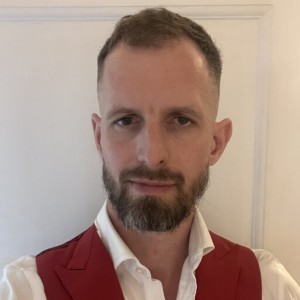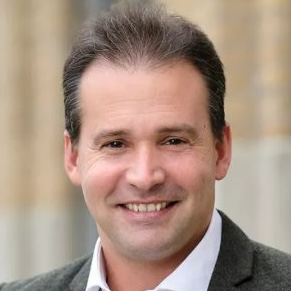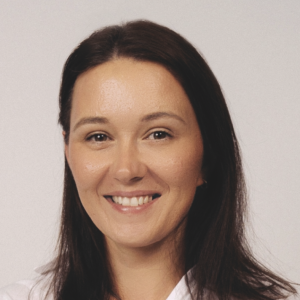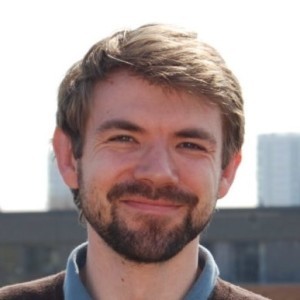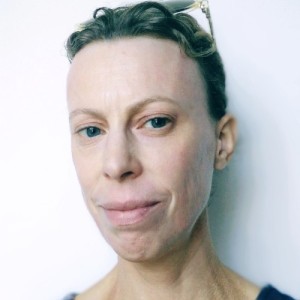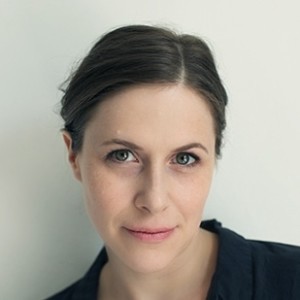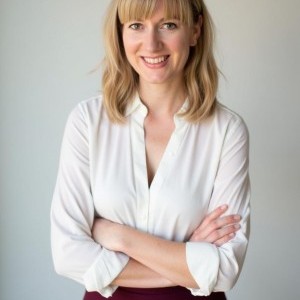
Speakers and presenters
Below you will find all details of our keynote speakers, session speakers, workshop presenters and Video+Poster presenters, click on each to learn about their backgrounds.
Keynotes
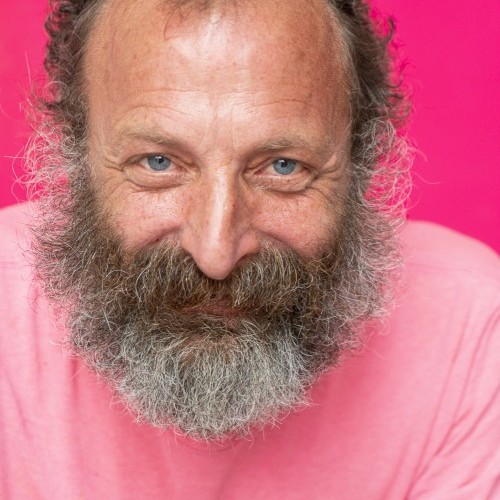
Ab Rogers
Creative director, Ab Rogers Design, UK
Ab Rogers is a Designer and Founder of Ab Rogers Design (ARD), a design and architecture studio he established in 2004 and now runs with Co-director Ernesto Bartolini. Known for a wide-ranging practice informed by his unique imagination, Ab’s studio specialises in the design of caring and experiential spaces, sustainability and inside-out design. Working internationally across health, culture, hospitality and residential sectors, it champions a broad skill base in its creation of active, supportive, engaging environments that inject narrative and purpose into the everyday. In 2021 the studio won the Wolfson Economics Prize with its design for the hospital of the future. Following this, Ab co-founded the DRU+, a design research unit that explores the interrelationship between design, culture and neuroscience, using scientific rigour to deliver the art of care, alongside Francesca Bertolotti-Bailey and Ash Ranpura.
He has taught all over the world, creating and leading the Interior Design MA Programme at the Royal College of Art from 2012 to 2015. Recent projects include sustainable structures for the Thai music festival ‘Wonderfruit’, the Maggie’s Centre at the Royal Marsden Hospital and a series of immersive exhibitions at cultural centre 180 The Strand, including shows for Wes Anderson’s films 'Asteroid City' and 'French Dispatch', and Universal Everything’s digital extravaganza ‘Lifeforms’.
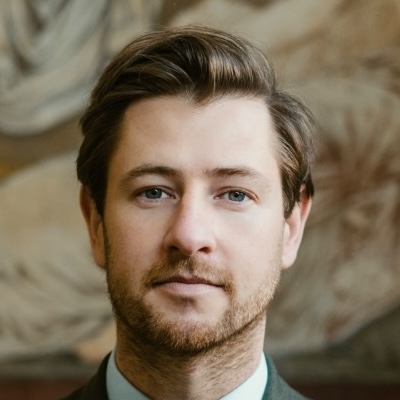
Arthur Kay
Director, Innovo, UK
Arthur is a director at Innovo, which works with ambitious governments and companies to build solutions for sustainable cities.
He is a founder of various organisations, including:
🏗️ Skyroom: building affordable homes for key workers in the airspace above existing buildings;
♻️ Bio-bean (acq. Envar): manufacturing advanced biofuels and biochemicals derived from used coffee grounds; and
⏩ Fast Forward 2030: supporting early-stage social and environmental entrepreneurs.
In addition, he works with various organisations, including as:
🚇 Board member at Transport for London (TfL);
🏛️ Board member at the Museum of the Home;
🎓 honorary associate professor at UCL Institue for Global Prosperity;
🚀 entrepreneur in residence at UCL;
🪴 chair, Climate Roundtable at the Royal Academy of Engineering and
📗 author of forthcoming book, 'Roadkill: Unveiling the True Cost of Our Toxic Relationship with Cars', with Professor Dame Henrietta Moore (Wiley, 2025). Pre-order here: https://getroadkill.com/
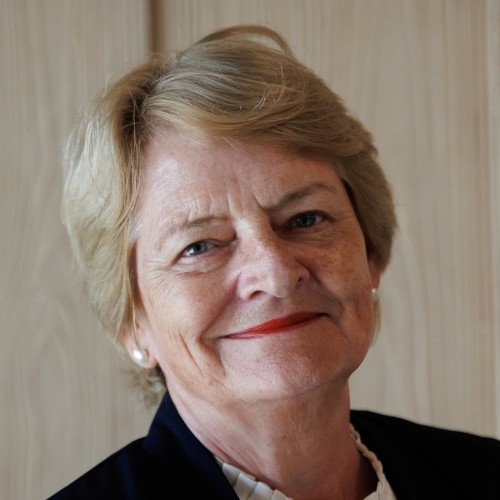
Henrietta L. Moore
Founder and director, Institute for Global Prosperity; Chair in culture philosophy and design, University College London, UK
Professor Henrietta L. Moore is the founder and director of the Institute for Global Prosperity and the chair in culture philosophy and design at University College London (UCL).
A leading global thinker on prosperity, Professor Moore challenges traditional economic models of growth arguing that to flourish communities, businesses and governments need to engage with diversity and work within environmental limits. Her recent policy work focus on new economic models; universal basic services; artificial intelligence; environmental degradation and decarbonisation; displaced people; and the gender pay gap.
In 2016, Professor Moore was made Dame Commander for the British Empire for her contribution to social sciences, services to business, policy and the arts. She is also a fellow of the Clean Growth Network, a fellow of the British Academy, a fellow of the Royal Society of Arts, an academician of the Learned Societies for the Social Sciences, and a member of the Institute of Directors.
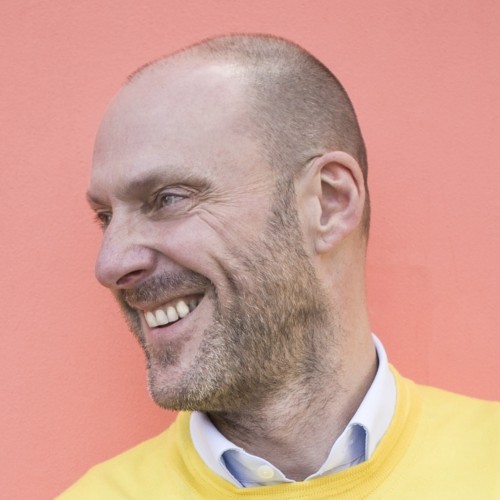
Martyn Evans
Creative director, Landsec, UK
Martyn Evans is Creative Director at Landsec, one of the largest property development and investment companies in the UK. Martyn spent 17 years with Cathedral Group/U+I, including six years on the board before leaving to become the Development Director at the 1,200-acre Dartington Hall Estate in Devon in 2016. He returned to U+I in 2019 and was part of the team that joined Landsec on its acquisition of U+I in 2021. Martyn works across Landsec’s portfolio of commercial, retail and mixed-use developments particularly its large regeneration projects at the O2 Centre in Finchley Road, Lewisham Town Centre, Mayfield in Manchester and on the vision for the future of MediaCity in Salford following its acquisition by Landsec at the back end of 2024. Many of the projects Martyn has worked on have been driven by heritage assets at their centre. Martyn is Chair of the London Festival of Architecture, the Founder of YADA, a networking organisation that brings together young people in the architecture and development industries, writes a monthly column in BDOnline and has been a jury member of many architecutre prizes and awards schemes.
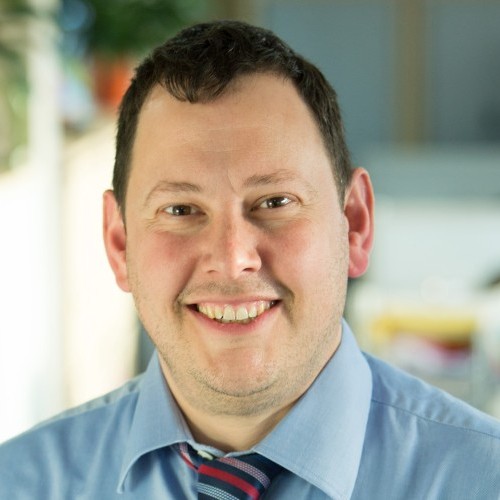
Matthew Ashton MPH, MBA
Director of public health, Liverpool City Council, UK
Prof Ashton was appointed director of public health for Liverpool City Council in April 2020 in a joint appointment with the University of Liverpool, where he is an honorary professor in the Department of Public Health and Policy.
He leads a team of 30 people in the local authority, covering a range of public health activities, including the commissioning of public health services, health protection, health improvement, healthcare public health, embedding health in all policies approaches, and addressing the wider determinants of health.
Matt led on the response to the Covid-19 pandemic for Liverpool, and his efforts have been recognised nationally through the award of the Faculty of Public Health’s presidential medal in 2021, and also the Chief Medical Officers' National Impact Award in 2022.
Matt is passionate about bringing together the best people and partnerships in the region to improve health and wellbeing and reduce inequalities in local communities.
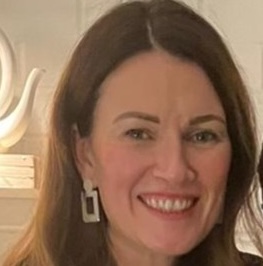
Patti Holmes
Deputy chief executive, EMPOWER, UK
A dynamic impact driven leader with over 15 years’ experience in the design, development, and delivery of transformational and impactful strategy across fundraising, sponsorship and partnership working. Recognised for expertise in building, nurturing and leading high performing teams, cultivating donor and partner relationships, securing major gifts and negotiating impactful corporate partnerships.
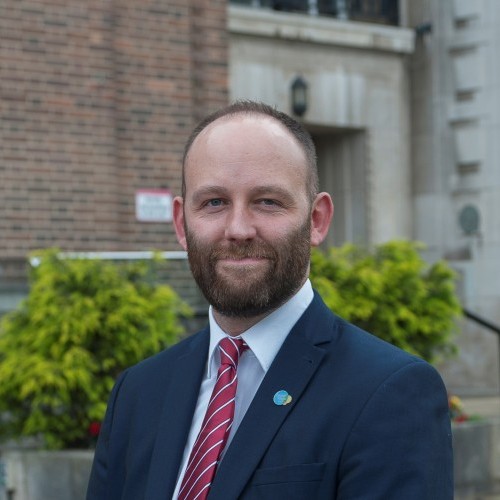
Paul Dennett
City Mayor of Salford, UK
Paul was elected as councillor for Langworthy in 2012, and held the role of strategic assistant mayor, where he championed equalities, technology innovation, urban regeneration, and workforce development until 2016. His focus on fostering inclusive prosperity and sustainable growth laid the groundwork for his future leadership.
Since being elected as City Mayor in 2016, Paul has been campaigned for equality, financial inclusion, and the real living wage. He has worked to embed social value across the public and private sectors, with a particular commitment to tackling poverty and addressing the housing crisis. His leadership has helped create an environment where innovative solutions to Salford’s housing challenges can thrive.
Passionate about empowering young people and nurturing Salford’s rich cultural and sporting life, Paul led the launch of Suprema Lex in 2020, Salford’s shared cultural strategy. Driven by the Salford Culture and Place Partnership, this strategy is a cornerstone of the city’s ambitions for creativity, arts, and community engagement.
In his wider role as deputy city mayor in the Greater Manchester Combined Authority (GMCA), Paul has been instrumental in delivering the Housing First initiative and tackling homelessness. He continues to oversee the development of Greater Manchester’s Housing Strategy, while leading efforts on the Plan for Homes, Jobs, and the Environment, ensuring that the city region's growth is sustainable, inclusive and equitable.
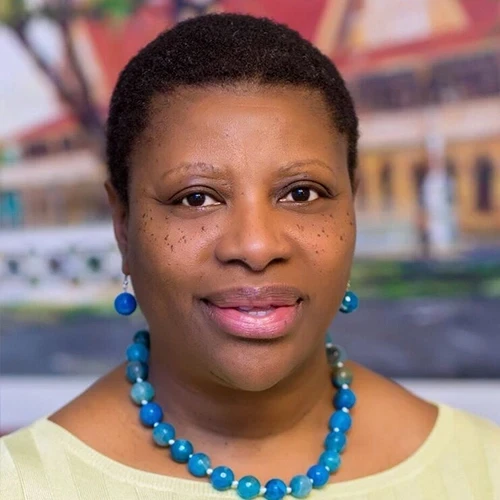
Yonette F. Thomas PhD
Founder and president, UrbanHealth360, USA
Dr. Yonette Felicity Thomas is the founder and president of UrbanHealth360, an organization of multidisciplinary thinkers centered on a people-oriented, community-focused approach to urban health. Dr. Thomas is a globally acknowledged thought leader, urban health champion, and an advocate for valuing the health of women and girls as an economic imperative. A social epidemiologist/medical sociologist by training, she has served as the chief of Epidemiology at the National Institute on Drug Abuse in the National Institutes of Health, held academic positions at University of Miami Miller School of Medicine and Howard University, and as a vice president for research. She founded Borjoner International and Strategic Transitions to influence the progress, health, and wellbeing of individuals and communities across the world. As a founding board member of Women’s Economic Imperative (WEI), she leads the organization’s focus on the health of women and girls as an economic value. Her work as global advisor for Evidence for Sustainable Human Development Systems in Africa (EVIHDAF) and the Centre for Urban Health and Development within the Asian Institute of Poverty Alleviation (CUHD-AIPA) extends her focus on the global south and the realization of the Sustainable Development Goals in this last decade. She is the Associate Editor for Women and Girls for Cities & Health.
She is a founding board member of the International Society for Urban Health (ISUH) and recently led the organization into sustainability by serving as the inaugural executive director (as a board member) and has served as a science advisor for urban health to the New York Academy of Medicine. She is a founding board member and former vice president of the Interdisciplinary Association for Population Health Science (IAPHS) and served on the Steering Committee of the National Hispanic Science Network on Drug Abuse for more than a decade.
She served on the National Academy of Sciences Committee on Revisions to the Common Rule for the Protection of Human Subjects in Research in the Behavioral and Social Sciences. Her primary research and publications have focused on the social determinants of health, health disparities, the health of women and girls as an economic value, the social epidemiology of drug abuse and HIV/AIDS and the link with geography, including edited volumes: Geography and Drug Addiction, Crime, HIV, and Health: intersections of Criminal Justice and Public Health Concerns.
Session speakers and workshop presenters

Abigail Oppong
Subject matter expert, data visualisation, AI, and emerging technologies, UrbanHealth360, United States
Abigail Oppong is a young, distinguished professional who is celebrated for advancing AI ethics, particularly in addressing biases in NLP and health systems. She was honoured as one of the 100 women in AI ethics by Women in AI Ethics in 2023. Her passion for science, technology and nature drives her to explore how new developments can advance humanity. Abigail’s work includes evaluating biases in NLP and health systems and enhancing fairness in AI technologies, especially for underserved communities.
She has contributed significantly to projects through collaborations, focusing on creating responsible AI systems that meet local and regional ethical standards. Abigail’s professional journey includes a stint as a research consultant working with academia, industry, and NGOs. She has spoken at international conferences and been published in prestigious forums like CHI and EMNLP. She also spoke as a panellist at the Royal Society, where she advocates for the need to build more inclusive health technologies. She has been part of an engagement with an expert group on quantum science at the Pontifical Academy of Sciences, where she champions the need for more inclusion in the discovery of science and community-based solutions. Her data science, machine learning, and AI ethics skills make her pivotal in shaping AI governance and ethical standards, particularly in Africa. Abigail’s interdisciplinary approach and previous experience in the non-profit sector enrich her contributions to AI ethics, emphasising the importance of localisation, trust, culture, and representation in technological development.
During her leisure time, she likes giving back to the community. She has co-founded several initiatives to promote Unity, good health, and community development. Her passion for community development influenced her research journey to investigate how local organisations can be empowered in the age of emerging technologies.
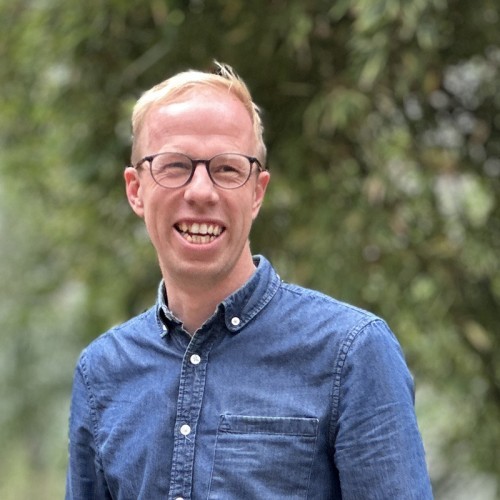
Adam Park
Architect Associate, BDP, United Kingdom
Adam is an Architect and researcher with BDP, having first joined as a Part II Architectural Assistant in 2008 and qualifying in 2010. Adam has experience of all aspects of project design and delivery; from initial concept development and masterplanning through project delivery in the residential sector. Adam returned to BDP following the completion of his PhD and Post-Doc research at the University of Sheffield, and has particular expertise in the design of environments that support older people’s health and well-being.
Adam has provided expert advice to Sheffield City Council to develop their Older People’s Independent Living Strategy, and his research has been featured in a number of publications including the 2018 RIBA book ‘Age-Friendly Housing’. He regularly presents on the theme of age-friendly housing including talks given to New London Architecture and the Royal Society of Arts. He continues to tutor on the University of Sheffield School of Architecture and Landscape undergraduate programme.
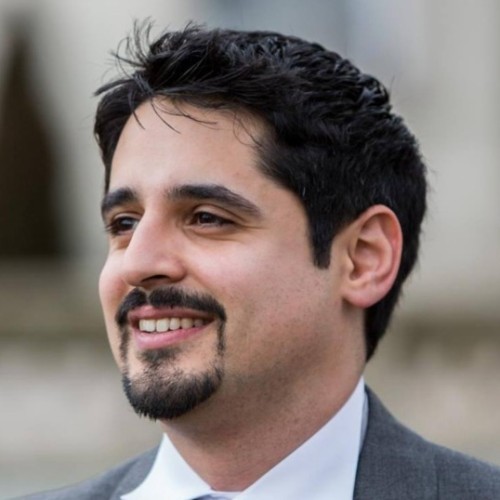
Al McClenahan
Managing director, Justice For Tenants, UK
Al McClenahan is the Managing Director of Justice For Tenants (JFT), a non-profit organisation that supports over a third of the local authorities in effectively regulating housing standards in England via Civil Financial Penalties and Rent Repayment Orders against criminal landlords and agents. As part of JFT's Policy Team, he helped author the Model Civil Penalty Policy, the Model Private Sector Housing Enforcement Policy, and the Model Property Licence Conditions - key policies to bring standardisation to enforcement against poor housing standards nationally. Al oversees the services that JFT provides to over a third of the local authorities in England.
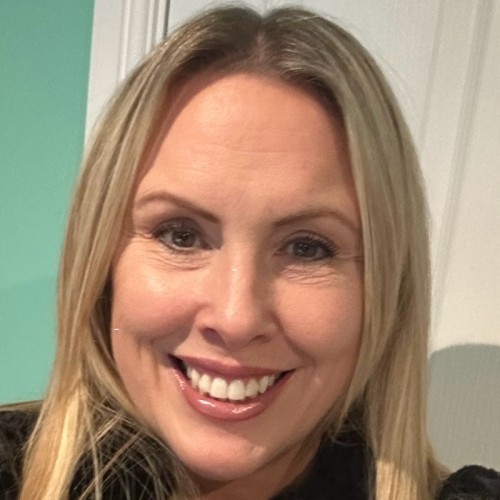
Alice Wiseman
Director of public health, Gateshead and Newcastle, UK

Alison Jones
Development manager, CommUNITY little Hulton, UK
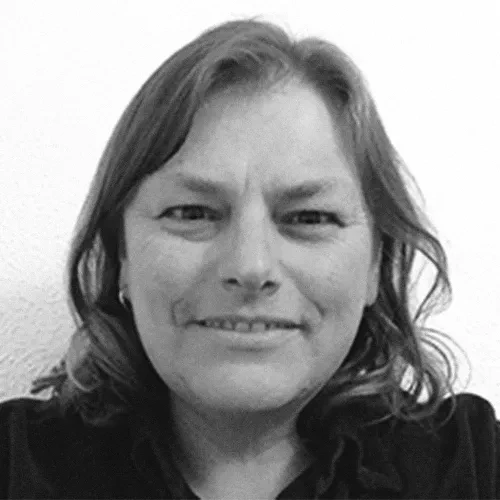
Alison Page
Director, 10 GM; Chief executive, of Salford CVS
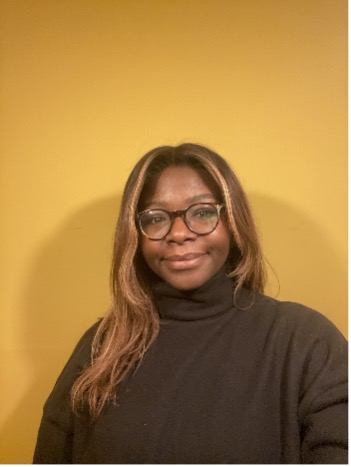
Amber Nyoni
Strategic planning and public health lead, Essex County Council, UK
Amber Nyoni is a dedicated public health professional who champions equitable health outcomes for all. She holds a master's in population health from University College London, with a focus on health and wellbeing in the built environment, and an undergraduate degree in environmental and public health from Middlesex University. Amber is a registered public health practitioner with UKPHR.
Amber's professional journey has contributed to her passion for the intersection of health and the built environment. She has worked in roles supporting a health-in-all-policies approach across various disciplines, including town planning, which led to the development of the Essex Livewell Development Accreditation for Housebuilders.
Currently, as a strategic planning and public health lead at Essex County Council, Amber supports the integration of public health and town planning to address and embed the wider determinants of health into planning processes. Her role involves providing public health expertise on health impact assessments for strategic planning applications and building capabilities and capacity within Essex. Amber is also currently a member of the Urban Land Institute Health Leaders Network for Cohort 8.
Amber's commitment to creating healthy and sustainable communities has been a driving force in both her professional and academic pursuits.
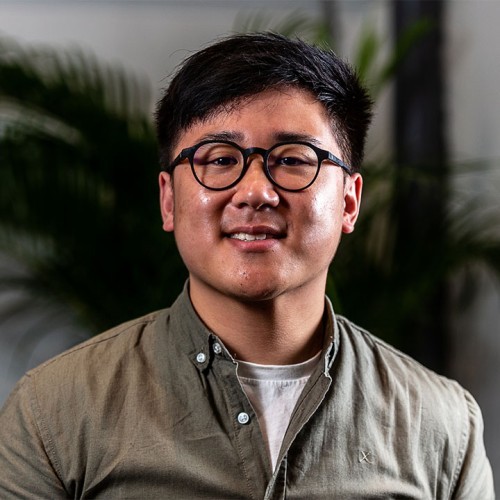
Andrew Fong
Urban Designer, Ryder Architecture, United Kingdom
Andrew joined Ryder as an urban design assistant in 2021 after graduating from Newcastle University with a master’s degree in urban design where he achieved the William Ault prize as the highest achieving student. Andrew is passionate about masterplanning, placemaking for health and wellbeing and designing places for all. Prior to Ryder, Andrew completed a variety of interior design projects, ranging from residential, hospitality, and conversion of listed buildings.
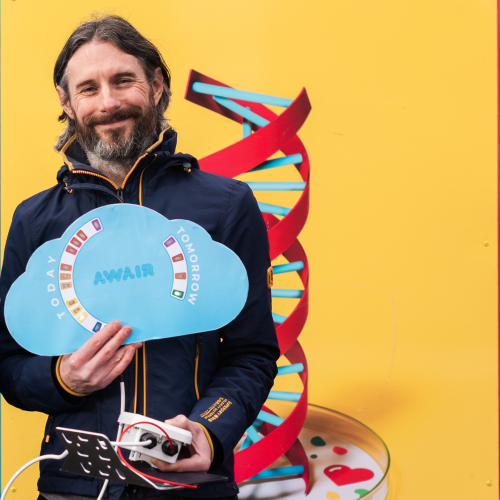
Andrew Grieve
Air quality technologist, Imperial College London, UK
Andrew is an air quality scientist with a passion for harnessing technology to expand access to air quality information. Over the course of a 20-year career at the heart of air quality monitoring and management in London, he has led the development of pioneering apps, websites, widgets, and now with AWAIR, the UK’s first dedicated outdoor air quality display.

Andrew Howe
Consultant general adult psychiatrist and psychodynamic psychotherapist, South London and Maudsley NHS Foundation Trust, UK
Andrew Howe is a Consultant General Adult Psychiatrist and Psychodynamic Psychotherapist at the South London and Maudsley NHS Foundation Trust, UK. He is PhD student at the University of Essex with an interest in hallucinations and analytical psychology and has written multiple journal articles in this field.

Andrew Leigh
Director of housing, Liverpool City Council, UK
Andrew is director of housing at Liverpool City Council – one of the UK’s Core Cities – leading homelessness and housing services within the City, including the City’s private-sector housing and healthy homes teams, which have a significant role in addressing poor housing conditions and helping to address the links between poor housing and health.
Andrew has been in the housing sector for over 30 years working for registered providers and major local authorities in the Midlands and North-West of England. He has a broad experience of housing from delivering front-line services through to strategic housing, business planning and housing governance.
Andrew is a values-driven leader and is a strong advocate of partnership and collaborative working across the sectors.

Araceli Camargo
Head of science, the Centric Lab, UK
Araceli Camargo hold and MSc in cognitive neuroscience from King’s College London. Her area of study was in the attentional differences for those experience autism, this work was part of the ERASMUS grant and project on autism, one of the most comprehensive study cohorts in autism. Araceli then moved on to found Centric Lab alongside scientists from University College London. Her line of work is now focused on the neuroendocrine system as a lens to examine the physiological link between health and place. She has published several studies on the subject, such as Neuroscience, Urban Regeneration, and Urban Health, Biodiversity and Human Health, and Twenty Important Research Questions in Microbial Exposure and Social Equity.
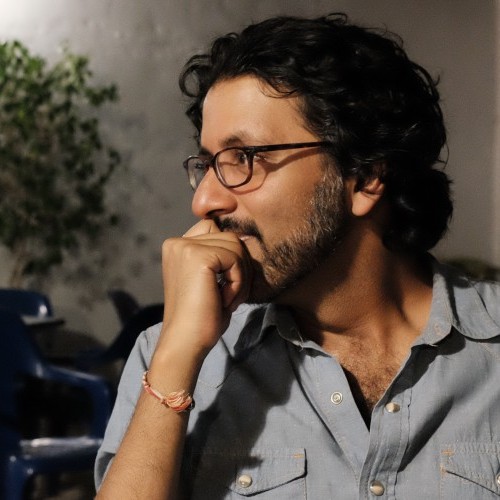
Ash Ranpura
Co-founder, DRU+, UK
Dr Ash Ranpura is a neurologist and cognitive neuroscientist who has been active in brain research for over 25 years. He received his Bachelor's degree from Yale University, completed an M.D. at the Medical College of Ohio and carried out his Ph.D. research at the Institute of Cognitive Neuroscience in Queen Square, London. He completed an internship in internal medicine and a residency in adult general neurology at Yale-New Haven Hospital in Connecticut, where he spearheaded new initiatives for improving patient transport and reducing the use of sedation for MRI.
In addition to his clinical work, Dr Ranpura has made significant contributions in science communication, having been a Co-founder of Café Scientifique at the Photographers’ Gallery in London, a founding editor at 'BrainConnection' magazine in San Francisco and a host of radio programmes for BBC Radio 4, National Public Radio and Audible.com. He is co-author, together with presenter Ruby Wax and Buddhist monk Gelong Thubten, of 'How to be Human: The Manual', a practical guidebook exploring the effects of meditation on the brain.
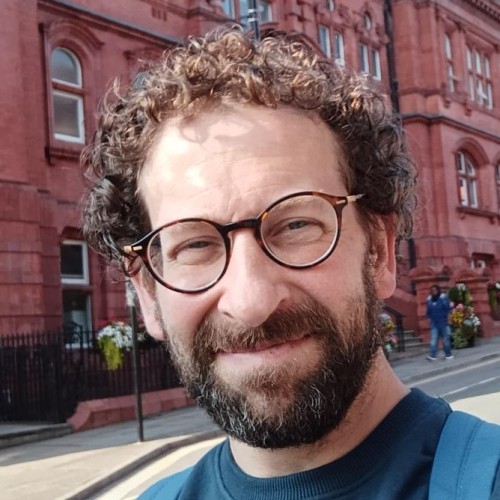
Ben Jewell
Public health specialty registrar, Wigan Council, UK
Ben is a public health registrar, interested in the natural and built environment, community power, and storytelling.
His early work after a biology degree was in conservation (RSPB) and sustainability. He then sidestepped (side-leapt?) into professional acting. Side hustles have included cycle training for children, teaching, and humanist wedding celebrant!
Ben started as a trainee in a North Yorkshire council via Impact, the national graduate scheme for local government. He joined Trafford Council April 2020, mid-pandemic, and was redeployed to PPE and public health. Work has ranged from partnerships and strengthening service delivery, assessing community needs, and in 2025 he and his team won an award for advocacy and influencing on active travel.
He's now on the Public Health specialty training scheme, initially at Wigan, eventually to become a public health consultant.
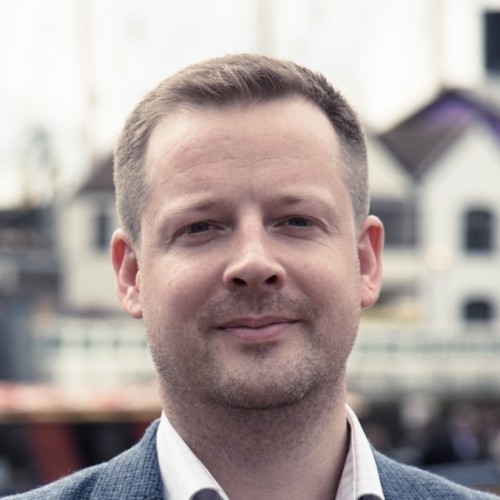
Ben Yarrow
CEO and founder, Marks Out Of Tenancy , UK
Ben Yarrow is the CEO and founder of Marks Out Of Tenancy (MOOT), an innovative social enterprise dedicated to improving conditions within the private rented sector across the UK. Under Ben’s leadership, MOOT has become a vital platform for tenants to transparently review landlords, letting agents, properties, and neighbourhoods, significantly empowering renters through shared experiences and collective advocacy.
Complementing this work, Ben spearheaded the development of OccupID, an advanced data service identifying housing issues such as overcrowding, unlicensed HMOs, and empty homes, now actively utilised by local authorities and housing organisations to enhance community health and housing standards.
Passionate about tackling systemic housing injustice, Ben champions tenant rights, urban health, and innovative solutions to deeply-rooted social challenges. His expertise is regularly sought after in discussions on housing policy reform, urban planning, and sustainable community development, reflecting his commitment to building healthier, more equitable urban environments.

Blake Jackson AIA, LEED Fellow, WELL Faculty, CPHC
Director, sustainability, NORR, USA
Blake Jackson is an architect working at the nexus of sustainability, wellness, resiliency, and equity, who serves as the global Director, Sustainability for NORR. NORR is an 800-person integrated architecture, interiors, planning and engineering company, headquartered in Toronto, with 14 locations in the US, UK, UAE, and Canada. Blake has 23 years’ experience in the AEC industry, holding a Bachelor of Architecture from Kennesaw State University in Marietta, Georgia and a Master of Architecture in Sustainable Environmental Design from the Architectural Association Graduate School in London. Blake is a prolific author, speaker, and educator on topics affecting the built environment. He currently serves on the Advisory Board for the University of Massachusetts Dartmouth’s Interior Design Program, is on the AIA National 2030 Working Group, and he is a former Vice President, Advocacy for the Boston Society of Architects. Blake was recognized in 2015 by BD+C Magazine as a top “40 Under 40” AEC professional, he was named a LEED Fellow by the USGBC in 2021, and he is a 2024 recipient of the AIA Young Architect Award.
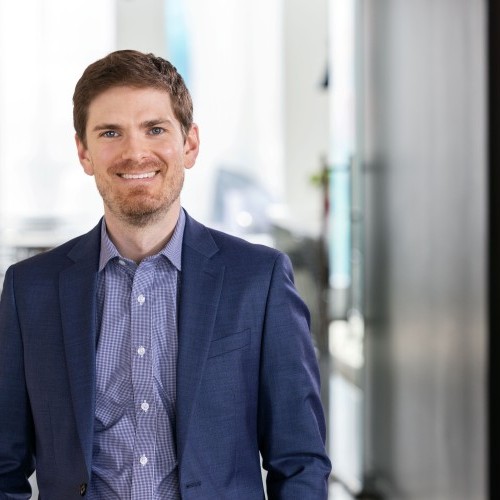
Brian Giebink
Behavioural and mental health practice leader, HDR, United States
Brian is an architect and leads HDR’s behavioural health practice. In his work, Brian introduces current research and design trends to improve safety, patient satisfaction, and staff retention for behavioural health clients around the world. He is an active member of the FGI topic group focused on behavioural health and has received national recognition for his contributions to the field. Brian believes all humans have value and strives to promote equity by building stronger connections for patients, family, and staff in mental health environments and communities.
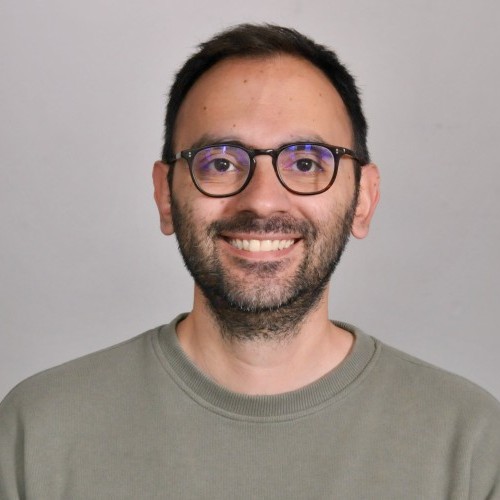
Caglar Koksal
Lecturer in urban planning, University of Manchester, UK
Caglar Koksal is a lecturer in urban planning at the University of Manchester, with expertise in spatial planning; planning practice; housing and infrastructure planning; urban governance and policy; and health creation and inequalities. He has led and collaborated on numerous funded research projects at national and international levels, and he co-leads the environment theme within the Healthier Futures Research Platform at the University. His research is grounded in a commitment to evidence-informed, practically engaged scholarship, using both quantitative methods (such as GIS and spatial analysis) and qualitative methods (including policy analysis and elite interviews). Dr Koksal’s broader research and consultancy work includes leadership on projects examining policy design and implementation, as well as collaborative work with local authorities, national government, think tanks, and private-sector consultancies.
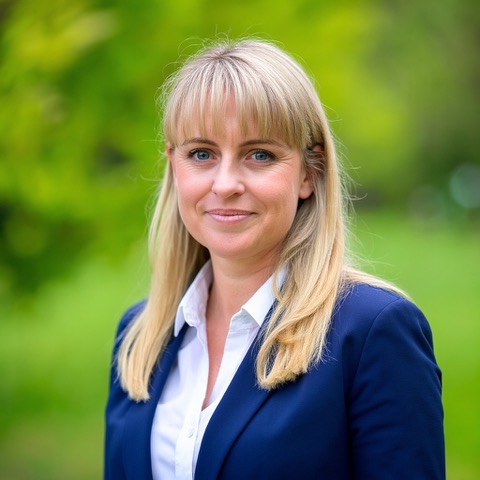
Camilla Sedgwick
Senior project support officer/ researcher, University of Sydney, Australia
Camilla Sedgwick is a senior project officer at The Matilda Centre for Research in Mental Health and Substance Use at the University of Sydney. She holds a master's of public health (chronic disease prevention) and a bachelor's of education and is a registered secondary school teacher with over 21 years of experience in schools across Australia and the United Kingdom. Camilla’s expertise in health-promoting schools and youth wellbeing has informed curriculum design and special projects for students in high school and college settings. Her recent work focuses on the intersection of social determinants of health, educational outcomes and overall wellbeing. She has contributed to research with young people, priority population groups, government stakeholders and policymakers, contributing to the development of health policy and educational programmes.

Caroline Alexander
Strategic lead for arts and creative health, Salford Community Leisure, UK
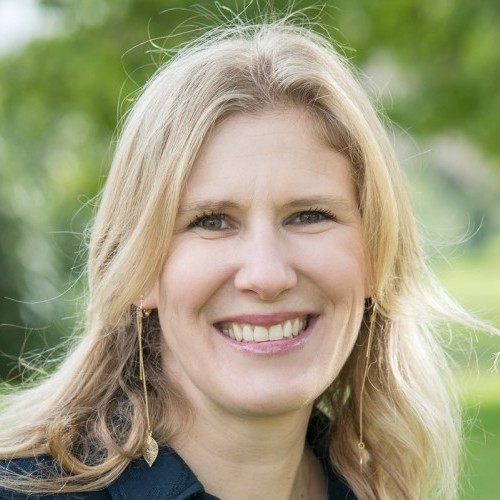
Carolyn Daher MPH
Co-ordinator, Urban Planning, Environment and Health Initiative, Barcelona Institute for Global Health, Spain
Carolyn Daher is a public health specialist with over 20 years of international experience connecting research, education and implementation to build healthier communities. Carolyn has a B.A. in Environmental Studies (Brown University), Master in Public Health (Johns Hopkins Bloomberg School) and a Master in Psychosocial Intervention (University of Barcelona). Her work centers on how to generate greater impact in policy and society using scientific evidence, and ensure evidence-based practices in the creation and implementation of projects to promote health, especially in urban contexts. She currently coordinates ISGlobal’s Urban Planning, Health and Environment Initiative.
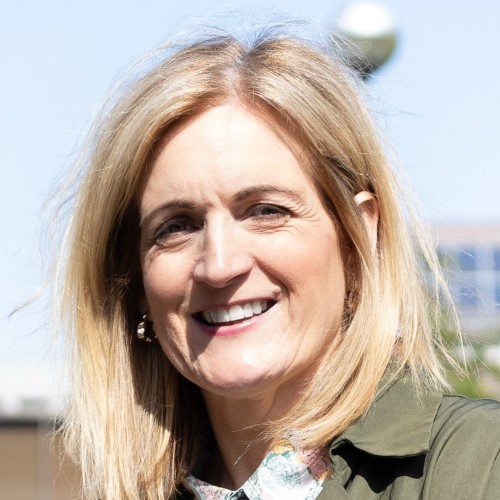
Catherine Connors
Service manager, Salford City Council Welfare Rights and Debt Advice Service, UK
Catherine leads an established team of expert welfare rights and debt advisers within Salford City Council’s Adult Social Care and Health Partnerships , working with partners across the public services, Health and VCSE to improve access to advice for Salford and GM citizens. She has over 30 years' experience in local government focused on tackling poverty, starting out as a welfare rights practitioner in neighbourhoods and a Children’s Centre before moving into strategic commissioning to improve financial inclusion in Salford.
Catherine is driven by a strong commitment to social justice and the critical role of welfare rights and debt advice in addressing inequality. To influence social policy at a national level, she has worked with a range of academics to explore the impact of UK Welfare Reforms on citizens including studies into people’s experiences of benefit sanctions, underemployment and claiming Universal Credit.
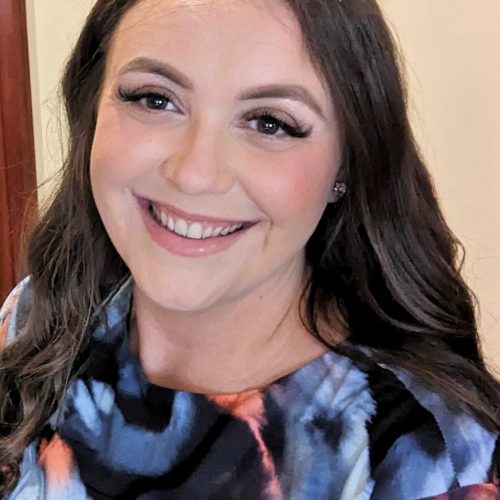
Catrin Lyddon
Public health practitioner, Public Health Wales, UK
Catrin Lyddon is a public health practitioner working in the Wales Health Impact Assessment Support Unit (WHIASU), which is part of Public Health Wales. She has a background in research, with an interest in the wider determinants of health. Catrin is passionate about understanding and identifying health and wellbeing impacts, and she uses her role within WHIASU to provide advice, guidance and support for those looking to identify the health impacts of their work by using health impact assessment (HIA). She has supported many HIA workshops at both a national and local level in subject areas such as planning, waste and recycling, and screening engagement.
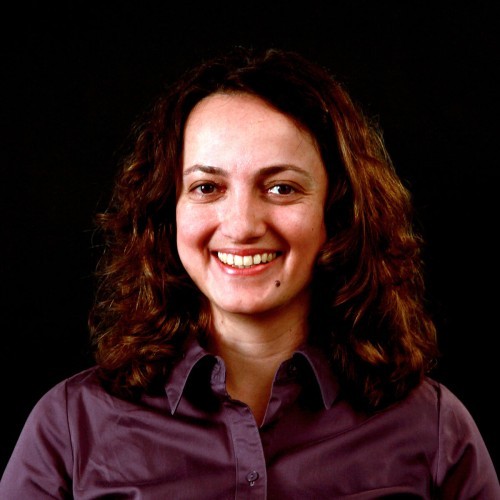
Celen Pasalar
Associate professor, North Carolina State University, United States
Celen Pasalar, PhD is associate professor in the Department of Landscape Architecture and Environmental Planning, and extension co-ordinator in the College of Design at North Carolina State University. She also holds the titles of University Faculty Scholar and Community Engaged Fellow. Dr Pasalar is actively involved in the Executive Leadership of the Global One Health Academy, where she co-leads the Climate Change and Health Disparities Research Initiative.
Her research focuses on creating, translating and broadening evidence for designing smart, connected, resilient and healthy communities. Her work in the realms of urbanism, human behaviour and environment, and community design has profoundly affected the design discipline, addressing the needs in communities at multiple scales. Dr Pasalar collaborates with multidisciplinary researchers, community partners, and practitioners to develop evidence-based design solutions, transforming communities. Her award-winning projects and research have been supported by the National Science Foundation, Federal Emergency Management Agency / US Department of Homeland Security, NC Department of Transportation, the Spencer Foundation, and various non-profits. Her work has been recognised with many awards, including the 2020 Excellence in Service Learning Award from Council of Educators in Landscape Architecture; the 2019 Outstanding Extension Award from North Carolina State University; and multiple national awards from the American Society of Landscape Architects. She has published extensively, including book chapters, peer-reviewed journal articles, proceedings, and research reports. She is a member of the Environmental Design Research Association Board of Directors, and the associate editor and Executive Board member of the Ekistics and the 'New Habitat Journal'.
Dr Pasalar holds a PhD in design from North Carolina State University, an MSc in city and regional planning with a focus on urban design, and a BArch in Architecture from Middle East Technical University. Her impactful work over the years exemplifies her commitment to creating sustainable and resilient communities.
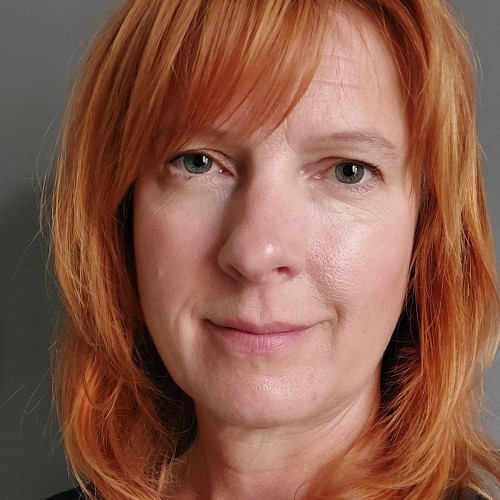
Cheryl Williams
Principal public health practitioner, Public Health Wales, UK
Cheryl Williams is a principal public health practitioner (policy and impact assessment) in the Wales Health Impact Assessment Support Unit (WHIASU), Public Health Wales. Her work focuses on maximising the connections between spatial planning and health, including the use of health impact assessments. Prior to her current role, Cheryl spent a number of years working in the local public health team in Cardiff and Vale University Health Board, where her role included supporting both Cardiff and Vale local authorities to embed health within planning policy. Early in her career, having initially qualified in town planning, Cheryl worked as a planning officer in Coventry City Council and then Cardiff Council, before having a change of direction, initially going to manage a healthy living project in Cardiff, which then led to a career in public health. In her current role, she is in the fortunate position of being able to combine both a planning and public health background.
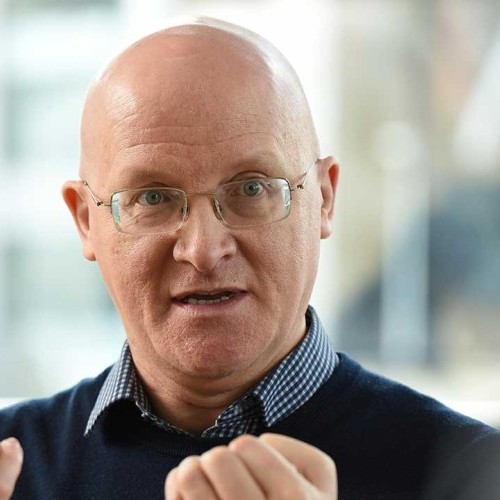
Chris Dabbs
Chief Executive, Unlimited Potential, United Kingdom
Chris is Chief Executive of Unlimited Potential, which specialises in social and economic innovation and in systems change. Originally a social anthropologist, Chris has worked on diverse projects with local people and communities for over 30 years. Chris is a Fellow of the School for Social Entrepreneurs and a Fellow of the Royal Society of Arts.

Christine Greenhalgh
Lecturer in public health, University of Manchester, UK
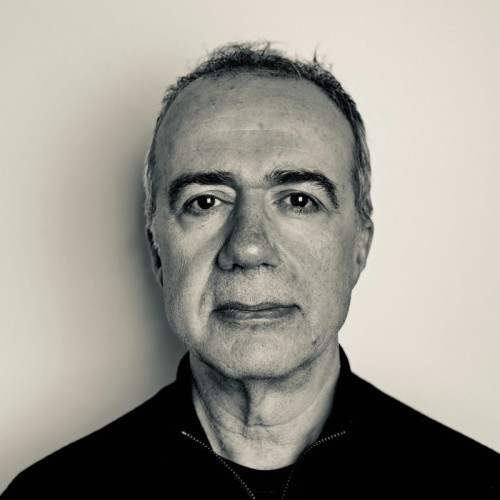
Christophe Egret
Architect and urbanist, UK
Christophe Egret is an architect and urbanist currently developing Soul in the City, a project exploring the non-material dimensions of urban life and launching as a podcast in 2026. His work now focuses on how cities can nurture presence, connection and hope in an age of transition.
He previously co-founded Studio Egret West, where for twenty years he led major regeneration and adaptive reuse projects including Park Hill in Sheffield, the Balfron Tower in London, and the Earls Court and Mayfield Manchester frameworks. A regular lecturer and critic at the London School of Architecture, he continues to speak internationally on healthy and soulful cities.
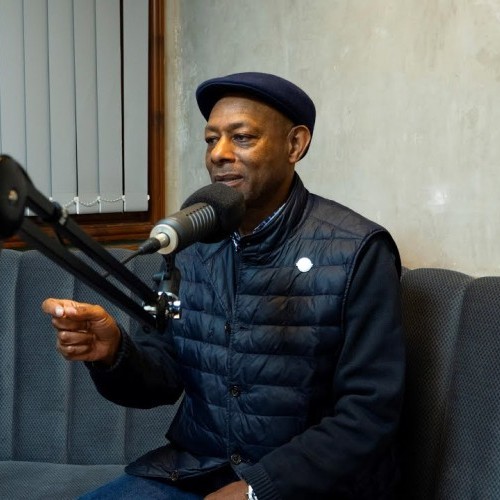
Claude Hendrickson
Community-Led Housing Advisor , Leeds Community Homes, United Kingdom
Claude Hendrickson MBE has been active in the self-build and community-led housing sector for over 30 years. In 1989, he co-founded Frontline Community Self-Build, a pioneering project led by unemployed African-Caribbean men in Leeds. He went on to become a founding member of the Community Self Build Agency (CSBA) in 2000, supporting self-build initiatives across the UK, many involving ex-service personnel. In 2010, Claude became CSBA’s northern director (on a voluntary basis), and in 2015, he was commissioned by Leeds City Council to develop a ten-year strategy for self-build. He continues to champion inclusive housing through roles as an EDI associate at People Powered Homes Leeds, an accredited community-led housing advisor (CIH), and a community land trust ambassador. Claude regularly speaks at national housing events and facilitates workshops focused on diversity and inclusion. With deep knowledge of the systemic under-representation of minority groups in housing, he is a long-standing advocate for greater investment in urban self-build and community-led projects across the North of England. In recognition of his contributions, Claude was awarded an MBE in 2023 for services to community self-build and community-led housing.
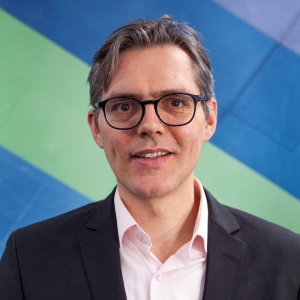
Coen van den Wijngaart
Manager, real estate development; member, management committee, Anculus, The Netherlands
Coen van den Wijngaart is manager of real estate development at Anculus and a member of its management committee. He specialises in overseeing the development, redevelopment, and renovation of public-sector real estate projects, primarily serving educational institutions through delegated client management. Anculus provides strategic portfolio management with a focus on sustainable and resilient infrastructure. Coen holds a degree in architectural engineering from Delft University of Technology and an executive MBA from Vlerick Business School, Brussels. With over 25 years of experience as an architect, entrepreneur, and strategic real estate developer, his expertise lies at the intersection of innovative architectural design, health and wellbeing in the built environment, and sustainable development. His research and professional interests include the translation of architectural and strategic concepts into healthy, inclusive, and future-proof environments for living, learning, working, and care. His career is marked by a commitment to advancing knowledge and practice in healthy and sustainable public real estate development.
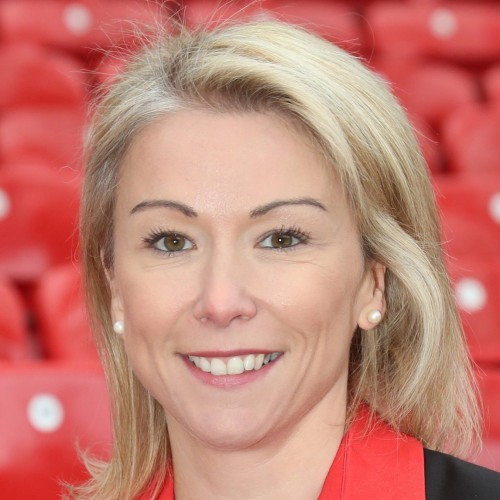
Collette Roche
Chief operating officer, Manchester United FC, UK

Cyndi Anafo
Director, Peckham Palms, UK
With a rich foundation in retail, entrepreneurship, and community activism, Cyndi Anafo is a natural fit for her role as Director and majority owner of Peckham Palms.
Raised in South London by a single mother who was both a shopkeeper and entrepreneur, Cyndi's connection to business and community began early. She brings a wealth of lived and professional experience to her work—having traded at local markets, co-owned the Black-
led lifestyle store United80, and co-founded The Snugg Bar (now Supercute) in Brixton Village, which she managed until 2014.
In parallel with her business ventures, Cyndi is a seasoned cultural events producer and social commentator, with a focus on issues affecting her immediate community.
Her deep-rooted ties to Brixton and passion for social justice led her to launch Reclaim Brixton, an anti-gentrification movement that mobilized over 3,500 people in a peaceful protest at Windrush Square. The campaign spotlighted urgent local concerns—from housing
and business displacement to the decline of public services.
Cyndi’s multifaceted entrepreneurial journey, community-first ethos, and dedication to preserving local culture make her a dynamic force behind the continued growth and sustainability of Peckham Palms—and a vital advocate for South London’s creative and cultural future.

Dagmara Wojciechowicz
Manager, Merseyside Polonia, UK
My name is Dagmara Wojciechowicz and I live in the L8. November last year I took on the role of Merseyside Polonia’s manager. I am community champion manager focusing on working in partnership with local PCNs, hospital trusts and other health institutions advocating for Polish community.
Our partnerships are aimed at bringing down barriers in accessing healthcare and addressing health inequalities affecting our communities.
I am a public advisor for ARC NWC based at University of Liverpool on ‘Growing Up Children in Liverpool’ project, and also sit as committee on Health Equality Project Liverpool focusing on addressing low MMR imms uptake amongst children in Liverpool.
I have a degree in Business and PR but my focus during my studies was on Corporate Social Responsibility.
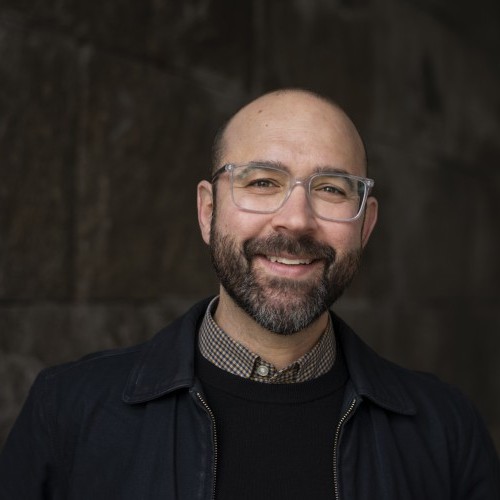
Daniel Piatkowski
Associate professor, OsloMet, Norway
Piatkowski is an associate professor of integrated land use and transport planning at OsloMet – Oslo Metropolitan University, in Oslo, Norway. His work is at the intersection of mobility transitions, human behaviour, and technology. He teaches courses in urban mobility and transport policy in the Master's of Transport and Urban Planning programme at OsloMet. Piatkowski's current research centres on the bicycle as a catalyst for urban change, exploring its potential and pitfalls across spatial and socio-demographic contexts.
Prior to joining OsloMet, Piatkowski held appointments at the University of Nebraska – Lincoln and Savannah State University. He earned his PhD in design and planning as a National Science Foundation fellow in sustainable urbanism at the University of Colorado – Denver and holds a bachelor's in English and a master's in urban and environmental planning (both from Arizona State University).
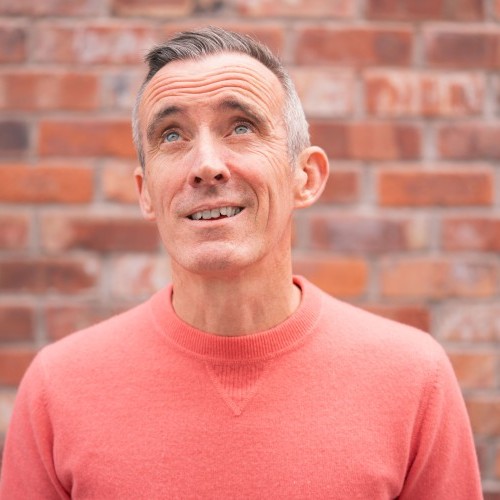
Danny Crump
Director of urbanism, Layer.studio, UK
Danny Crump is a chartered landscape architect, urban designer, and masterplanner with more than 25 years’ experience in placemaking, urban regeneration, and transit-led development. As head of landscape + urbanism at Layer.studio, Danny leads pioneering approaches to creating healthier, more equitable cities – most recently co-authoring PikTOC, a geospatial tool designed to prioritise regeneration around Greater Manchester’s transit hubs through the lens of spatial justice, health equity, and climate resilience.
He is also the co-creator of Circ_it, a gamified urban regeneration tool that reverse-engineers success by helping communities, councils and designers create place-based strategies grounded in lived experience and future ambition.
A High Street Task Force expert and qualified project manager, Danny brings an interdisciplinary mindset to complex urban challenges, choreographing collaborative teams, co-creating with communities, and embedding innovation into public-sector strategies. He mentors emerging talent through Future GM Leaders Plus and Women in Architecture, and provides professional practitioner guidance on landscape urbanism at the Manchester School of Architecture.
Danny’s passion lies in unlocking local distinctiveness through data-informed diagnostics, global trend forecasting, and co-design. He champions ‘complete communities’ and inclusive growth, shaping places that support public life, wellbeing, and sustainable mobility. A proud Northerner and critical thinker, Danny is a vocal advocate for preventive planning, systems thinking, and people-first urbanism – building futures where city design and public health evolve together.
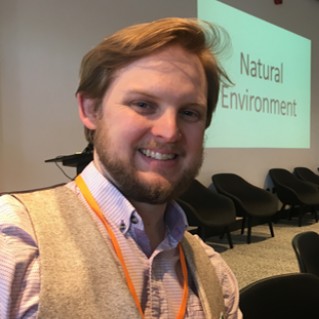
Dave Bell
Principal Adviser: Health and the Environment, Natural England, UK
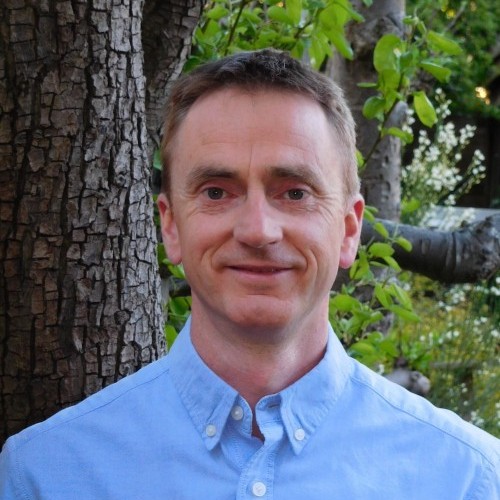
David Cheshire
Sustainability director, AECOM, UK
David Cheshire is a director at AECOM, specialising in sustainability and regenerative design in the built environment. David is the author of 'Building Revolutions, The Handbook to Building a Circular Economy' and a newly published book titled: 'Regenerative by Design', which explains how buildings can have a positive impact on the planet, becoming an active part of the ecosystem.
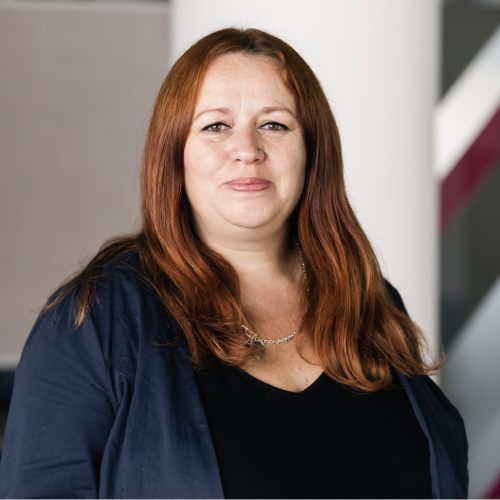
Dawn Carroll
Head of House of Memories Programme, National Museums Liverpool, UK
Dawn Carroll is the head of the award-winning House of Memories. She leads on the development and delivery of an expanding House of Memories engagement programme, including partnerships, digital training and resources. Dawn has an interest in digital innovation for health, having played a key role in the creation of the ‘My House of Memories app’ and ‘House of Memories On The Road’ a mobile immersive experience for isolated elders in the community. She works with an extensive range of partners, locally, nationally and internationally, and she is a regional representative for the Culture, Health and Wellbeing Alliance.
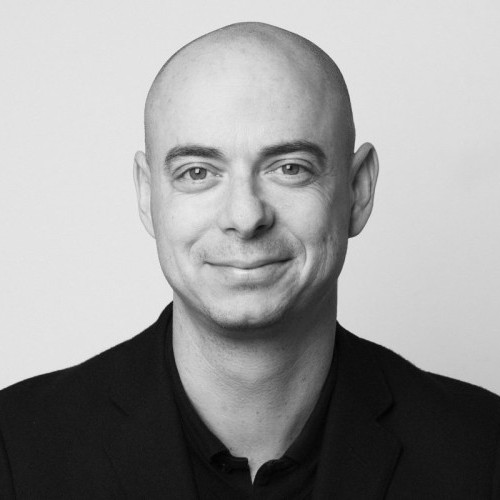
Elad Eisenstein
Director for city masterplanning and urban design, AECOM, UK
Elad is AECOM’s director for city masterplanning and urban design. Based in London and working internationally, he offers clients a holistic approach to city development, urban strategy and design, across the company's strategic intervention sectors.
Trained as an architect and urban designer, Elad has more than two decades of global experience, specialising in leading, designing and delivering major large-scale and complex urban projects. His integrated and strategic approach to city design helped shape many projects and places in cities across the globe, including Stratford City’s international Quarter, Tottenham Regeneration Framework, and Thamesmead in London; NOMA in Manchester; Zuidas in Amsterdam; Central Renewal District in Sydney; City of Tshwane in Pretoria, South Africa; and the Singapore Sports Hub.
Elad is an expert panel member for planning at the NLA and formerly a member of the first cohort of the Mayor of London’s Infrastructure Advisory Panel. He has taught in major universities, including the Architectural Association School of Architecture and UCL. He has published widely, and he is a regular keynote speaker at many international conferences

Elizabeth Larner
Deputy dean, Salford Business School, University of Salford, UK
Elizabeth is a senior fellow HEA, certified management and business educator and fellow CMI. An experienced dean with a demonstrable history of leadership in higher education, she also has professional practice experience as a marketer.

Elspeth Anwar MD
Associate director of public health (wider determinants), Liverpool City Council, UK
I trained in the North West on the Public Health training scheme and I’m a medical doctor by background. I have also been an academic trainee and have published multiple peer reviewed papers.
I am passionate about improving health outcomes and reducing health inequalities through driving collective action to improve the conditions in which people are born, grow, live, work and age within Liverpool. I strongly believe in working with and empowering local communities to improve health outcomes.
My current lead areas include wider determinants, addictions (drugs, alcohol, tobacco, gambling) and research and development, including being the lead for the National Institute for Health and Care Research (NIHR) funded Health Determinants Research collaboration Liverpool.

Enrique Tabone
Data scientist, University of Salford, United Kingdom
Enrique Tabone is an artist and data scientist known for her multidisciplinary approach, encompassing both fine art and wearable art under her brand QUEstijl. She explores themes of identity, culture and modernity, often blending traditional and contemporary elements in her work. Tabone is also involved in digital curation, conducting research and teaching at the University of Salford'a Digital Curation Lab. Her work on creative uses of open data in cultural heritage settings has appeared in peer-reviewed journals and various exhibitions.
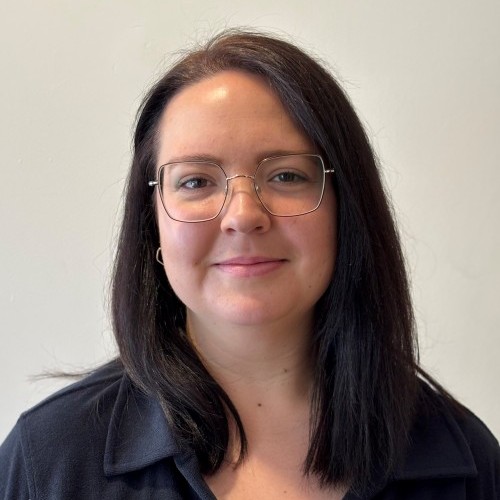
Ffion Carney
Senior Data Scientist, AtkinsRéalis, United Kingdom
Dr Ffion Carney is a Senior Data Scientist in AtkinsRéalis’ Building Design Research & Innovation team. She specialises in urban analytics, geospatial analysis, and social science research. She holds a PhD in Geographic Information Science, from UCL, where she explored the use of big data to understand urban mobility patterns and transport disadvantage in vulnerable populations. Her primary research focus is on the use of open data and geospatial analysis to address challenges and inequalities in urban environments.
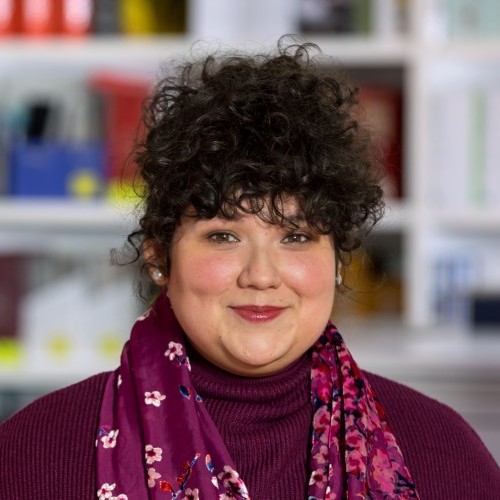
Francesqca Jimenez
Senior Social Scientist, HDR, United States
In her position as a senior social scientist and team member supervisor at HDR, Francesqca plays an integral role in the development and integration of human studies that support our clients’ knowledge needs and organizational goals. She is particularly interested in the relationships of built and social environments to human behavior, productivity and well-being. Francesqca’s responsibilities include study design and implementation oversight, developing instrumentation for data collection, writing research plans and protocols, facilitating focus groups and interviews, conducting quantitative and qualitative data analysis, and synthesizing findings and insights that support our clients’ success. With her psychology and human-environment relations background, Francesqca brings appropriate methodologies and rigor to our projects, helping to ensure positive human experiences and outcomes.
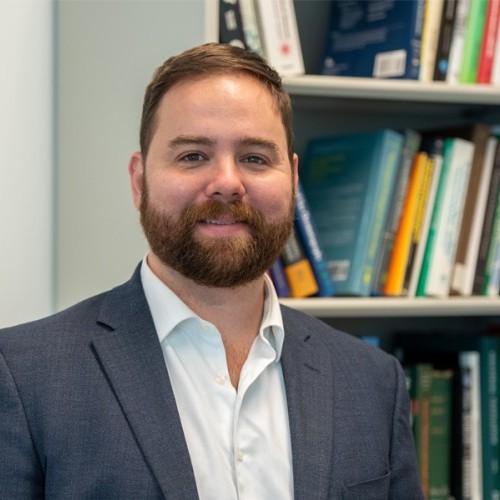
Garett Sansom
Assistant Professor, Texas A&M University, United States
Dr. Garett Sansom is an Assistant Professor in the Department of Environmental and Occupational Health at Texas A&M University’s School of Public Health. His research centers on environmental epidemiology and the pursuit of data-driven solutions to environmental health challenges, particularly in communities facing disproportionate exposure to pollution and climate-related risks. Dr. Sansom’s work bridges environmental monitoring, public health assessment, and community engagement to identify and address the health impacts of contaminants such as heavy metals, PAHs, and PFAS in soil, water, and air. He currently leads and collaborates on projects that investigate the links between environmental exposure and chronic disease, with a special emphasis on vulnerable populations along the Houston Ship Channel, in South Texas colonias, and across hazard-prone rural regions. As a core investigator in the Texas A&M Superfund Research Program’s Community Engagement Core and Director of the Together for a Better Tomorrow initiative, Dr. Sansom integrates citizen science, urban planning, and environmental risk communication to develop actionable interventions. His presentation at Healthy City Design will highlight findings from a multi-site environmental and health surveillance project poised to model public health improvements based on environmental and urban development plans.
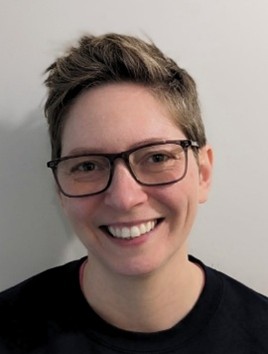
Georgina Everett
Research and impact lead, Re-Engage, UK
Georgina is the research and impact lead at Re-engage, a national UK charity focused on reducing loneliness and isolation for older people over the age of 75. Together with its volunteers and older people, the charity is growing its research work to better understand and address loneliness as we age. Before joining Re-engage four years ago, she worked in communication and media studies; and an increasing focus on audiences led her to move into applied research in the third sector.
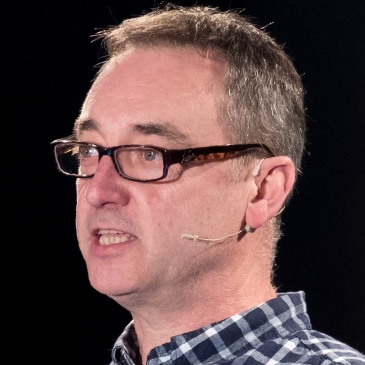
Graham Marshall
Director, Prosocial Place, United Kingdom
Graham is an urban designer and landscape architect of longstanding. His work spans research and practice from strategy to detailed context of specific regeneration programmes. He has a particular interest in the meaningful involvement of community members in regeneration and the development of lifetime conversations that reconnect people to their places. He is the Chair/Mentor of the Backin' Birkenhead Town Team that is delivering a community-led Place Plan for Central Birkenhead.

Greg Williams
Senior lecturer in public health, University of Manchester, UK
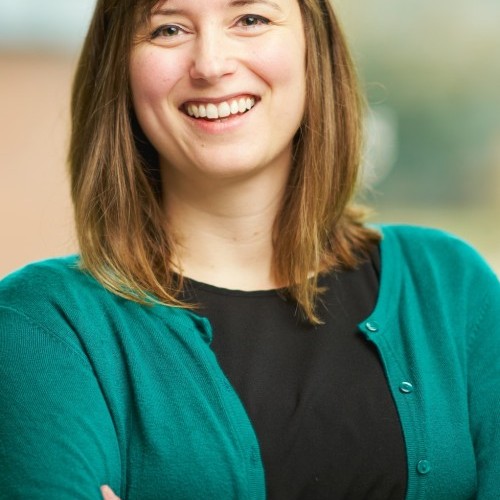
Hannah Grove
Postdoctoral research fellow, Kellogg College, University of Oxford, UK
Hannah is a postdoctoral research fellow at the Global Centre on Healthcare & Urbanisation at Kellogg College, University of Oxford, and a research associate at the Oxford Institute of Population Ageing. Hannah is an urban health geographer and planner, with an interest in how social and physical environments influence health and wellbeing throughout the lifecourse. With experience that bridges academia, policy and practice, she is interested in how we can co-design environments and communities that promote a good quality of life, whilst recognising and addressing existing socio-spatial injustices and health inequities. Hannah’s research interests span urban health and social geography, healthy urban planning, and geographies of ageing. She is passionate about innovative methods and methodologies, including the use of qualitative, geo-spatial and community-based participatory approaches to understand lived experiences of place.
Hannah previously worked as a postdoctoral researcher and assistant professor in human geography at Dublin City University, a research assistant at Queen's University Belfast, and as a planning policy officer. She completed her PhD at the Department of Geography at Maynooth University, exploring how older people in the Greater Dublin Area define and enact ageing well in place.
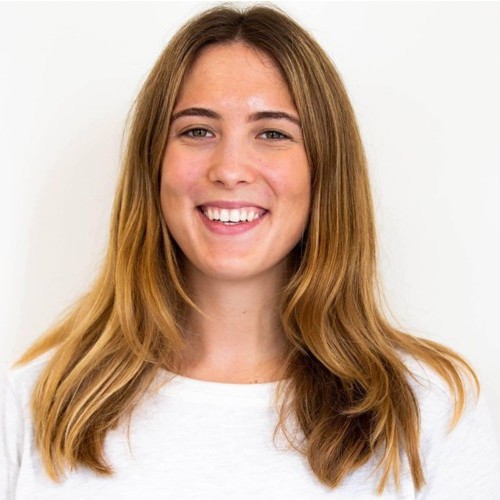
Hayley Oleksiak
Co-founder, CEO, Open Space Sandbox, United States
Hayley Oleksiak is the founder and CEO of Open Space Sandbox, an award-winning civic tech company that helps communities collaboratively design parks and public spaces through a gamified planning platform. Her work combines community engagement, spatial data, and urban policy to drive more equitable and creative citymaking. She was named a Knight Emerging City Champion and is a recipient of Northeastern University’s Women Who Empower Innovator Award.

Heather Macey
Director and trustee, Makower Architects, United Kingdom
Heather Macey is a Director and Trustee at Makower Architects. With a background in urban regeneration, supported housing and masterplanning, she is committed to creating healthier and more inclusive environments through design innovation.
Heather is a Trustee and Co-Lead of Homestead, a pioneering supported-housing model that brings together therapeutic design, health innovation and place-based care to support individuals with psychosis. She is also a founding member of Architects Aware!, a London-based think tank dedicated to addressing the homeless crisis.
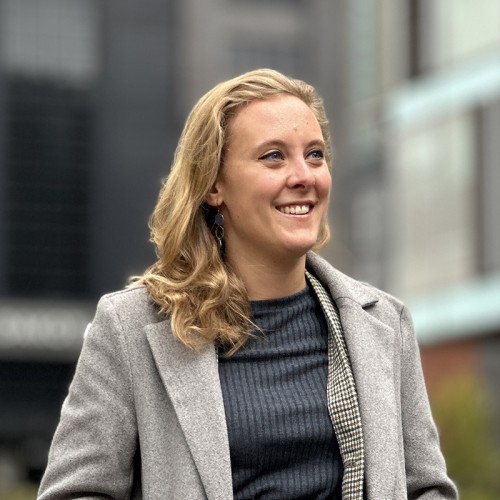
Helen Berg
Senior urban designer, BDP, UK
Helen is an architect and urban designer who started at BDP in January 2023, following five years at URBED. She has extensive experience working with Local Authorities, developers and community groups in challenging contexts across the UK.
Helen has project delivery experience across all stages of the RIBA Plan of Work, including feasibility studies, town centre masterplans and blueprints, residential and communal architecture and retrofit projects, research and design guidance, and post occupancy evaluation.
Helen is a skilled facilitator of community engagement and has co-ordinated engagement programmes on a range of complex projects including Stockton-on-Tees Blueprint, the Liverpool Waterfront Plan, and the Diamond Place ‘Design For Change’ engagement process in Oxford. She regularly delivers workshops on Participation in Architecture and Urban Design, and engages in student design reviews and occasional tutoring.
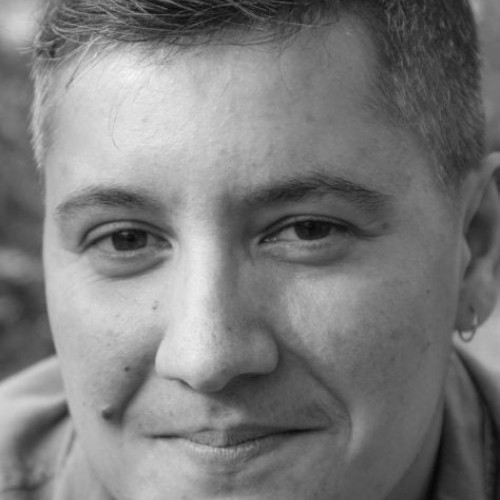
Hil Aked
Research and policy manager, Medact, UK
Hil Aked (they/he) is a writer, investigative researcher and organiser with a background in political sociology whose work has appeared in the Guardian, Independent, Sky News and Al Jazeera, as well as Pluto Press, Bloomsbury, and the journal Bioethics. Their first book Friends of Israel: The Backlash Against Palestine Solidarity, published by Verso, was shortlisted for the Bread & Roses Award 2024.
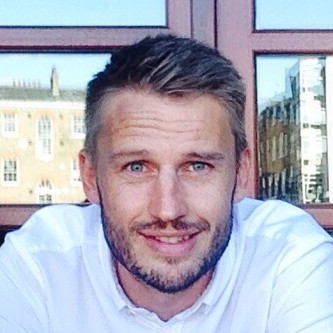
Iain Robinson
Assistant Director, Stockton-on-Tees Borough Council, United Kingdom
As Assistant Director within the Regeneration and Inclusive Growth Directorate, Iain leads a multi-disciplinary team with the remit to drive forward the Council’s Borough wide regeneration ambitions with an initial focus on transforming their six town centres through a £200m investment programme over the next few years. Iain leads on town centre redevelopment across the Borough’s town centres, covering large scale regeneration and redevelopment sites, infrastructure schemes, site acquisitions and business engagement & development.
Working at Stockton straight from University in 2002, Iain’s early career focused on several brownfield regeneration schemes along the River Tees corridor including the redevelopment of Tees White Water Course, Stockton Middlesbrough Initiative and North Shore redevelopment before going on to manage the Strategic Development Team within the Council, successfully drafting the Borough’s Local Plan and taking it through examination in public in 2018 as well as being the Council’s lead officer on the development and delivery of the 128 bed Hampton by Hilton Hotel scheme.

Ilona Sagar
Artist, Ilona Sagar, UK

Isabella Bhoan
Head of Landscape Europe & APAC, WW+P Architects, United Kingdom
Isabella L. Bhoan is a Chartered Landscape Architect (CMLI) and Head of Landscape Europe & APAC at WW+P Architects, London. She leads the strategic development of landscape architecture across Europe, the Middle East and APAC, establishing and scaling international teams while shaping the practice’s ecological and technological direction.
With over a decade of experience across the UK, Scandinavia, the Middle East, the United States and Asia, Isabella has delivered complex public realm, infrastructure, heritage and masterplanning projects in diverse climatic and cultural contexts. Her work ranges from royal gardens and historic landscapes in Denmark to large-scale urban regeneration, transport hubs, rooftop environments and nature-led masterplans internationally.
Isabella is the founder of ILF Landscape Architecture, an independent studio working globally with public and private clients to develop site-responsive, performance-driven landscapes. Across all roles, her approach is systems-based and future-oriented, grounded in ecological intelligence, collaborative leadership and measurable environmental impact.
She is the co-developer of Landscape Information Modelling, a decision-oriented framework that integrates environmental data, biodiversity metrics and climate resilience analysis directly into early-stage design workflows. Through this work, Isabella advocates for a shift in how urban environments are conceived: from static compositions to living systems that actively support biodiversity, public health and long-term resilience.
Her research, lectures and international speaking engagements focus on regenerative design, digital ecological tools and the role of landscape architecture in addressing climate and social equity challenges.
Driven by a deep commitment to the natural environment, Isabella’s ambition is to transform how cities are designed, ensuring that ecology is not an afterthought but the structuring intelligence of urban life.

Jayda David
Projects and youth consultant, LIVE + BREATHE, UK
Jayda David is Projects and Youth Consultant at LIVE + BREATHE, having had over 5 years of experience in youth work and facilitation across her home city of London. Jayda was the voice and face of LIVE + BREATHE’s launch video with her original poem “Breathe Like You” highlighting the aims and community spirit behind the launch in 2022.
As an acclaimed poet and spoken word artist, Jayda’s poetry centres around social and racial politics, and she regularly delivers workshops around Mental Health, Black British History, Climate action, and more. Her work and art has been studied at the University of Aberdeen as part of the English Literature degree, she was invited by the United Nations to be a global BreatheLife campaign voice and her poem for Ella Roberta Adoo Kissi Debrah was selected by the World Health Organisation to be performed at their Second Conference on Air Pollution and Health in Cartagena, Columbia.
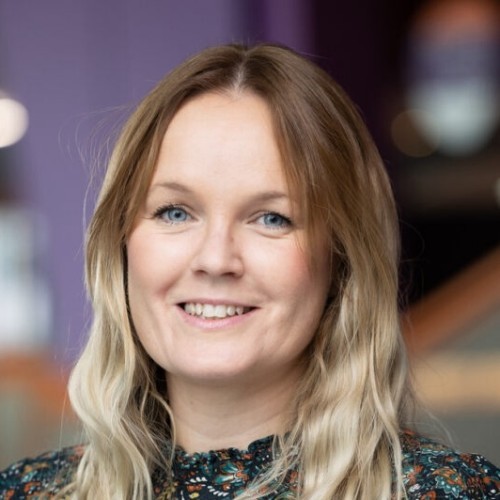
Jennifer Riding
Director of learning and engagement, The Lowry, UK
Jenny is the Director of Learning & Engagement at The Lowry, where she has worked since 2018, leading the department since 2020. In her role, she provides strategic leadership for the organisation’s charitable work with families, schools, young people, and communities.
With over two decades of experience in the arts and education sector, Jenny’s career has spanned drama therapy, applied theatre and community arts. She holds a first-class degree in Drama & English from Lancaster University and an MA in Drama Therapy from Derby University. Her practice has consistently focused on using the arts as a tool for social change and personal development.
Before joining The Lowry, Jenny was a lecturer in Applied Theatre at the University of Bolton and spent eight years at the Octagon Theatre in Bolton, where she developed and delivered a wide range of youth and community arts programmes.
Jenny is a passionate advocate for the transformative power of the arts. She believes that creativity is a human right and a vital force for growth and change.

Jennifer-Anne Smith
Chief executive officer, Salford Loaves and Fishes, UK
Jenni lives, works, and volunteers in Salford with a background in consultancy in the VCSE heritage sector, delivering several large Lottery-funded projects.
The Covid pandemic saw her become a founder member of the Salford Mutual Aid Coalition, a group formed to help support local people through the crisis. This provided the impetus to continue helping improve people's lives and to support Salford’s communities, leading to her joining Salford Loaves and Fishes as its CEO.
The charity supports anyone in need of assistance in overcoming barriers to accessing the support they need to address their life challenges. In the last three years, it has supported more than 8000 Salford residents, who in 2024 made over 24,000 visits to its drop-in centre.
Alongside this strategic role, Jenni still finds time to support our communities through her volunteering across a range of Salford’s organisations, including being the chair of Healthwatch Salford’s trustee board.
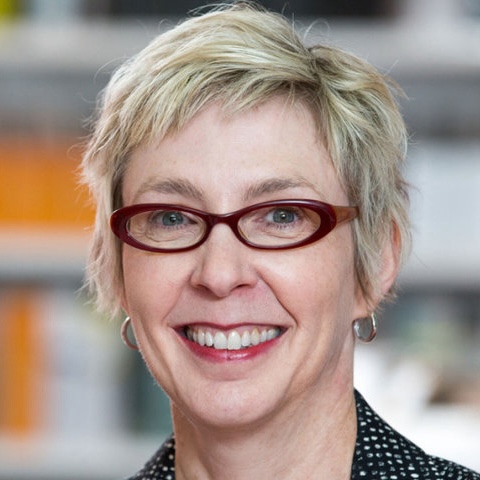
Jeri Brittin PhD
Director, social and behavioural sciences, HDR, United States
As HDR’s director of social and behavioural sciences, Jeri leads our team of social scientists, researchers, and analysts, who use proven expertise, curiosity, and creativity to design and conduct credible research and evaluation focused on real-world outcomes. Jeri is highly adept at developing and implementing quantitative, qualitative, and multi-method studies, including representative survey research, programme evaluation, longitudinal and time series approaches, and applications of systems science. Jeri’s work generates actionable insights to inform a range of behavioural and experiential interventions in various built and social contexts including communities, organisations and buildings. She is driven to find solutions to the “people side” of complex problems, and to help our clients create highly effective human-centred strategies, programmes, and infrastructure. She has worked extensively with diverse urban and rural communities, and has led local-, regional- and national-scale studies impacting programmatic and built solutions.

Jerryanne Hagan-Tetteh
Senior research executive, ClearView Research, UK
Jerryanne Hagan-Tetteh is a communications and research professional passionate about social impact, storytelling, and community engagement. She works at ClearView Research as a senior research executive and in the comms and marketing team, where she heavily works on content strategy, events, and co-creation workshops for clients such as Barnardos, Impact on Urban Health, and the Health Foundation.
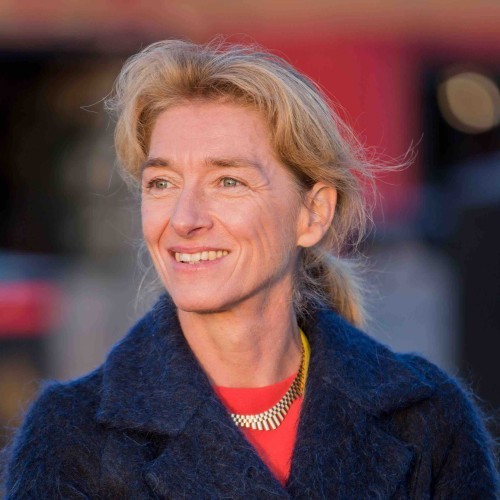
Jo Morrison
Director of Digital Innovation and Research, Calvium, United Kingdom
Enhancing people’s experience of places in novel ways has been at the heart of Jo’s work for 20+ years. By embracing inclusive participatory practices, such as co-design and community engagement, she hopes to create healthier neighbourhoods for all.
Project partners in the UK have included the NHS, National Trust, City of Edinburgh Council, University of Plymouth and the Arts Council England.
* Co-Founder and Co-CEO of the Association of Collaborative Design
* Fellow of Royal Society for Arts
* Fellow of Institute of Place Management
* Fellow of Higher Education Academy
* Industry Champion for Creative Industries Policy and Evidence Centre
* Trustee League of Friends of South Petherton Hospital.
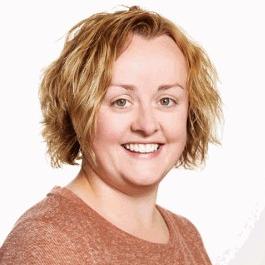
Joanne Caldwell
School Business Manager , University of Salford, United Kingdom
A highly effective, experienced, and insightful higher education manager with wide-ranging experience in operational and strategic management. Joanne has held senior level roles in both central services and Faculty/Schools in a diverse range of further and higher education institutions.
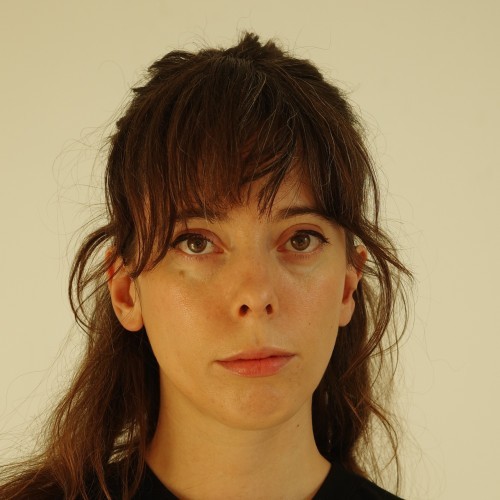
Joey Carr
Project officer, Safer Renting Initiative, Cambridge House, UK
Joey Carr is a project officer at the Safer Renting programme at Cambridge House charity, an advice and advocacy service assisting renters in the private rented sector. Joey is the caseworker for an Impact on Urban Health funded project which looks at improving access to housing advice for marginalised and minoritised renters across Lambeth and Southwark who are facing issues such as harassment, illegal eviction, disrepair, eviction and rent increases.

John Searle
Strategic director of place, Salford City Council, UK

Jonathan Harley
Head of production development, Dock10, UK
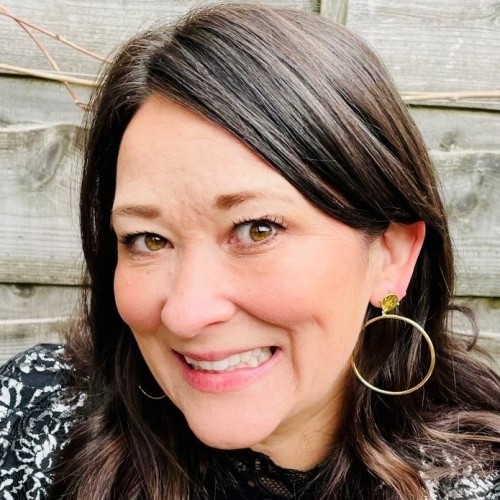
Josie Cahill
Head of partnerships and engagement, BBC Salford, UK
Josie Cahill is a leader in the culture and creative industries, with 20 years’ experience spanning public, private, and non-profit sectors.
She is currently Head of Partnerships and Engagement at the BBC in Salford, where she drives meaningful place-based partnerships and activities with a range of organisations and stakeholders.
Previously, Josie was Director of Place at MediaCityUK— a large creative, tech and media cluster in Salford, Greater Manchester and one of Europe’s most successful regeneration projects—where she led cultural placemaking, partnerships and place branding. Whilst in this role, alongside British designer Wayne Hemingway MBE, she co-founded We Invented the Weekend, a free multi-partner festival with an annual audience of 90,000 people.
Her career began at the British Council and evolved through key roles at the BBC, including leading strategic communications for the BBC North relocation and co-founding Women at the BBC, the organisation’s first women’s network.
Josie speaks passionately about placemaking, media, partnerships, events & festivals, and building community. Ask her about astrophysics and she’ll smile politely.
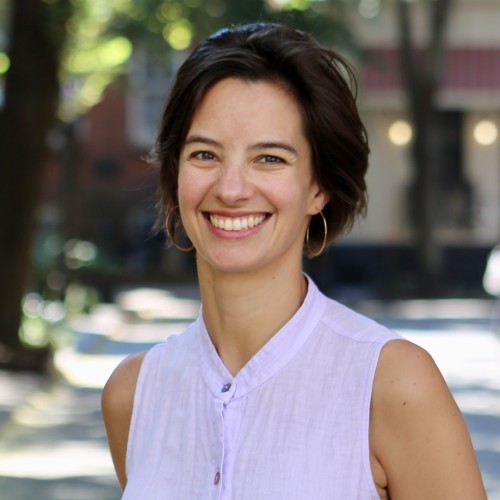
Julia Day
Partner & team director, Gehl, United States
Julia is a Partner & Director at Gehl, a global urban design and strategy practice. Julia is skilled at developing multi-sector partnerships that highlight the power of place to impact health and community development. With 20 years of experience working with city agencies and community leaders, she has led engagement projects in communities near and far, supporting urban leaders in ensuring people are visible and heard in the city-making process. Julia works across design, strategy, and research methods to demonstrate the integral role streets play as connective, vibrant public spaces.
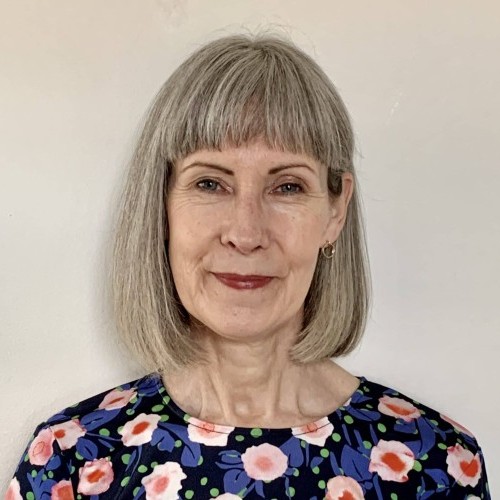
Julia Thrift
Director, Healthier Placemaking, Town and Country Planning Association, United Kingdom
Julia Thrift joined the TCPA in May 2013 and manages projects concerning planning and public health, green infrastructure, and planning and social justice. Throughout her career she has been interested in the links between the design of the built environment and the quality of people’s lives. She worked for CABE, the Commission for Architecture and the Built Environment, where she was the founding director of CABE Space, the government’s adviser on policy and practice regarding England’s urban parks and public spaces. She began her career as a journalist, writing about design, architecture and art. She has a degree in philosophy from University College London.
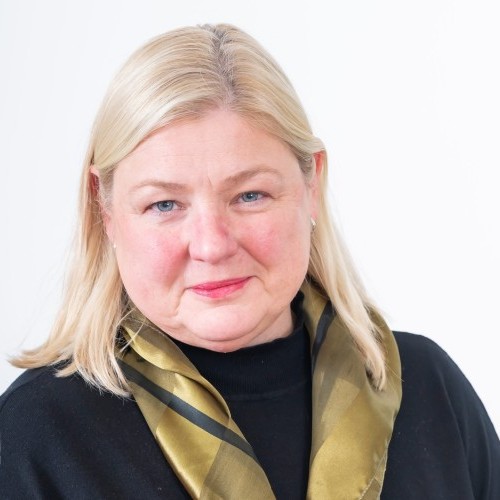
Julie Charge
Deputy chief executive and chief financial officer, University of Salford, UK
Julie Charge serves as the Deputy Chief Executive and Chief Finance Officer at the University of Salford. Since joining the institution in 2014 as Director of Finance, Julie has progressed to her current role, which she assumed in January 2024. This expanded remit encompasses Estates & Facilities, Student Services, Culture and Marketing, Communications, and External Relations.
Throughout her tenure, Julie has played a key part in driving positive transformation at Salford, notably championing Equity, Diversity, and Inclusion. She has worked to ensure these principles are embedded in the university’s practices and physical spaces, with initiatives such as the equalisation of holiday entitlement for all staff in July 2024 standing as testament to this commitment.
Beyond Salford, Julie is involved with several external sector bodies: she is a member of the British University Finance Directors Group (BUFDG), represents the university on the JISC Finance Committee, serves as a co-opted member of the UCEA Audit Committee, and is a Non-Executive Director for UMAL.
More widely Julie is a Non-Executive Director at York and Scarborough Teaching Hospitals Trust and a Trustee for the newly formed Yorkshire Learning Trust.
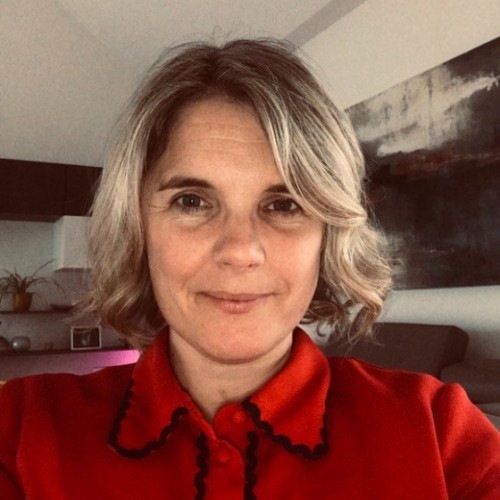
Karen O’Mahony
Senior executive planner, Cork City Council, Ireland
Karen O'Mahony is senior executive planner in Cork City Council and was a member of the HIA team that carried out the assessment on the Cork City Development Plan (2022-2028).
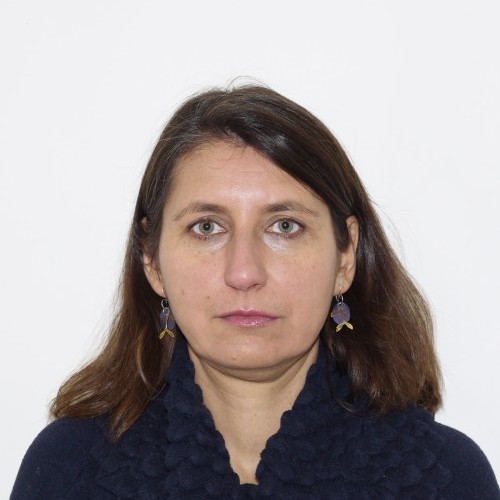
Kasia Speakman
Senior transport planner, Leeds City Council, UK
Kasia is a senior transport planner with over 20 years of experience of planning, designing for, and promoting sustainable and active travel while making street environments more inclusive. Kasia is proud to work for Leeds City Council, with its ambition to be a city where you don’t need to own a car, and at the same time work alongside disability groups to bring the lived experiences of disabled stakeholders to inform and influence the transformative public space and transport projects that are happening in the city.

Kate Hadfield
Studio director, Carbon Creative, UK
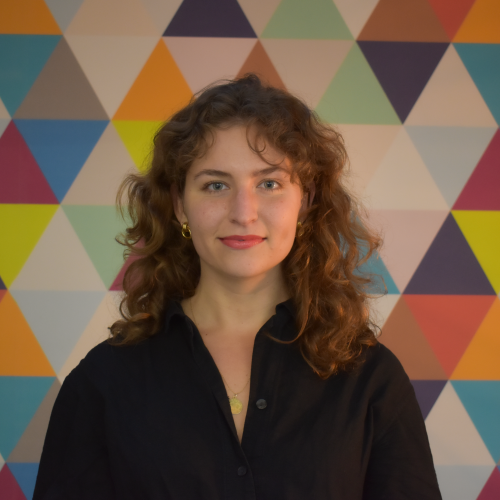
Katie Mullowsky
Director of research and urban health, Future Places Studio, UK
Katie is the director of research and urban health at Future Places Studio. She has over a decade of experience across the public, private and charity sectors on a range of technical urban planning projects with the overarching goal of addressing and challenging health inequalities.
A transport planner by training, she has long been focused on the link between infrastructure, air quality and community health outcomes. Prior to joining Future Places Studio, she worked at Momentum Transport Consultancy, leading on the spatial strategy and public engagement around progressive mobility concepts. She has worked closely with a range of central London business improvement districts, local authorities and private-sector clients to deliver strategic placemaking and active travel gains. She also has a strong writing and research background, and is currently working on a book project about the social history of a major highway in New York.
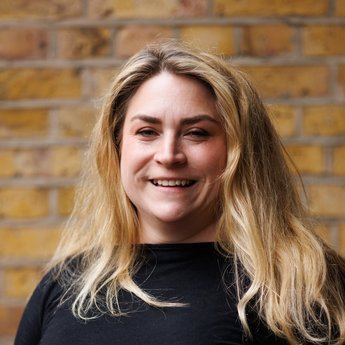
Katie Pitts
Associate, Onpurpose, UK
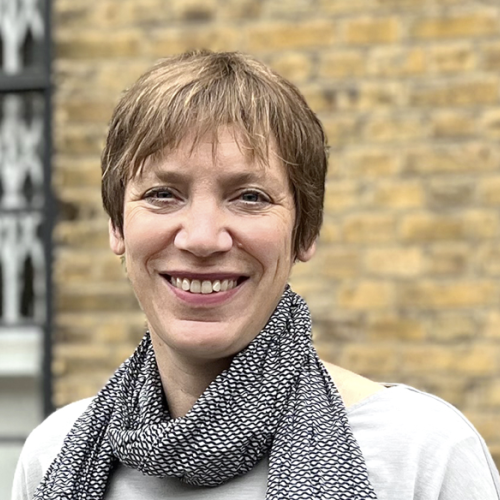
Katja Stille
Director, Tibbalds, UK
Katja Stille is a director of Tibbalds Planning and Urban Design, and former chair of the Urban Design Group.
As an experienced urban designer with a background in architecture and engineering, she works with private and public clients and provides high-level urban design advice to government and placemaking bodies, including on new towns, medium-density development, and how we can create healthier communities. Working collaboratively across professional boundaries, she seeks to unlock the issues that prevent us from delivering good design. She oversees masterplans and development frameworks from concept through to delivery.
Katja’s objective is to incorporate principles of sustainability, health and wellbeing into her broad spectrum of work, including town centre strategies, masterplanning new communities, regeneration, and design policy.

Kavya P Krishnan
Accessibility and universal design expert, Architect, Mobility Mojo, UK
Ar. Kavya P Krishnan is an architect who holds an MSc in health, wellbeing, and sustainable buildings from University College London’s (UCL) Bartlett School of Environment, Energy & Resources and works as an accessibility and universal design expert at Mobility Mojo. She is dedicated to creating more inclusive and equitable built environments through design and research. Having practised architecture across various Indian cities, she has designed projects and homes focused on improving accessibility and wellbeing. Her research bridges architecture, human psychology, and inclusivity, focusing on enhancing accessibility and cognitive support for diverse communities, particularly dementia and ageing populations in urban and residential settings. Her award-winning funded dissertation at The Bartlett reflects this commitment, building on extensive research since 2019, and has been presented at international conferences, including the Alzheimer’s Association International Conference. Kavya continues to advocate for environments that promote health, equity and inclusion through both academic inquiry and professional practice.
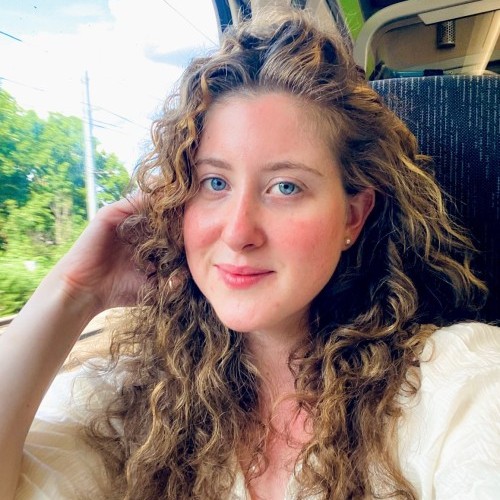
Kayla Schulte
MRC Centre Early Career research fellow, Imperial College London, UK
Kayla's research draws on sociological, human geography, and science, technology and society (STS) theory to explore engagement with emerging mobile apps, sensors and other digitally enabled sources of real-time air quality information. Methodologically, she specialises in participatory approaches to research, and how to blend quantitative and quantitative data to support more equitable air quality governance.

Kelly-Marie Rodgers
Strategic lead – healthy active places, Greater Manchester Moving, UK
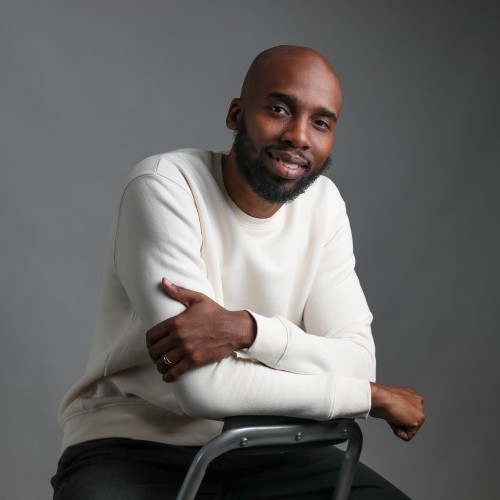
Kenny Imafidon
Managing director and co-founder, ClearView Research, UK
Dr Kenny Imafidon MBE is an entrepreneur, author and social commentator. He is the co-founder and managing director of ClearView Research, an agency that specialises in research and strategy projects focused on diverse and underrepresented communities.
Kenny has led impactful projects across the UK and globally with FTSE 250 companies, global brands, charities, and public institutions. In 2022, Kenny featured in Forbes' annual 30 under 30 list, and his debut book, 'That Peckham Boy', was published by Penguin in 2023. He has over a decade of non-executive board experience and currently serves as a trustee for BBC Children in Need.
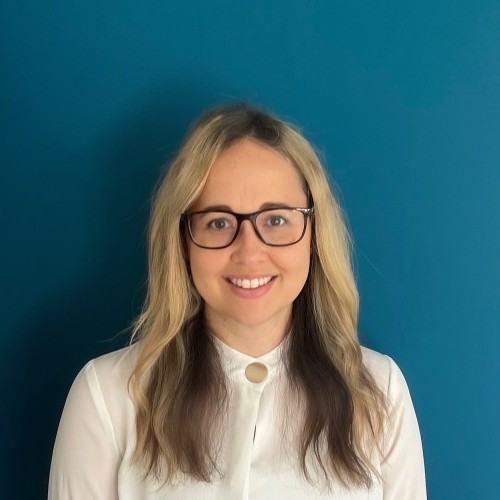
Leah White
Clinical Director Adult Mental Health Tower Hamlets , East London NHS Foundation Trust , United Kingdom
Dr Leah White is currently the Clinical Director for adult mental health in Tower Hamlets, East London NHS Foundation Trust. Her clinical background is in Older Adult Psychiatry where she works in the CMHT for Older Adults in Tower Hamlets. Dr White studied at Barts and the London School of Medicine and Dentistry, graduating in 2009, and has spent the majority of her career working and training in East London. Dr White's area of interest is returning the focus of mental health care to the community, working alongside third sector/voluntary organisations as well as the residents we serve to deliver a robust neighbourhood centred mental health offer. In collaboration with NHS England and third sector organisations Tower Hamlets have launched what will be 1 of 6 pilot sites nationally. These are based on the Trieste model and have already begun to truly transform the mental health care offer.
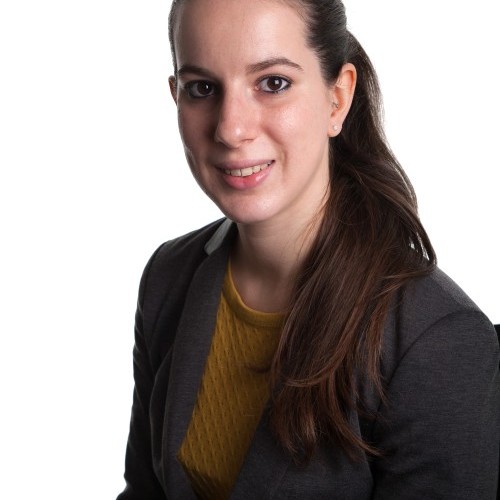
Lidia Derossi
Principal engineer, AECOM, UK
Lidia is a Chartered Civil Engineer with a passion for designing places that put people first. With over a decade of experience in sustainable transport and urban design, she has led the development of Mobility Hubs across the UK and Ireland helping communities rethink how they move, connect, and thrive.
At AECOM, Lidia brings together engineers, urban designers, ecologists, and local voices to deliver projects grounded in Healthy Streets principles and a commitment to Active Travel and Sustainability. Whether transforming neighbourhoods into walkable, liveable spaces or guiding councils through complex regeneration schemes, her work is rooted in collaboration, creativity, and a firm belief in the power of thoughtful design to shape healthier, more resilient futures.
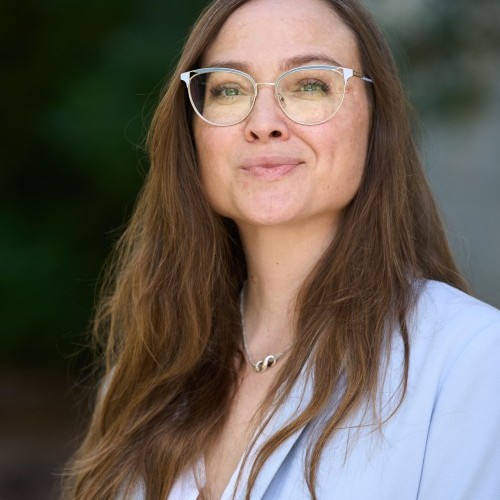
Lindsay Sansom
Research Assistant Professor, Texas A&M University, United States
Dr. Lindsay Sansom is a Research Assistant Professor in the Department of Environmental and Occupational Health at Texas A&M University’s School of Public Health. Her work explores the intersection of environmental justice, greenspace planning, and community health, with a focus on historically underserved populations. Dr. Sansom’s interdisciplinary research draws on principles from the Socio-Ecological Systems Framework to examine how access to nature can mitigate environmental health burdens and foster resilience. She currently leads and collaborates on multiple projects addressing water insecurity, greenspace equity, and health disparities in both urban and rural communities across Texas. As a Faculty Fellow at the Center for Health and Nature, she directs a research leadership program that mentors early-career scholars in nature-based health interventions. Her presentation at Healthy City Design will share findings from a community-engaged modelling study evaluating the public health benefits of greenspace investment in an environmentally overburdened neighborhood in Houston.
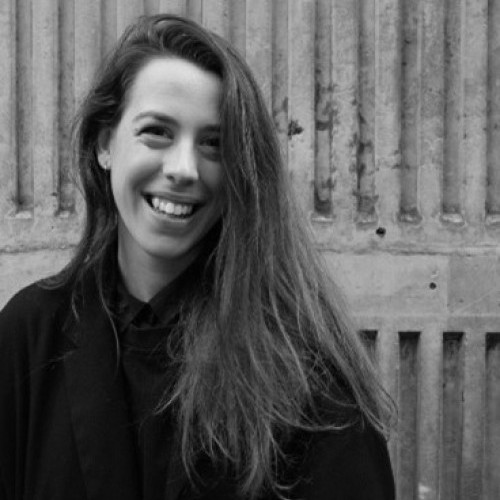
Lucy Sykes
Senior active travel consultant, AECOM, UK
Lucy is a senior active travel consultant working for AECOM's Streets Team in Manchester. She has a background in masterplanning and has a breadth of technical experience working nationally on projects with an active travel and placemaking focus, including active travel masterplans; mobility hub designs; street design coding / guidance; Mini-Holland feasibility studies; network audits; and concept designs. She is identified as one of AECOM's inclusive streets subject-matter leads, whereby she co-leads an internal action group advocating for the recognition of people, movement and place within street design.
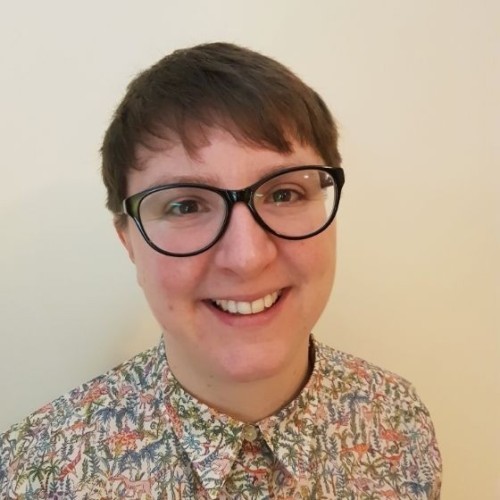
Lucy Vanes
Public health consultant, Manchester City Council, UK
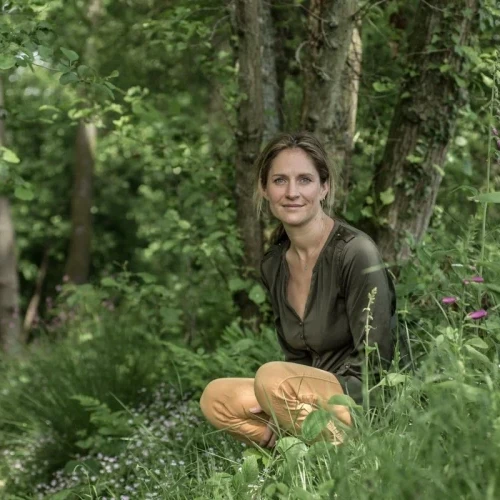
Lulu Urquhart
Landscaper, Urquhart & Hunt Landscape Design, UK
Lulu Urquhart has been developing her relationship with the natural landscape for the past 30 years. She’s a passionate plantswoman and acclaimed designer on the world stage, specialising in nurturing generative and dynamic landscapes and gardens in both rural and urban settings. Her work hones in on ecological restoration, reigniting subtle earth energies, myth and storytelling, and supporting nature’s recovery and so to our own recovery to natural balance and living in harmony.
At the heart of her work is the re-establishment of our connection to nature – reawakening an innate understanding of how to live in a symbiotic relationship with the natural landscape and among all the living world, helping people create a sense of place in an ever-changing world.
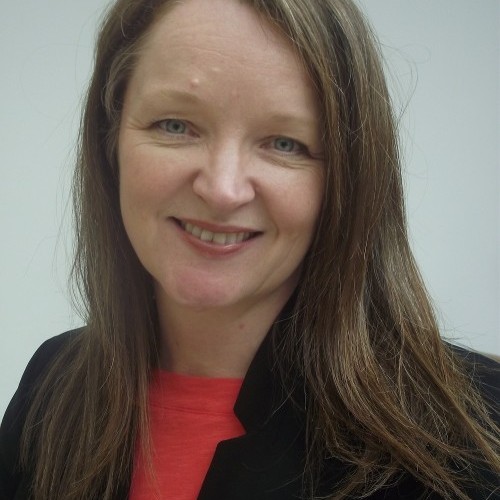
Lynn Donkin
Director of public health, Bolton Council, UK
Lynn Donkin is Director of Public Health in Bolton, Greater Manchester, where she leads strategic efforts to improve the public’s health and reduce inequalities. With a background in public health policy, systems leadership, and community engagement, Lynn champions place-based approaches that address the wider determinants of health. She has played a pivotal role in shaping Bolton’s response to health challenges through integrated partnerships across local government, health services, and the voluntary sector. Lynn is particularly passionate about creating healthier, more inclusive urban environments that support wellbeing across the life course. She brings a strong commitment to equity, sustainability, and co-production, ensuring that local voices are central to decision-making.
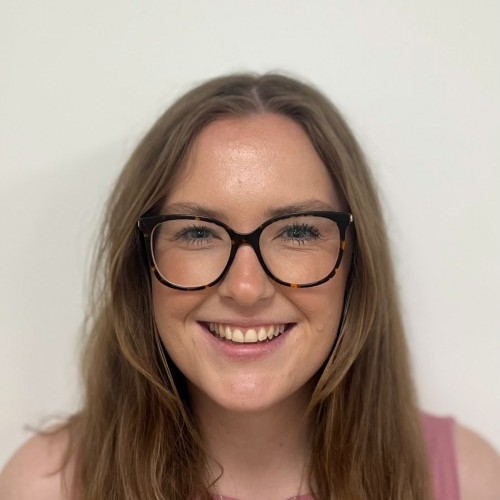
Maddie Harkness
Senior engineer, AECOM, UK
Maddie is a Senior Engineer in AECOM’s Streets Team based in Leeds. She is passionate about promoting sustainable transport choices and has contributed to a wide range of active travel projects across the UK during her career to date. Maddie takes pride in delivering innovative solutions that enhance walking, wheeling, and cycling infrastructure, tailored to meet client needs and encourage modal shift. Maddie is especially committed to improving her local area, working closely with Leeds City Council to deliver inclusive and accessible infrastructure improvements in and around Leeds City Centre.
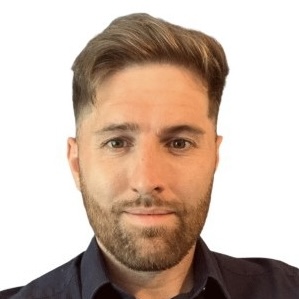
Marc Harris
Head of Insight and Impact, NHS Horizons, United Kingdom
Marc is the Head of Insight and Impact at Horizons. Marc blends psychological and sociological theory with an extensive background in research and evaluation. Marc holds a PhD in sociology and has published more than 15 academic papers in peer-reviewed journals. These publications span areas such as behaviour change, programme implementation, motivational theory, gamification, alcohol and substance use, physical activity promotion and research ethics.
Marc has a passion for applying quantitative and qualitative research methods to real-world settings and using the results to create actionable insights which drive behaviour change. Marc is personally driven to address health inequalities. He grew up in the South Wales Valleys, where fewer people engage in health promoting behaviours and where people live fewer years in good health. Marc aims to use data, research methods and theory to help address these stubborn inequalities which are prevalent in many communities throughout the UK.
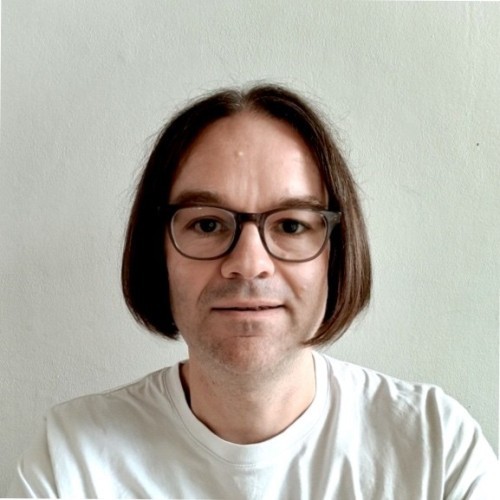
Mark Drane
Founder and director, Urban Habitats, UK
Mark is an experienced practitioner and researcher with 20 years’ experience. He works across the fields of public health, urbanism, and architecture. His work addresses the wider determinants of health, focused on promoting holistic wellbeing, and reducing health inequities. His doctoral research, Healthy Streetlife, undertaken during the Covid-19 pandemic, highlights the important role of streets as health settings. Mark is a practitioner and founded Urban Habitats in 2018, putting research into action in local places. He is a board member at Green Squirrel, a social enterprise with a vision for caring communities.
Mark has 20+ years’ experience in industry, having contributed to the delivery of over $2 billion of social infrastructure. Now his passion is to fuse practice and research with evidence-informed, co-created, and community-based interventions for human and planetary health. Happiest while on a bicycle, Mark is an optimistic gardener and lives in Cardiff, Wales with his family.

Mark Hammond
Senior Lecturer, Manchester Metropolitan University and Manchester School of Architecture, UK
Mark is senior lecturer and deputy research lead at Manchester School of Architecture. His research focuses on the intersections between architecture and urban ageing in the home, community and city, with a specific interest in housing inequality and spatial justice. Mark’s research employs participatory and design research methodologies, working with communities of older people to develop ‘age-friendly’ initiatives. Mark also works extensively with local government on policy-engaged research, including a two-year secondment at the Greater Manchester Combined Authority (2018-21), where he worked with the GM Ageing Hub to develop policy and strategy around urban ageing.
Mark is currently principal investigator on ‘Co-creating Age-Friendly Social Housing’, a three-year design-research programme investigating how older people and social housing providers can collaborate to develop innovative housing and community models.
Other recent research projects include:
• ‘Manchester Age-Friendly Neighbourhood’ – a four-year programme that engaged more than 4000 people in the creation and delivery of community action plans across Manchester, and which led to £300,000 of investment in programmes to support older people in four neighbourhoods in Manchester (w/ Southway Housing Trust).
• ‘Rightsizing’ project – funded by the Centre for Ageing Better, this uses large-scale data, spatial analysis and workshops to support policymakers to better plan for the diverse needs of older people within neighbourhoods.
• ‘Age-Friendly Northern Gateway/Victoria North’ – a study of older people’s experiences of 20 years of failed urban regeneration in Collyhurst, Manchester, and their hopes and concerns about future plans for their neighbourhood (w/ University of Manchester and Newcastle University).
• ‘A Design for Life’ – developed as part of his secondment to GMCA, this free ebook challenges urban design professions to find new ways to better address the increasingly diverse needs and aspirations of older people (w/ Pozzoni Architecture).
Mark is a fellow of the Higher Education Academy, and is currently Year 2 lead for the architecture atelier in the Master of Architecture programme.
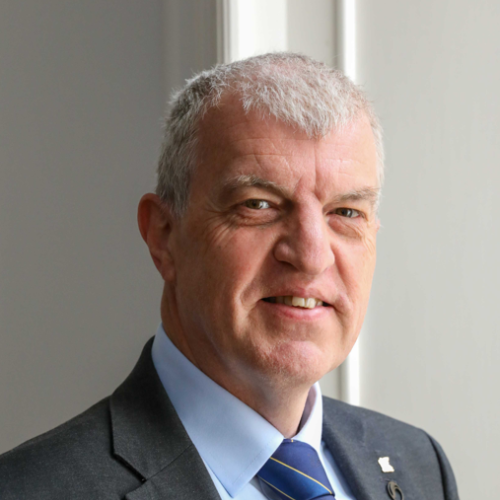
Mark Walker
Director, Healthcare, Stantec, United Kingdom
Mark is a highly experienced Chartered Engineer with more than 40 years in the construction industry, specialising in the delivery of complex healthcare projects across the UK and internationally. As Stantec’s Healthcare Sector Lead in the UK, he provides strategic direction and technical leadership across a wide portfolio of hospital and clinical infrastructure programmes. Mark is a registered Authorising Engineer with IHEEM for both medical gases and ventilation and serves as Chair of the CIBSE Healthcare Group, contributing to industry standards and best practice.
A strong advocate for building safety, Mark champions rigorous governance, improved compliance culture, and earlystage risk mitigation to ensure safer, more resilient healthcare environments. He is committed to advancing decarbonisation within the healthcare sector and promoting design solutions that reduce backlog maintenance. His work focuses on creating sustainable healthcare facilities that minimise risk and address the growing impacts of climate change, ensuring safe, efficient environments for patients, staff, and communities.

Martyn Evans
Creative director, Landsec, UK
Martyn Evans is Creative Director at Landsec, one of the largest property development and investment companies in the UK. Martyn spent 17 years with Cathedral Group/U+I, including six years on the board before leaving to become the Development Director at the 1,200-acre Dartington Hall Estate in Devon in 2016. He returned to U+I in 2019 and was part of the team that joined Landsec on its acquisition of U+I in 2021. Martyn works across Landsec’s portfolio of commercial, retail and mixed-use developments particularly its large regeneration projects at the O2 Centre in Finchley Road, Lewisham Town Centre, Mayfield in Manchester and on the vision for the future of MediaCity in Salford following its acquisition by Landsec at the back end of 2024. Many of the projects Martyn has worked on have been driven by heritage assets at their centre. Martyn is Chair of the London Festival of Architecture, the Founder of YADA, a networking organisation that brings together young people in the architecture and development industries, writes a monthly column in BDOnline and has been a jury member of many architecutre prizes and awards schemes.
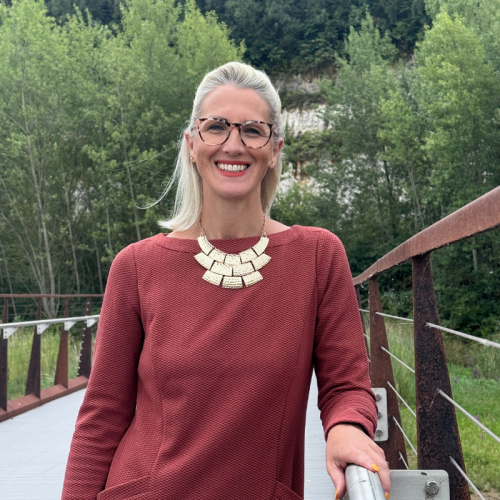
Mary Rouse
Community development manager, Ebbsfleet Development Corporation, UK
Mary Rouse is a dedicated community development professional with over 20 years of experience across health, education, housing, and social care.
As Community Development Manager at Ebbsfleet Development Corporation, she ensures residents and stakeholders actively shape the future of Ebbsfleet Garden City through co-design and inclusive placemaking. Mary leads initiatives such as a network of 14 community gardens, a behaviour-change app with nearly 4,000 users, and the development of a volunteer network and training programme. She also supports the Development Corporation’s strategic planning through research and evaluation.
Previously, she developed a proposal for a pioneering Health and Wellbeing Hub, collaborating with NHS Trusts and ICBs to create integrated service models. Mary holds an MSc in Healthcare Management, a BA in Philosophy from Cambridge, and is PRINCE2 certified.
Beyond her role, she is a charity trustee, former CIC founder, and youth worker, committed to equity and community empowerment through inclusive leadership.
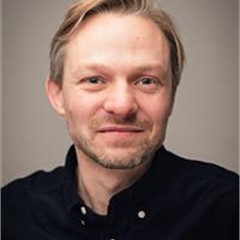
Mat Jones
Professor of public health and community development, University of the West of England, UK
Mat Jones is professor of public health and community development at the Centre for Public Health and Wellbeing at the UWE Bristol. He has an academic background in social anthropology, social and political science applied to public health, and a practice background in community development. Mat is currently working on eight research projects in the areas of nature, food systems and health; community capacity building; and inequalities in urban health. These include the EU-funded RECETAS nature-based social prescribing programme. With a track record of research with 48 projects, and producing 77 reports, 55 conference papers and 47 peer-review publications, Mat is a leading UK specialist in participatory methods for the evaluation of complex health and social change programmes. Methodologically, he focuses on the pragmatic application of co-production, realist evaluation, outcome harvesting, social return on investment, and theory-of-change methods alongside the use of quantitative pre-post and quasi-experimental methods. He sits on a number of funding selection committees, including the National Institute for Health and Care Research’s DLAF and ESRC/UKRI Evaluation Development Fund.

Matt Towner
Director of programmes, Impact on Urban Health, UK
Matt is the Director of Programmes at Impact on Urban Health.
Matt first joined Impact on Urban Health in 2018. He was previously Programme Director for our Health Effects of Air Pollution programme. In this role, he led on shaping the strategic direction for the programme which aims to reduce air pollution emissions and associated health inequity. He also led the team to fund and collaborate with a broad range of partners, such as community activists, cargo bike companies and national campaigning organisations.
He previously worked on our Children’s Health and Food, and Financial Foundations for Adult Health programmes. He has also headed up ShareAction’s Health Team as part of a secondment.
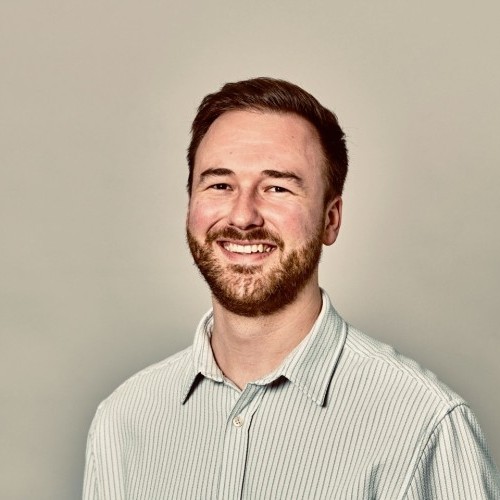
Matthew Cooper
Research associate, Newcastle NIHR Patient Safety Research Collaboration, UK
Dr Matt Cooper is a research associate in the Newcastle Patient Safety Research Collaboration (PSRC), deputy director of equality, diversity, and inclusion for the PSRC and School of Pharmacy, a trainee health psychologist, and an honorary research associate at the Newcastle Upon Tyne Hospitals NHS Foundation Trust. He is an expert in behaviour change methods, qualitative enquiry, and evidence synthesis. He has a developing record of research in health and social care, particularly focused on the integration, transitions from hospital to home, and community-based care. In his role as deputy director for EDI, Matt supports the development of policy, education, and research practice to ensure equitable provision, inclusive approaches, and diversity in academia.
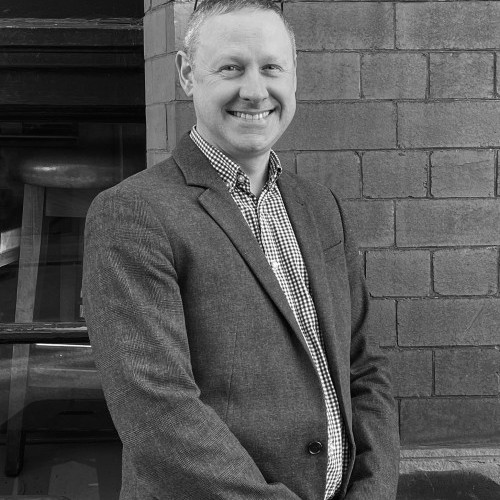
Matthew Hird
Head of healthcare, TODD Architects, UK
Matthew is head of healthcare at TODD Architects. He is a highly experienced and well-respected architect who is dedicated to the creation of quality healthcare environments. Matthew is responsible for leading TODD’s healthcare strategy across all studios in the UK and Ireland to deliver a growing portfolio of transformational healthcare projects.
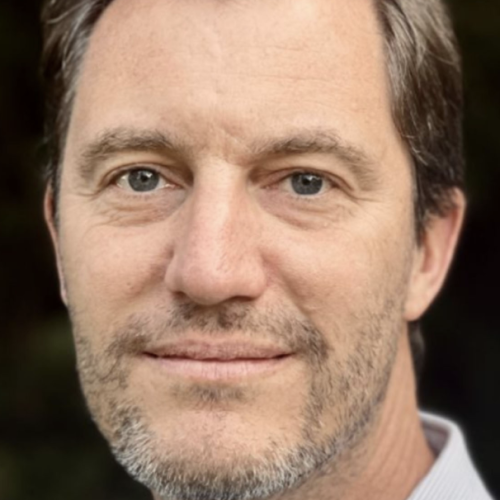
Matthew Morgan
Co-founder, Director, Quality of Life Foundation, United Kingdom
Matthew Morgan is the Director and co-Founder of the Quality of Life Foundation. He is responsible for setting strategy with the Board of Trustees, overseeing the Foundation’s commercial services and delivering lasting impact with the Quality of Life team, itself focused on highlighting the impact of the built environment on people’s lived experience.
With over 20 years’ experience in writing and communications, Matthew has previously worked with architects, engineers and developers; in book and magazine publishing; and with charities and start-ups. He is a participant on a number of advisory boards and chairs a multi-stakeholder group that advises on community engagement as part of the UKRI-funded CCQOL (Community Consultation for Quality of Life) project.
A published author and mental health advocate, Matthew is particularly interested in how communities are formed and their effects on people’s physical, social and psychological wellbeing, an interest he developed while growing up in an intentional community in Kent.
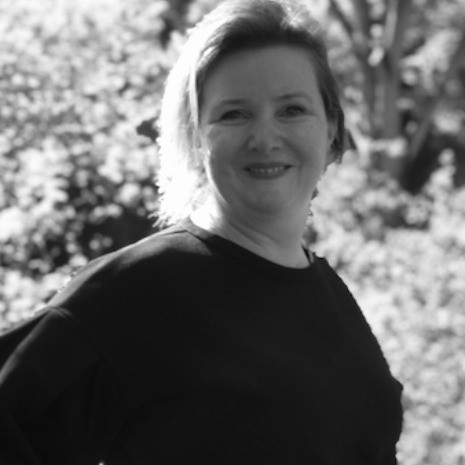
Maud Vries
CEO, BYCS, The Netherlands
Maud is co-founder and CEO of BYCS, an Amsterdam based not-for-profit organisation, guided by the belief that bicycles transform cities, and cities transform the world. In this role, she leads company strategy, partnerships, global business development and network expansion. As a highly entrepreneurial individual, her programmes have led to multi-sectoral global partnerships, garnered vast international media attention, and the organisation's Bicycle Mayor Network has grown to more than 150 cities in more than 35 countries.
A creative strategist by training, she holds over two decades of experience working with large companies and municipal governments on social impact projects, in the fields of community building, public relations, media and communications.
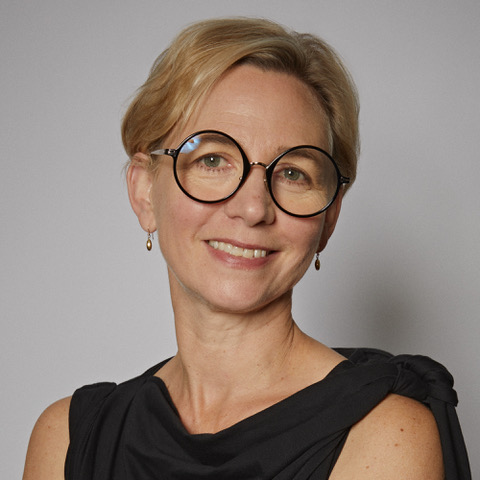
Melda Bur
Architectural designer, Melda Bur, UK
Melda Bur is a London-based architectural designer with over 25 years of international experience in creative leadership, working for a range of high-profile clients and global brands from oBices in New York, Los Angels and London.
Melda studied Fine Art and Interior Design in her native Canada, before moving to New York where she received a graduate degree in architecture from Columbia University. The focus of her work in New York and Los Angeles was retail design, working for brands from Puma to Georgio Armani. In 2004 she moved to London.
Melda was Selfridges Director of Store design for almost 14 years, overseeing the design transformation of the four Selfridges stores. During her time at Selfridges, she became interested in the role of the public realm and civic spaces, in their many forms. Through her work, she championed the broader role of the department store not just as a place of commerce but for the enrichment of daily life both for residents and visitors to London, Birmingham and Manchester.
Most recently, Melda has been working with a Canadian team including Landscape Architects, ecologists, Indigenous consultants, and historians, on the redevelopment of Queen’s Park, a beloved and historically important green space in downtown Toronto. Her research and interactions have furthered her appreciation of the importance of public places, particularly parks and green spaces to the health and wellbeing of all urban dwellers and the significance of ecology, generosity and community engagement.

Mercy Sepadi
Lecturer, Tshwane University of Technology, South Africa

Mina Sufineyestani
Postdoctoral research fellow, University College London, UK
Dr. Mina Sufineyestani is a social and urban planner with a PhD in Urban Studies from Heriot-Watt University. She has a strong interdisciplinary research background that spans planning, architecture, sociology, public health, housing design and policy, and environmental psychology. Mina specialises in exploring people-environment interactions in both built and natural settings, using mixed-methods approaches. Her work focuses on the health and wellbeing impacts of home, housing and neighbourhood quality, adaptive reuse, Permitted Development Rights, and planning regulation. She is currently a Research Fellow at University College London, contributing to a national NIHR-funded study on the health impacts of office-to-residential conversions. With professional experience across local government, industry, and academia in the UK, Italy, and Iran, she combines international insight with a commitment to policy-relevant, inclusive research. Mina’s work promotes participatory approaches to planning and design for healthier, more equitable urban environments.
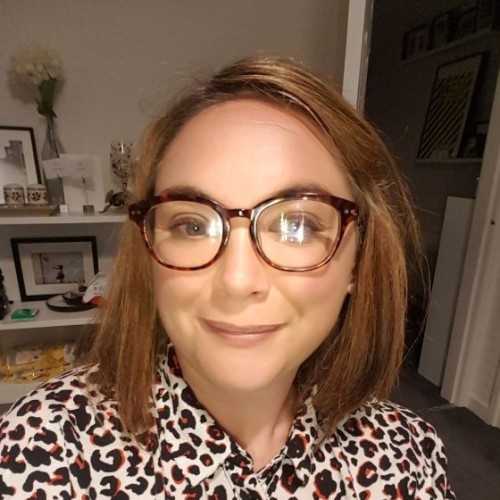
Nadine Watson
Senior lecturer in people management, Salford Business School, UK
Nadine is a senior lecturer in people management and holds the role of subject group head for the HRM team. She is also equality, diversity and inclusion (EDI) head for people and culture in Salford Business School. It is in this role that she sits on the project board for the new SBS Building. She leads the People Workstream and oversees the EDI requirements in the project.

Natalie Grinvalds
Researcher, health and wellbeing educator and coach; physical activity professional, Advanced Wellbeing Research Centre (AWRC); Founder, Resilience Fitness + Wellbeing, UK
Dr Natalie Grinvalds is a health behaviour researcher, certified health education specialist, and National Board certified health coach with over a decade of experience spanning the UK and US public health sectors. She specialises in exploring how individual behaviours, workplace environments, and broader social and environmental systems interact to influence health and wellbeing outcomes in urban communities.
Natalie holds a PhD in health behaviour from Indiana University, where her doctoral research focused on co-located models of healthcare and leisure to promote physical activity and improve health outcomes. She also holds a master's in public health and is a certified health education specialist (CHES). Early in her career, she designed and delivered grant-funded health promotion programmes in local health departments in the US. Since relocating to the UK, she has worked across academia, local government, and community settings, focusing on integrated, evidence-based approaches to health promotion and disease prevention.
She is the founder of Resilience Fitness + Wellbeing, a workplace wellness consultancy that delivers behaviour change programmes, fitness classes, and organisational wellbeing strategies to diverse populations, including remote workers, health professionals, and startup teams.
Natalie’s current research at the Advanced Wellbeing Research Centre (AWRC) at Sheffield Hallam University focuses on Sport England’s place-based funding models, aimed at reducing inequalities in physical activity participation. Her work explores how community-driven and partnership approaches can increase access to physical activity and promote sustainable health behaviours in urban environments.
Passionate about translating research into practice, Natalie regularly presents on behaviour change, mental health, and workplace wellbeing, advocating for inclusive, community-centred strategies that promote long-term resilience and health equity.
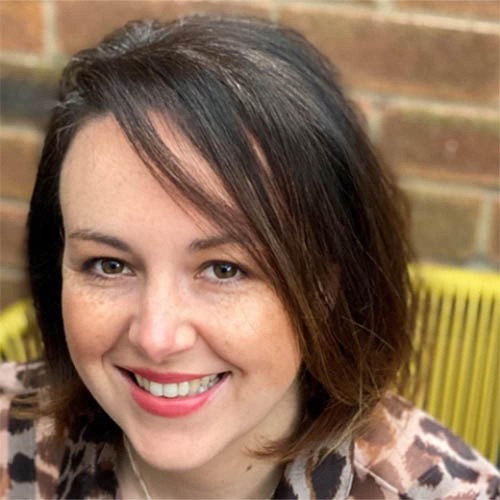
Nichola Speight
Associate landscape architect, Ryder Architecture, United Kingdom
Nichola is an associate landscape architect with 18 years' experience. Nichola has a portfolio of UK and international projects, from the detailed design of public spaces to the spatial planning of cities. Her project experience comprises a wide variety of sectors, including masterplanning; public realm design; education; sports and leisure; science and research; transport; and healthcare. She has a passion for creating spaces with a strong sense of place that inspire people, have true purpose, and are user centric.

Nicola Butterworth
Corporate director of neighbourhoods and housing, Liverpool City Council, UK
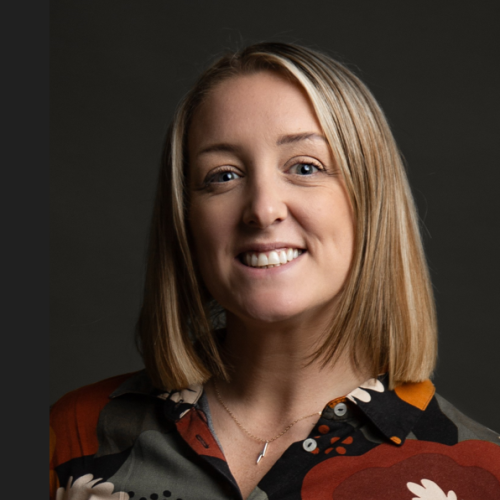
Nicola Spiby-Roberts
Wellbeing Matters programme manager, Salford CVS, UK
Nicola is programme manager for Wellbeing Matters Salford at Salford CVS.
She has worked in the Voluntary Community and Social Enterprise (VCSE) sector for over 15 years, driven by a passion for community-led approaches to health and wellbeing. With a background in exercise and health sciences from the University of Salford, she has focused her career on prevention and supporting people to take control of their own lives.
Across Salford and Greater Manchester, she has delivered and led projects in behaviour change, social prescribing, domestic abuse prevention, and community development. She currently leads the Wellbeing Matters programme at Salford CVS, which connects health, care, and VCSE partners to support people in a more holistic and preventive way. What drives her is seeing the impact of community-led change and being part of a sector that champions people, relationships, and local strengths.
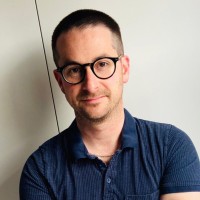
Nigel Moore
Production director, Fuzzy Duck, UK
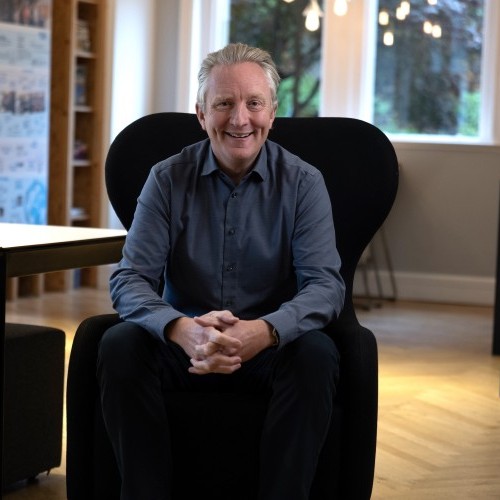
Nigel Saunders
Director, Pozzoni Architecture, UK
Director at Pozzoni Architecture Nigel Saunders has extensive design expertise in the housing sector across all age groups, with a particularly keen interest in multi-generational living. Nigel is also chair of the Greater Manchester Combined Authority’s ‘Housing, Planning & Ageing Group’, which aims to address the city region’s housing options for older people, including creating balanced communities in our towns and cities.
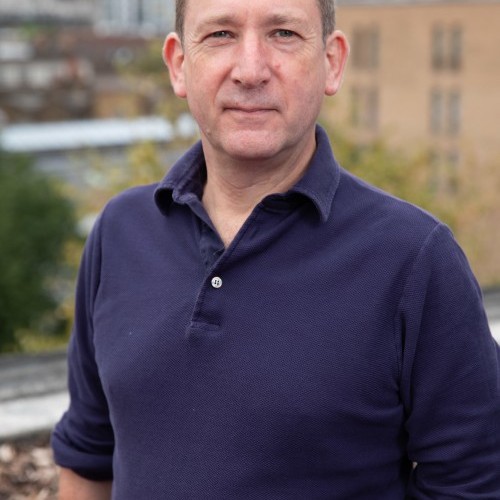
Oliver Bulleid
Executive director, London Community Land Trust, UK
Oliver is the executive director at London CLT and has oversight of all our live projects and campaigns for new housing sites. His background as an architect with specialist knowledge in housing and low-energy design provides invaluable technical expertise and practical knowledge to all our work.
He has worked on a wide range of award-winning projects, from large-scale masterplans and housing developments right down to individual homes, with projects in many London boroughs, including Iroko House for Coin Street Community Builders and Somerleyton Road community housing for Brixton Green/LB Lambeth.
Having previously designed and constructed a home and studio in Shoreditch, he now lives in north London in a self-built zero-carbon family house that is so well insulated it has no need for a heating system.
He believes that community-led housing, coupled with excellent professional input from an understanding design team, has the potential to create homes and places that are beautiful, long-lasting and respond positively to the climate emergency.
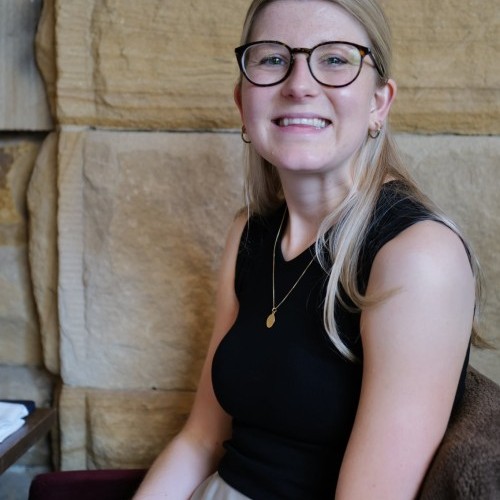
Olivia Alliott
Research associate, University of Cambridge, UK
Olivia is a public health researcher at the University of Cambridge, specialising in environmental interventions to promote health and mitigate the impacts of climate change. Her research focuses on evaluating large-scale policy interventions, such as London's Ultra Low Emission Zone, aimed at reducing car use and enhancing urban air quality.
She is particularly interested in applying systems approaches to evaluate population health interventions, with a focus on understanding the intersection between health co-benefits and urban climate policies. This includes exploring how to integrate health considerations into urban climate planning and policymaking.
With a strong commitment to health equity and social justice, her research is informed by insights from her PhD, for which she examined how socioeconomic factors influence young people's physical activity and long-term health outcomes.
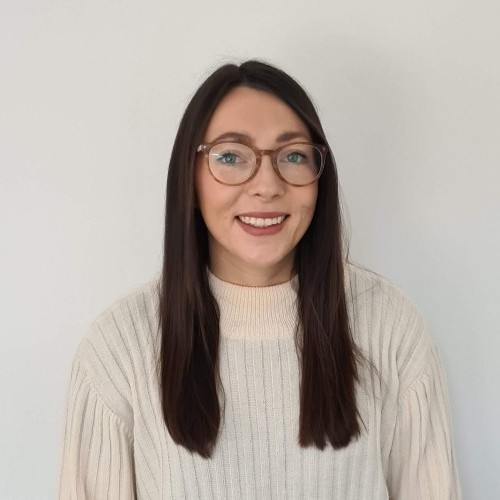
Orla McCann
Project manager, Unlimited Potential, UK
Orla is a Project Manager at Unlimited Potential, a community benefit society based in Greater Manchester. Following an academic background in Criminology and Social Work, Orla has experience of working with diverse groups and communities to understand and address inequalities. Orla's work has been focused on developing solutions for system change and working alongside local people and agencies to achieve this.
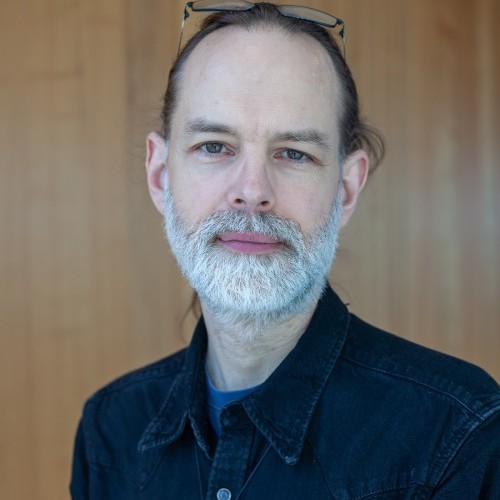
Östen Axelsson
Statistician, Stockholm Health Care Services, Region Stockholm, Sweden
Dr Axelsson obtained his PhD in environmental psychology from Stockholm University in 2011. In 2013 and 2014, he was a Newton international fellow at the School of Architecture, University of Sheffield, sponsored by The Royal Society. Since 2022, he has been employed as a statistician at the Centre for Occupational and Environmental Medicine within the Stockholm Health Care Services, Region Stockholm. He is also affiliated as a researcher with the Institute of Environmental Medicine at Karolinska Institutet. Dr Axelsson has a particular interest in spatial analysis and optimising urban form with respect to public health.

Patti Holmes
Deputy chief executive, EMPOWER, UK
A dynamic impact driven leader with over 15 years’ experience in the design, development, and delivery of transformational and impactful strategy across fundraising, sponsorship and partnership working. Recognised for expertise in building, nurturing and leading high performing teams, cultivating donor and partner relationships, securing major gifts and negotiating impactful corporate partnerships.
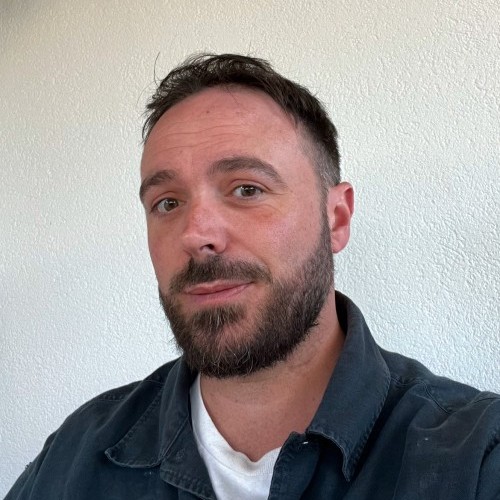
Paul Smyth
Director, Peckham Palms, UK
Paul is a social entrepreneur & artist working variously as a Creative & Commercial Director or CEO across the businesses he has cofounded. He is a cofounder, Director and part owner of Peckham Palms, Mission Kitchen, Makerversity (BCorp), 50m and the art & social practice Something & Son. In 2024 he cofounded two new businesses – Setlist and Camden Urban Farm which will open in 2025 and 2027.
Together these businesses support over 600 small entrepreneurs - working across food, design, art, fashion, engineering, innovation and in the case of Peckham Palms - Black hair styling, retail and creative practices. The businesses have a combined turnover of £2.5m and
operate 35,000 sqft of workspace, making and retail space. The group of impact driven organisations all enjoy long term partnerships with a range of third sector organisations to provide support, free and subsidised workspace and training.
Alongside Cyndi Anafo, Paul is a co founder of Peckham Palms and part of the team that tendered to support Southwark Council to reimagine the site in 2014. Together they have developed the space from some empty garages to the mission driven community organisation that The Palms is today. Providing London’s only business retail and workspace designed from the bottom up to support Black women in business and to safeguard the future of Black hair styling in Peckham. We aim to present an alternative to displacement via gentrification and safeguard a vital community space and local service.
Paul has 18 years of experience in founding and operating social businesses that support small businesses - with a passion for supporting everyday, hands-on, making and creative businesses - where people need tools, facilities and a supportive community to bring a business idea to life. His first job at 16 was running his own handyman business and the belief in the power of entrepreneurship and hands on work to give meaning and joy to life remains core to his work. The creation of new organizations through co-founding allows each organisation to work authentically and purposefully with its community and allows co-created ownership models that are led locally, sensitive and appropriate to each social and
placemaking challenge.
As an artist (working as one half of Something & Son) Paul has shown work at Tate Britain,Tate Modern, V&A, Somerset House, Gwangju Biennial and Salt, amongst other galleries and institutions.
From 2014-2017 Paul was a Trustee of London Gypsy & Travellers - a charity working to represent and support this community within London. Paul has also cofounded and exited three organisations - Crepe City, Europe’s largest sneaker and lifestyle festival, FARMshop a small high street cafe and urban farming educational space that operated in Dalston from 2008 to 2016 and Cocreate a cooperative sustainability consultancy founded in 2009.
Prior to leaving work to start his own businesses at the age of 25, from 2007-2010 Paul worked for sustainable building companies Beyond Green and Inbuilt. Paul holds a Masters in Engineering Design and Sustainable Technology (MEng) from the University of Warwick.
He grew up in Portsmouth and now lives in Peckham, London with his young family.
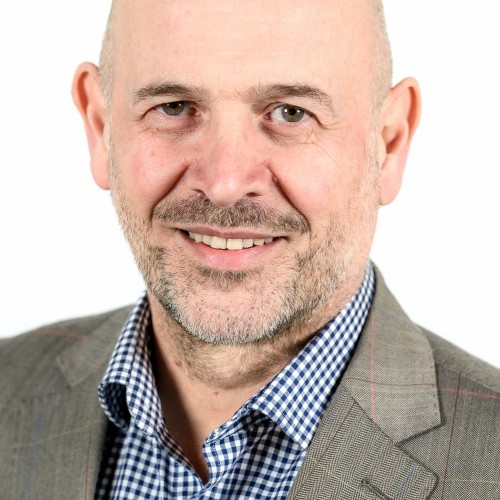
Paul Whittingham
Assistant director of economic development and regeneration, Bolton Council, UK
Started LA Career as a planner and with 40 years of LA experience, with a focus throughout on Place making and making a difference both locally and regionally to influence positive change. Currently responsible for the Regeneration and Economic development functions of the Council, including Town Centre and district centre master planning and delivery of key regeneration schemes together with the delivery and implementation of the economic growth and resilience plan.
Bolton has a big ambition, has suffered as many towns have with changes to retail but the people of Bolton remain proud and support place shaping and planned intervention at scale. Paul is responsible for driving the ambition and bringing to life the delivery through strategic sites and a mayoral development corporation.
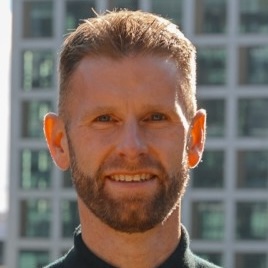
Phil Marsden
Managing director – North West, Muse Developments, UK
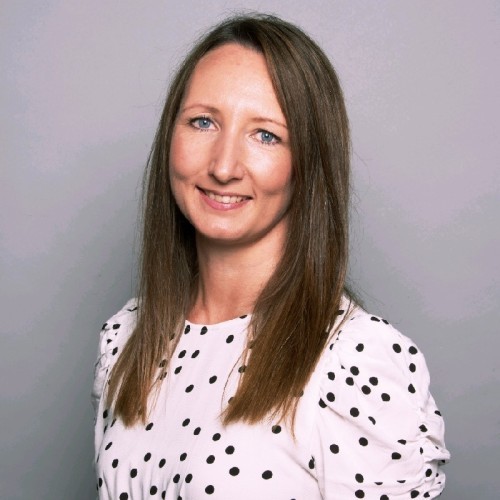
Rachel Turnbull
Founder & Director, Healthy Happy Places, United Kingdom
Former Clinical Psychologist turned placemaking thinker and do-er!
After a career journey in healthcare, spanning clinical psychology, service improvement, innovation, and project management roles, with a smattering of property development, Vice Chair of a charity, and all kinds of creative courses in between(!), I ventured into the world of design and urban planning. I co-created Healthy Happy Places which is about using creative participation to nudge and inspire the design of places and spaces that are good for our mental health and wellbeing. Acting as a bridge between sectors, exploring ways of putting tactical urbanism (‘where top down meets bottom up’) into action in places with deep inequalities and using a set of evidence based 'ingredients' to guide possibilities in place.
Based in a small corner of North East England, a place that holds my home, heart, and heritage - ever curious about the connections between wellbeing, planning, design and the community as equal partners.
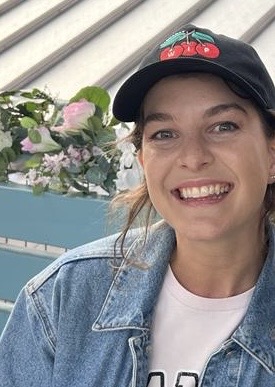
Rebecca Crook
Senior Research Fellow, Groundswell consortium, University of Liverpool, United Kingdom
Rebecca is senior research fellow working in the Groundswell consortium based in the University of Liverpool. She has a particular interest in the involvement of community members in decision-making focussed on urban green and blue space. She is leading an evaluation of the community involvement processes in the regeneration of Central Birkenhead.
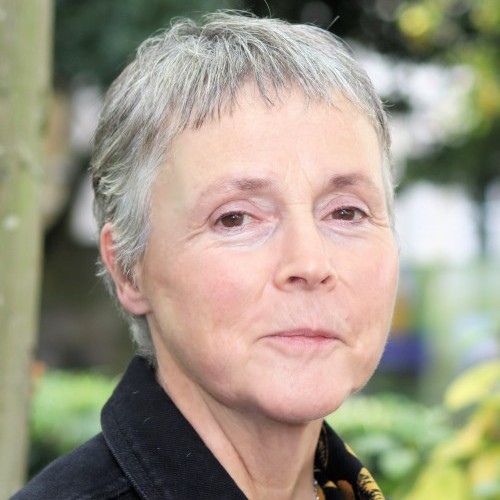
Rhiannon Corcoran PhD
Professor of psychology and public mental health, University of Liverpool; Fellow, Centre for Urban Design and Mental Health, UK
Rhiannon’s research focuses on psychological, social and environmental mechanisms and determinants of mental distress and wellbeing. In particular, she is interested in social cognition and on how our living environment affects our ability to feel good and function well. As an applied social scientist, Rhiannon’s mission is to put research findings into practice. She does this by combining her work at the university with herwork as a co-director of Prosocial Place , a social enterprise that specialises in putting wellbeing and mental health at the heart of place-making and regeneration. In this capacity Rhiannon has worked on several national programmes such as the NHS Healthy New Towns Initiative and with DLUHC, DCMS and Design Council.
Rhiannon’s work in social cognition involves both 'clinical' and non-clinical groups of people where she has a particular interest in the psychosis spectrum, common mental distress and the autistic spectrum.
Rhiannon uses diverse methods within quantitative and qualitative approaches including real world and realistic evaluation, quasi-experimental and neuroscientific techniques.
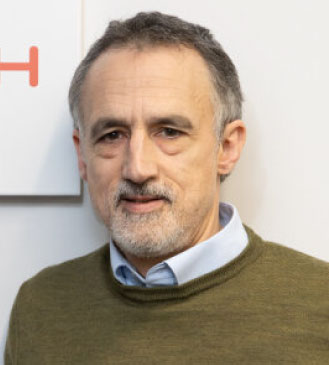
Ricardo Gomez
Director, Urban Solutions, Hatch, UK
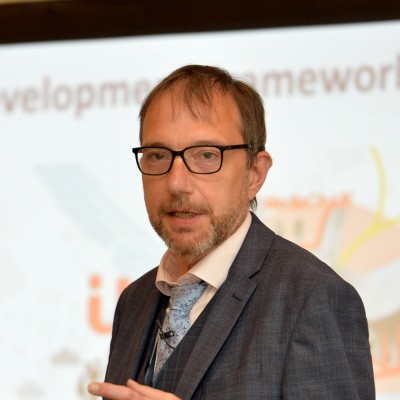
Richard Roe
Corporate director place, Trafford Metropolitan Borough Council, UK
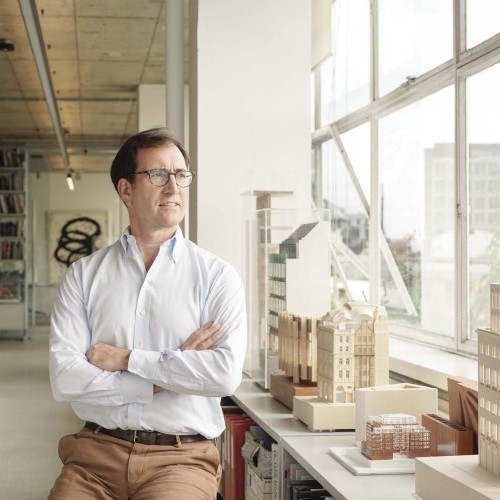
Robert Kennett
Director, Eric Parry Architects, UK
Robert studied architecture at the University of Cambridge and the Harvard Graduate School of Design. He joined Eric Parry Architects in 1989 and was made director in 1997.
Currently Robert is working on several consented City of London office developments and the innovative reuse of a 1950s office building in Belgrave Road, Pimlico. Since 2011 he has directed the design for major residential buildings, including the Phase 3 Heart of Doha project in Qatar and five apartment buildings in Phases 4 & 6a at Chelsea Barracks.
He has led on projects such as prestigious office buildings at 8 St James’s Square and 23 Savile Row; refurbishment works for Selfridges & Co; and the innovative 4 Pancras Square building at Kings Cross Central. In the City, he was involved in the planning stages of London Stock Exchange at Paternoster Square and 120 Fenchurch Street, as well as the current joint venture for the complex Crossrail oversite development at 1 Liverpool Street.
Robert was involved on many of the practice’s earliest award-winning schemes, including Foundress Court, a residential and teaching building for Pembroke College at Cambridge University, and the office building at 30 Finsbury Square, which won numerous awards on its completion in 2003. He was also responsible for the successful delivery of the £36m Renewal of St Martin-in-the-Fields in Trafalgar Square. The project consisted of the refurbishment and conservation of James Gibbs’ Grade I listed church and crypt, including reconstruction of the below-ground spaces, the extension of a Grade II listed John Nash terrace, and the reordering of the publicly accessible spaces.
Robert led the redesign of the 1 Undershaft project from EPA’s consented 2016 design. Working closely with the client, development managers and engineering team, the updated scheme focuses on sustainable construction, increased urban greening and an emphasis on occupier wellbeing and amenities, all with an increase in massing needed for commercial viability. The City of London Planning Committee approved the revised application in December 2024. The project is currently on site.
Robert has taught in architectural design studios at the University of North London and the University of Cambridge.

Rosalie Callway PhD
Projects and policy manager, Town and Country Planning Association (TCPA), UK
Rosalie is policy and project manager at the TCPA, focusing on the Campaign for Healthy Homes and healthy places, including research with UCL on the health impacts of permitted development housing. She is a visiting research associate with the University of Bristol on 'Tackling the Root causes Upstream of Unhealthy Urban Development' (TRUUD). Rosalie has a background in sustainability and health standards, masterplanning and green infrastructure. She is a full member of CIEEM, affiliate RTPI member, a 'Building with Nature' assessor and 'BREEAM Communities' assessor.
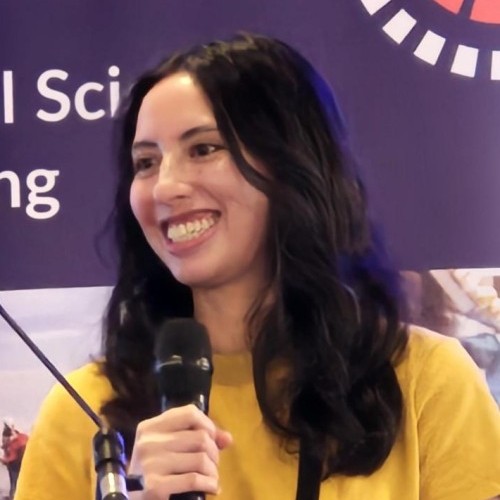
Rukun K.S. Khalaf
PhD student, GroundsWell Consortium , United Kingdom
Rukun Khalaf is a PhD student based at the University of Liverpool. Her work focuses on Green and Blue Spaces (GBS) and their relationship with maternal health, newborn health, and health inequalities. Her work is funded through a National Institute for Health Research (NIHR) School for Public Health (SPHR) PhD studentship.
Rukun has a background in infectious disease epidemiology and has an MSc from the London School of Hygiene and Tropical Medicine. Moreover, she has worked as an epidemiologist with the World Health Organization (WHO) Malaysia during the COVID-19 pandemic.
Rukun aims to conduct research that utilises data to answer complex public and environmental health questions.
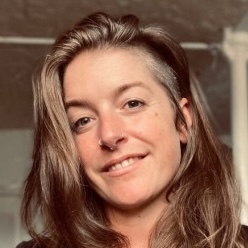
Sally Gilford
Operations officer - creative and community events, Salford culture place partnership, Salford City Council, UK
I have worked as a socially engaged creative practitioner and producer with over 15 years experience across the public, private and third sector.
Commissioned by internationally renowned galleries, museums, educational institutions, and cultural organisations, I have co-created with people and communities to deliver large-scale public artwork, events, and exhibitions.
Based at Islington Mill in Salford since 2009, I founded Salford Makers, a collective of artists, designers, educators and makers with whom I led on a range of collaborative projects, events, commissions and social enterprise.
Driven by a dynamic approach and a passion for improving spaces, places, and accessibility through collaboration, I am interested in connecting the dots between place, identity and heritage, seeking to create meaningful connections and build a sense of community.
My participatory approach within my creative practice encourages the exploration of multi disciplinary art forms to encourage self-expression and creative experimentation. Process led artistic collaboration is at the heart of my practice.
Exploring the intersection of STEM thinking in digital and analogue realms, I’m interested in seeking out both visible and hidden patterns within found and supplied data. From architectural artefacts, bio images to historical archives and beyond, I tell stories that nod to the past, present and future, subverting traditional ideals into dynamic provocations.
With a background in surface design and print, my creative work is bold, playful and inquisitive.
Since 2014, I’ve been collaborating with scientists from the Wellcome Trust Centre for Cell Matrix Research at the University of Manchester, making work in response to their research.
Using microscopic bio images of cells and tissues, I create one of a kind print and and surface designs incorporating both hand printed and digital processes. A selection of my fabrics are available from my online shop on my website.
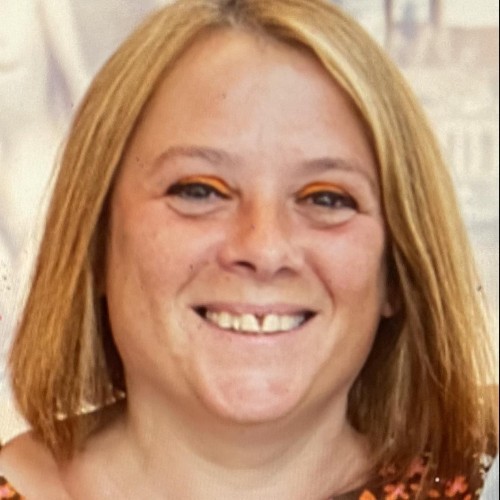
Sam Ingleson
Associate dean, University of Salford, UK
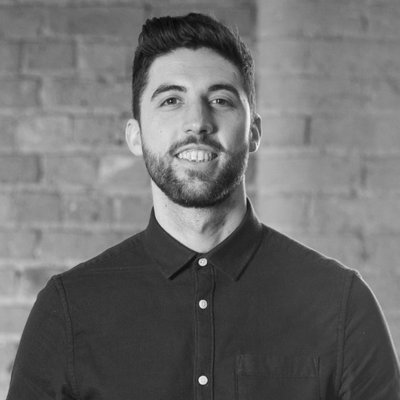
Sam Jarrett
Head of marketing and communications, Landsec, UK
Sam Jarrett leads marketing and communications for the regeneration team of Landsec, one of the UK’s foremost real estate companies. For the last decade, he has been focused on helping shape some of the country’s most ambitious projects, including the transformation of Manchester’s Mayfield district. With a background in broadcast and print, Sam brings a creative storytelling lens to the creation and communication of new places.
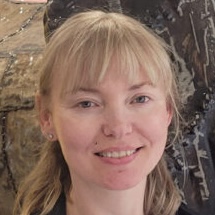
Sandra Axell
Housing project manager, Kineara, UK
Educational Psychology background with over 15 years experience of working with vulnerable people and 5 years working in housing and managing housing projects for Kineara. Our current projects are supporting tenants in different tenures to prevent homelessness. We offer holistic support to look at the clients situation to identify needs providing advice and making referrals to relevant community and health services. We support clients to manage their housing needs by addressing issues around finances, health and behaviour. This is to help them sustain their tenancy and prevent evictions.
I am an experienced professional with a strong foundation in Psychology and over 15 years of expertise in working with vulnerable individuals. For the past 5 years, I have specialised in housing and project management, delivering impactful support through my role at Kineara. My work focuses on preventing homelessness by empowering tenants across various housing tenures to sustain their tenancies and achieve stability.
At Kineara, we take a holistic approach to supporting clients, carefully evaluating their unique circumstances to identify needs and provide tailored solutions. The projects I manage are offering practical advice, coordinating referrals to appropriate community and health services, and addressing the underlying challenges that may jeopardise their housing situation.
I am passionate about helping people access housing and have awareness of their rights and responsibilities to be able to make informed decisions about their housing.
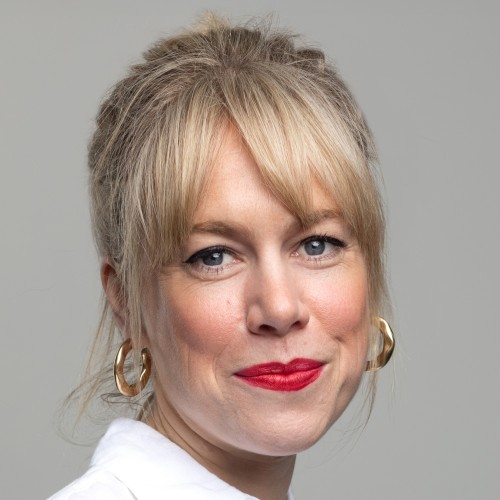
Sarah Castle
Co-founding director, IF_DO, UK
Sarah Castle is an award-winning Mancunian architect and co-founding director of architecture practice IF_DO, specialising in social infrastructure, community, and cultural projects. Recognised by the Architects' Journal as one of their 40 Under 40 (2020), named a 'Future 50 Global Leader' by the Project Management Institute (2024), and shortlisted for BD Young Architect of the Year (2021), Sarah brings a strong focus on inclusive design practices to her work. Her notable projects include the Civic Trust Award-winning Brent Cross Town Primary Substation, and the award-winning transformation of historic buildings in Hastings into vibrant community facilities, including The Observer Building retrofit. Sarah is a founding member of Part W—a campaign group advocating for gender equity in design that won the inaugural Prize for Research in Gender and Architecture (2023). She is also a sought-after international speaker who has delivered keynotes including at Utopian Hours, Turin 2024 and Architects’ Journal Retrofit Live 2025. Sarah serves on the Places Matter Design Review Panel and Salford Design Review Forum, and also is as a guest tutor at Manchester School of Architecture.
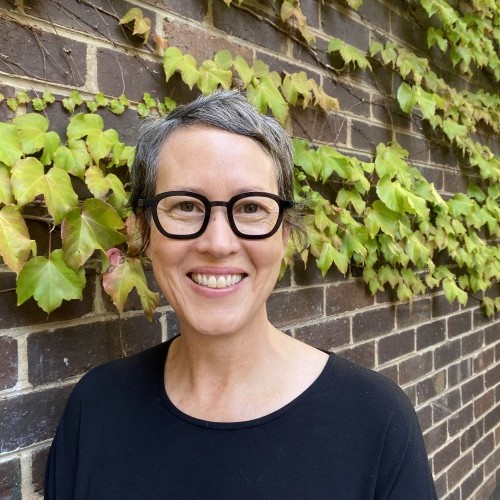
Sarah Foster
Associate professor, RMIT University, Australia
Sarah is an associate professor and Australian Research Council future fellow with the Centre for Urban Research at RMIT University in Melbourne, where she is the associate director of the ‘Planning and Transport for Healthy Cities’ theme. She leads a programme of applied research designed to influence policy and practice to create healthier built environments. This includes ‘The High Life Study’, which examines the interplay between apartment design policy standards, the design of contemporary apartment buildings, and residents’ health and wellbeing. She is a member of the West Australian State Design Review Panel and senior assistant editor of the journal ‘Environment and Behavior’.
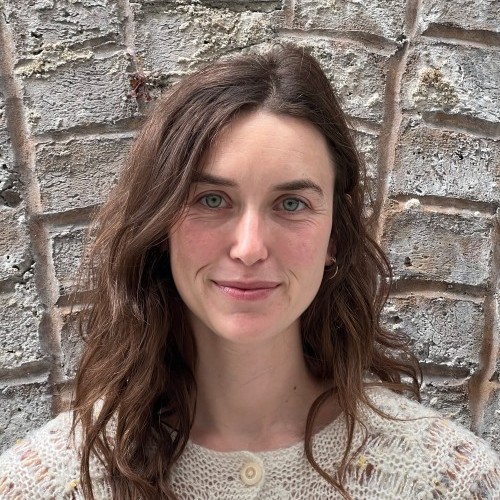
Sarah Goldzweig
Research and policy officer, Latin Elephant, UK
Since 2021, Sarah has worked for Latin Elephant, a London-based charity that works to support migrant and racialised communities and sole traders impacted by planning, regeneration and gentrification. She began her work by directly supporting traders who were displaced by the regeneration of the Elephant and Castle Shopping Centre. Since joining, she has also contributed to the organisation’s research projects and policy responses.
From 2023, Sarah has facilitated Protect Our Places (POP), a coalition of London-based campaigns, each fighting to preserve the vibrant essence of their beloved town centres, markets and affordable retail spaces in the face of encroaching gentrification.
Sarah is also pursuing a PhD in planning at the UCL Bartlett School of Planning, where she is studying the relationship between ‘official’ and grassroots planning stories to investigate how the gentrification of London’s affordable retail spaces and markets represents the racialised displacement of social and cultural infrastructures.

Sem Lee
Founder, Director, OURI Labs, United Kingdom
Sem Lee is an urban strategist and social entrepreneur with over 11 years’ experience managing sustainability, communications, and design projects. Sem founded OURI Labs in response to the pressing need to understand how to link public health and urban planning. OURI Labs is a health innovation research lab committed to shaping healthy and equitable cities that better serve communities and the planet. The practice specialises in participatory research, evaluation, and design, bridging urban planning policy and public health. Key organisations they have collaborated with include Health Innovation North East North Cumbria, Greater London Authority, University College London (Bartlett), and the Office for Health Improvement and Disparities.
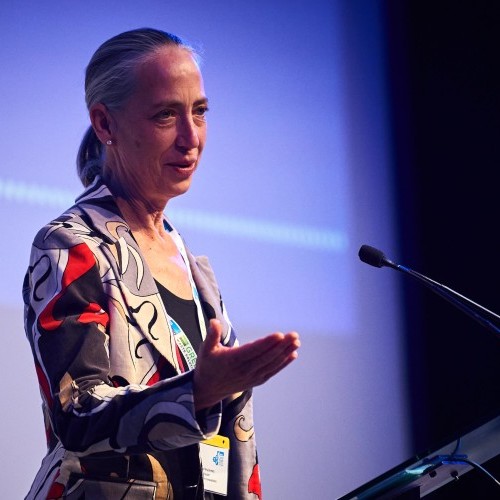
Shelley James
Director, Age of Light Innovations, UK
Dr Shelley James is a strategic lighting design consultant, TEDx speaker, author, and member of the WELL Light Advisory. She is also a trained electrician and visiting lecturer at UCL Bartlett and the Royal College of Art.
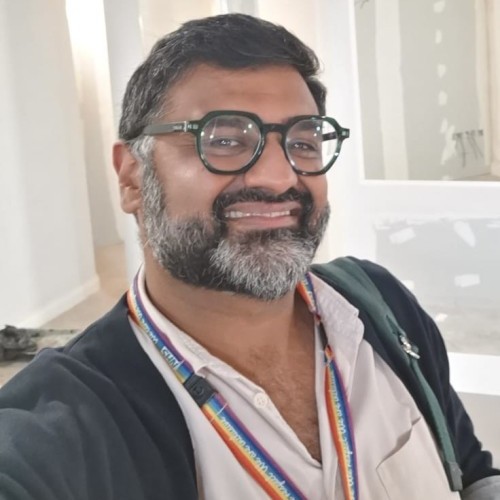
Sheraz Ahmad
Consultant psychiatrist, East London NHS Foundation Trust, UK
Dr Sheraz Ahmad is a consultant psychiatrist and clinical lead for Barnsley Street neighbourhood mental health centre in Tower Hamlets, London, for East London NHS Foundation Trust. He has been a consultant psychiatrist for 15 years and believes freedom is therapeutic.

Shira de Bourbon Parme
Urban wellbeing and innovation lead, Ramboll, UK
Shira de Bourbon Parme, DPhil, MSc, is an urban development planner and social anthropologist dedicated to advancing place-based spatial and social sustainability. In her role within Ramboll's Regenerative Cities Team, she partners with public and private sector stakeholders to develop and deliver integrated urban strategies that foster liveable and resilient environments, nurturing human and planetary health. Her work is grounded in vulnerability-sensitive approaches to drive health, social and spatial equity.
Shira holds a doctorate from the Future of Cities programme at the University of Oxford. She serves on the Advisory Board for the University of Birmingham’s Centre for Urban Wellbeing. She has delivered annual lectures for University College London’s MSc Health in Urban Development and the University of Cambridge’s Future of Roads Programme. Notably, Shira led the development of Neighbourhood Futures, a framework for climate resilience and health equity, in collaboration with Impact on Urban Health, and conducts ongoing research on urban planning and social infrastructure for ageing populations.
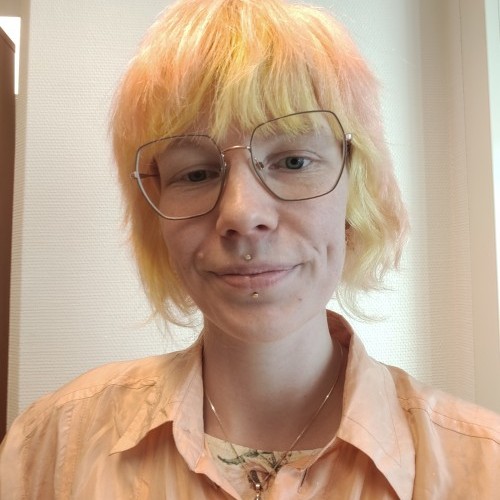
Sigrid Elisabeth Glomdal
PhD candidate, OsloMet, Norway
Sigrid comes from the tradition of environmental psychology. Her PhD is about cargo bikes’ place in the urban landscape, especially focusing on the user perspective and the sustainability aspect. Her focus is on using the built environment and the complex systems organising them in combination with psychology to attain more sustainable cities and sustainable behaviour.

Sophie Hockin
Senior Manager - Regeneration and Infrastructure , NHS North East London , United Kingdom
Sophie is a chartered town planner and was recognised as one of the The Planner Magazine’s Women of Influence in 2025. Sophie is a Senior Manager within the unique Regeneration and Infrastructure team at NHS North East London Integrated Care Board where she leads the ICB’s planning programme which focusses upon ensuring that the healthcare infrastructure within the area is sufficient to meet current and future population needs. This work includes engaging with senior stakeholders to influence the policy agenda around planning for health which transcends a number of areas including conventional town planning, health master planning, public health, net zero & sustainability and estates. Prior to joining NHS North East London, Sophie worked in a range of public and private sector roles in planning and regeneration within Central, North and East London.
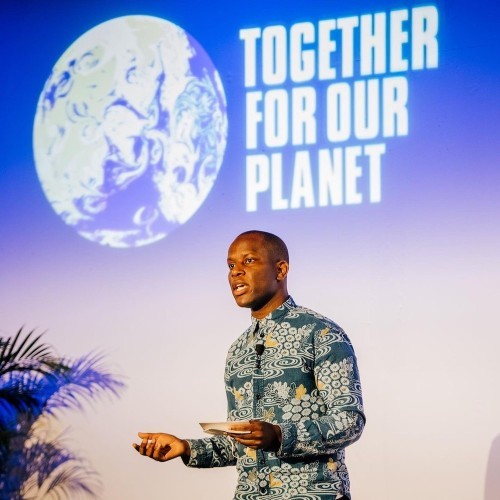
Ssega Kiwanuka
Founder, LIVE + BREATHE, UK
Love Ssega is a musician, artist and founder of acclaimed arts-led clean air organisation LIVE + BREATHE. His work, including LIVE + BREATHE, blurs the lines of civic engagement, understanding, activism and hope. As an artist has performed on stages, from Glastonbury to Tokyo, with music premieres across BBC Radio 1, 3 to 6Music. Love Ssega’s multi-arts works have been commissioned by the National Gallery, Royal Shakespeare Company and Serpentine amongst others, with visual art exhibited internationally at MoMA PS1 and MIT Museum. He was founding frontman and songwriter of Clean Bandit and is currently Southbank Centre Associate Artist 2024-2027. He was an official host for UN COP26 and is a Trustee of Brian Eno-led music and climate charity EarthPercent.
LIVE + BREATHE is a Black-led non-profit that uses the power of art and culture to champion under-represented voices and community calls for clean air. As an organisation LIVE + BREATHE commissioned work has been performed in the Houses of Parliament, collaborated with Philharmonia Orchestra, shown in global superstar Billie Eilish’s Overheated at The O2 and featured as part of London College of Communication (UAL) Design School taught syllabus. Free community summer events across Southwark and Lambeth have received coverage in local newspapers and also BBC Radio 4, ITV London News and BBC London. Through LIVE + BREATHE local residents become educators and artists act as resonators, centring community-first empowerment, positive futures and joy. LIVE + BREATHE was nominated for the very first national Creative Change-makers Award by Sheila McKechnie Foundation in 2024.
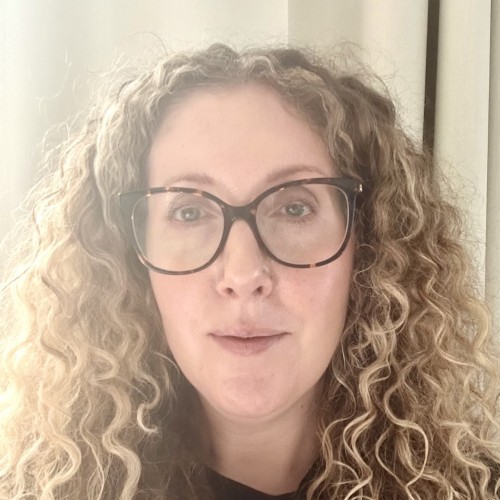
Stacey Edgar
Executive director, Southwark Law Centre, UK
Stacey is the Executive Director of Southwark Law Centre, one of the largest and most influential law centres in the UK. The Centre provides vital legal support to over 2,000 people each year, specialising in areas such as immigration, housing, employment, welfare rights, planning, and education. Its core mission is to promote access to justice, especially for individuals facing significant barriers to legal support, including those at risk of homelessness, discrimination, and destitution.
In addition to her leadership role at Southwark Law Centre, Stacey serves as a Trustee for The Unity Project, a charity dedicated to helping destitute migrants gain access to public funds.
Before taking on her current role, Stacey was the Deputy CEO at South West London Law Centres, where she focused on HR, project management, and the operational aspects of the charity. Prior to her transition into the law centres movement, Stacey spent ten years in legal practice as a fee earner and practice manager at a niche law firm specialising in cross-border succession and property matters in the UK and Spain.
Stacey is deeply passionate about housing and its central role in fostering healthy, thriving communities. She believes that safe and secure homes are the foundation for individuals to live well and actively contribute to society. Throughout her career, Stacey has spearheaded projects aimed at improving housing conditions in London, including efforts to address disrepair in social housing and enhance the quality of temporary accommodation.
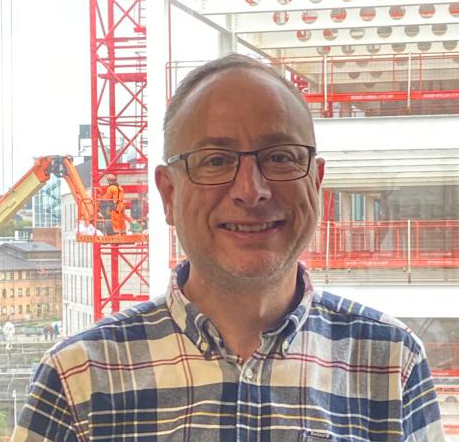
Stefan White
Professor of Architecture, Manchester Metropolitan University, UK
Prof. White will present preliminary findings from the latest research into understanding and creating age-friendly cities. This interdisciplinary research identifies the key challenges for policymakers, practitioners and communities when trying to make their local neighbourhoods better places to grow older in. It supports approaches to improving the health of local older residents through place-based initiatives, urban planning and housing developments. His research is developing new conceptual models, implementation tools and evaluation processes, helping make place-based public-health interventions more effective. The research is led by the Architectural Research Office (ARO) at the Manchester School of Architecture (MSA), working collaboratively with 30+ healthy ageing researchers across disciplines at Manchester Metropolitan University (HealthyAgeing@MMU).
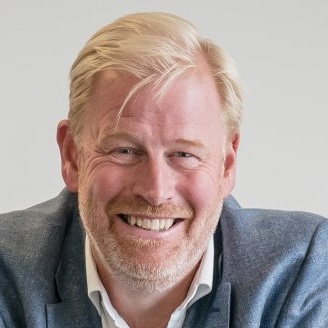
Stephen Wild
Managing director, Peel Land, UK
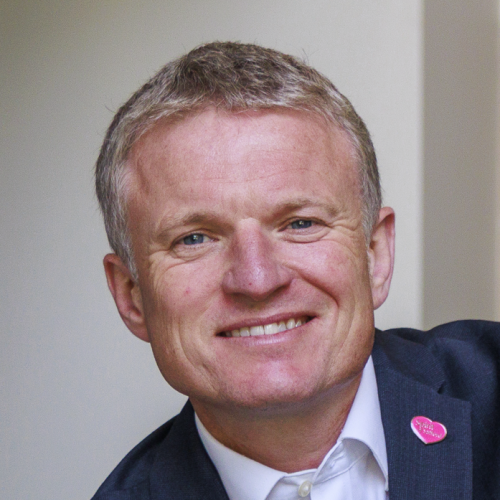
Stephen Young
Chief executive, Salford City Council, UK
Stephen Young is the Chief Executive of Salford City Council following 30 years’ experience in local government across the UK including in Lancashire, the Liverpool City Region, Cheshire and Greater Manchester. Most recently Stephen spent almost four years as the Chief Executive of Halton Borough Council during which time Stephen delivered on a range of large-scale programmes focusing on organisational transformation and change as well as regeneration and economic growth across the Liverpool City Region.
Prior to joining Halton Stephen worked as the Executive Director of Growth, Environment, Transport and Community Services at Lancashire County Council developing a multi-billion-pound economic development pipeline for the county including innovative projects such as:
• The new national Cyber Centre
• The Advance Manufacturing Research Centre
• Eden of the North and
• A new second home for Lancashire County Cricket Club.
Stephen also sits on various outside boards and committees covering a range of different topics ranging from business growth to the education sector.
Stephen is a regular speaker and contributor to the trade press on a range of local government issues both in the UK and abroad and is married with a young family and in his spare time he enjoys running and watching his beloved Burnley FC.

Tim Fielding
Deputy director of public health, Leeds City Council, UK
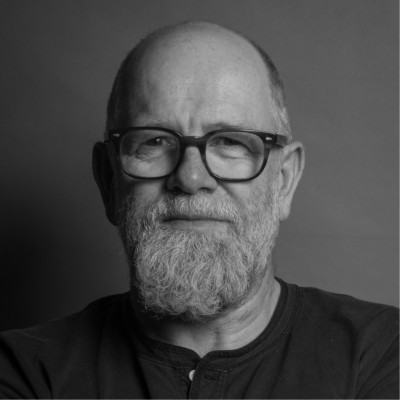
Tom Lloyd
Co-founder, Pearson Lloyd, uK
Tom is co-founder of the London design studio PearsonLloyd. He trained in Furniture Design at Nottingham, before completing an MA in Industrial Design at the RCA in 1993. Tom founded PearsonLloyd with Luke Pearson in 1997. The studio’s work focuses on design for manufacture in the fields of furniture, transport design, and the public realm and has a reputation for producing modern designs that combine aesthetic clarity with functional and technological innovation. In November 2021, Tom took up the role of Master of the Faculty of Royal Designers for Industry.
Specialties: Furniture and Industrial Design - workplace, transport, and cities
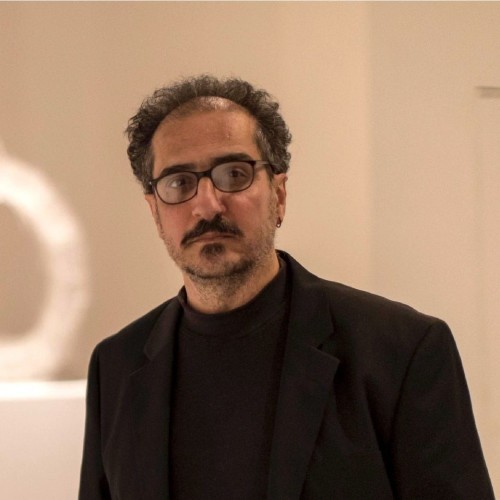
Toni Sant
Associate professor of digital curation, University of Salford, UK
Dr Toni Sant is the director of the digital curation lab at MediaCityUK and associate professor in the School of Arts, Media, and Creative Technology at the University of Salford. Between 2014 and 2020, he was the artistic director of Spazju Kreattiv, Malta’s national centre for creativity. He has written widely about digital curation and media archaeology, starting with his book 'Franklin Furnace & the Spirit of the Avant Garde: A History of the Future' (Intellect, 2011). Other recent books include 'Documenting Performance: The Context and Processes of Digital Curation and Archiving' (Bloomsbury, 2017), 'The Spazju Kreattiv Art Collection' (Fondazzjoni Kreattività, 2020), and 'Enrique Tabone: Catalogue Raisonné' (Kite Group, 2023). In 2021, he was awarded the National Book Prize of Malta for literary non-fiction for a book of Facebook posts called Jien-Noti-Jien (Klabb Kotba Maltin, 2020), which he co-authored with EU Literature Prize winner Immanuel Mifsud during the first Covid pandemic lockdown. He is also an associate editor of the International Journal of Performance Arts and Digital Media.
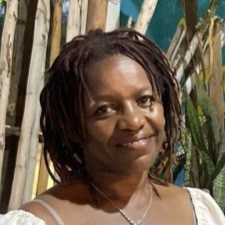
Wangu Mwangi
International Institute for Sustainable Development; Science and people lead, land and soil loop, Ambition Loop, Kenya
A story teller, development critic, and aspiring farmer, Wangu has more than 20 years' experience in supporting organisations to critically analyse how they are contributing to a more equitable and sustainable world, and to communicate this effectively to different audiences.
Her specialties include: strategic communications; knowledge management; capturing lessons from development practice; linking research, policy and practice; web content management; and capacity development.
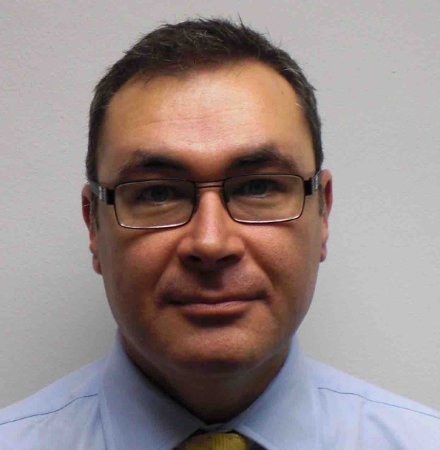
Warren Hepplolette
Director of Strategy and Prevention, NHS Greater Manchester Integrated Care
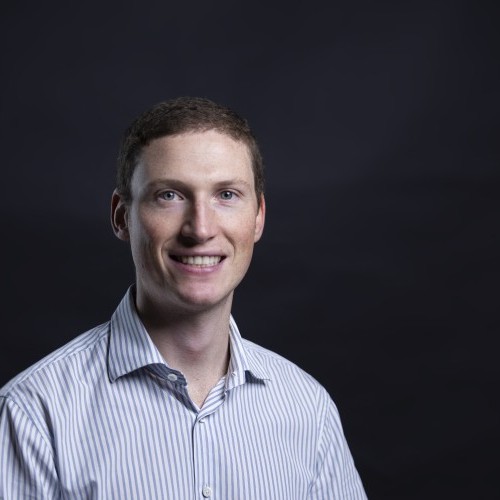
William Butcher
Sustainability consultant, BDP, UK
With a background in human geography and urban planning, William brings both technical expertise and a systems-thinking approach to sustainable urban design. Since 2019, he has worked as a sustainability consultant in the built environment, specialising in whole-life carbon assessments and net-zero strategies. His work is grounded in a deep interest in the circular economy, nature-based solutions, and the 15-minute city concept – principles he applies to help shape urban environments that are fairer, healthier, and more climate resilient.

Yonette F. Thomas PhD
Founder and president, UrbanHealth360, USA
Dr. Yonette Felicity Thomas is the founder and president of UrbanHealth360, an organization of multidisciplinary thinkers centered on a people-oriented, community-focused approach to urban health. Dr. Thomas is a globally acknowledged thought leader, urban health champion, and an advocate for valuing the health of women and girls as an economic imperative. A social epidemiologist/medical sociologist by training, she has served as the chief of Epidemiology at the National Institute on Drug Abuse in the National Institutes of Health, held academic positions at University of Miami Miller School of Medicine and Howard University, and as a vice president for research. She founded Borjoner International and Strategic Transitions to influence the progress, health, and wellbeing of individuals and communities across the world. As a founding board member of Women’s Economic Imperative (WEI), she leads the organization’s focus on the health of women and girls as an economic value. Her work as global advisor for Evidence for Sustainable Human Development Systems in Africa (EVIHDAF) and the Centre for Urban Health and Development within the Asian Institute of Poverty Alleviation (CUHD-AIPA) extends her focus on the global south and the realization of the Sustainable Development Goals in this last decade. She is the Associate Editor for Women and Girls for Cities & Health.
She is a founding board member of the International Society for Urban Health (ISUH) and recently led the organization into sustainability by serving as the inaugural executive director (as a board member) and has served as a science advisor for urban health to the New York Academy of Medicine. She is a founding board member and former vice president of the Interdisciplinary Association for Population Health Science (IAPHS) and served on the Steering Committee of the National Hispanic Science Network on Drug Abuse for more than a decade.
She served on the National Academy of Sciences Committee on Revisions to the Common Rule for the Protection of Human Subjects in Research in the Behavioral and Social Sciences. Her primary research and publications have focused on the social determinants of health, health disparities, the health of women and girls as an economic value, the social epidemiology of drug abuse and HIV/AIDS and the link with geography, including edited volumes: Geography and Drug Addiction, Crime, HIV, and Health: intersections of Criminal Justice and Public Health Concerns.

Zak Baillie
Principal climate adaptation consultant, AtkinsRéalis, UK
Zak is a principal climate adaptation consultant within AtkinsRéalis’ Sustainable Futures practice. Zak has extensive climate risk experience from his work in consulting, academia and the public sector. He has worked with a range of clients to help them prepare for a climate-resilient future. He is passionate about using his expertise to translate climate change information into a form that is useful and actionable. In addition to his advisory work, he has published his climate science research in scientific journals and has presented his work at international conferences.

Zoë Stockton
Project Manager, NHS Horizons, United Kingdom
Zoë is part of the delivery team at NHS Horizons, focusing primarily on programs on physical inactivity. She has a highly interdisciplinary and varied background starting with her degree in Human Sciences through to joining Horizons.
Zoë has a background in mental health, working as a Support Worker for the NHS/Mind in West Essex during the pandemic. She then followed her interests in sustainability to work in a small agri-tech start-up where her role stretching across business, HR, marketing, grant writing and more. Through this she delivered various projects at the forefront of technology and transformation both internally and externally with funding from UKRI.
Her experience led to a keen interest in system change and taking a proactive preventative approach to sector issues as well as in the interaction between health and sustainability issues.
Video + Poster Presenters

Abdul Waheed
Head of Department and professor, National University of Sciences and Technology, Pakistan
Dr Abdul Waheed is the head of the Department of Urban and Regional Planning at NUST, Islamabad. He holds a PhD in sustainable urban development from the Asian Institute of Technology, Thailand, and has more than 15 years of academic and professional experience in urban planning. His work spans sustainable development, spatial policy, and infrastructure planning, with a strong emphasis on applied research and urban resilience in developing contexts. Dr Waheed has worked with both national and international organisations and remains committed to shaping evidence-based, inclusive planning practices in Pakistan and beyond.

Adam Ferrari
Architectural principal, Stantec, United States
Adam sees himself as a design activist – someone who motivates others to take control of the power inherent in design and transform the world. As part of a dynamic team of multidisciplinary professionals, Adam works to create a culture of community leadership and to advance the principles of urban design and community design. Urban design focuses on people, casting the architect or designer as the translator of people’s needs.
Through professional and volunteer activities, Adam has been a passionate advocate for quality design in the built environment – to be better at translating the needs of a community. In addition to architectural projects across numerous commercial and residential types, Adam has worked in urban planning and design, community engagement, community development, affordable housing development, economic development, and process design.

Adrian Coggins
Head of wellbeing and place-based public health, Essex County Council, UK
Adrian tries to be a disruptive influence where necessary. He tries not to let over 25 years’ experience in public health impact too much on what he does for the future. He has worked at local regional and national levels in the field of obesity, which is where the place-based multi-determinants of an outcome approach that he now tries to take originated. As penance for too long focusing on individual responsibility for behaviour change he now focuses his time more on creating healthier environments. Adrian’s interests include delivering a broader determinants of health approach in practice not just talking about it, and deconstructing linear cause and effect assumptions. He looks to good jazz improvisation for inspiration in music and public-sector commissioning.

Aize Han
Graduate student, Tianjin University, China
Aize Han, the presenter, is the second-year graduate student majored in architecture, Tianjin University. He is interested in applying computational design in healthcare architecture and his thesis is regarding the optimization of the specialized hospital based on empirical data. The poster is part of the initial thesis outcome.
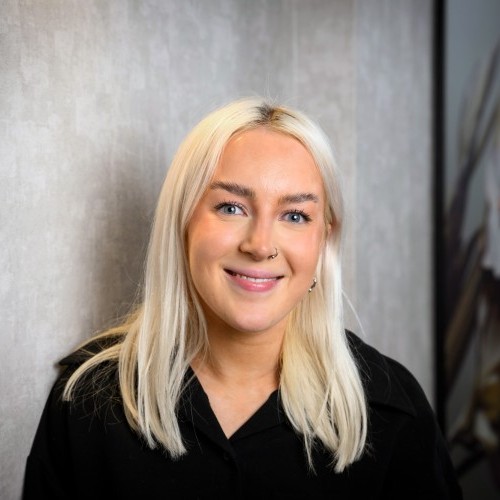
Alanis Burgess
Part II Architectural Designer, P+HS Architects , United Kingdom
Alanis Burgess is a Part II Architectural Designer at P+HS Architects in Newcastle and Research Assistant to Dr Jiayi Jin at Northumbria University. She holds a Master of Architecture with Distinction from Northumbria University and was nominated for the 2024 RIBA President’s Medals.
At P+HS, her project portfolio includes social housing, children’s homes, and large-scale residential masterplanning. Alongside practice, her research explores inclusive and socially responsive design, with a particular focus on feminist placemaking and designing for neurodiversity. Her research output has been presented at multiple conferences and events, and her writing has been published by RIBA Knowledge and The RIBA Journal.
Alanis also serves as Co-Chair of the RIBA Young Architectural Practitioners Forum and represents early career architects on RIBA North East's Regional Council. As a passionate advocate for equity, diversity, and inclusion across the built environment, she actively contributes to national EDI initiatives for the architectural profession.
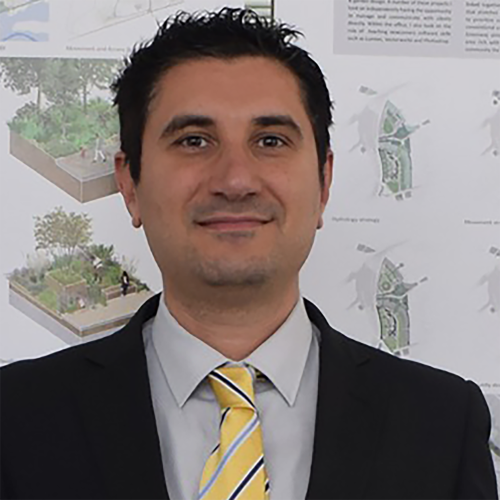
Alessio Russo
Senior Lecturer in Landscape Architecture, Queensland University of Technology, Australia
Alessio Russo, PhD, is a Senior Lecturer in Landscape Architecture and Study Area Coordinator at Queensland University of Technology (QUT). Prior to joining QUT, he held senior academic positions at the University of Gloucestershire, UK (Senior Lecturer, 2019–2024), RUDN University, Moscow (Associate Professor, 2018), and FEFU, Vladivostok (Professor and Head of the Laboratory of Urban and Landscape Design, 2016–2018).
A recognised expert in urban ecosystem services and green infrastructure, his research focuses on their intersection with human health and climate change. He emphasises improving health and wellbeing in cities through access to high-quality, biodiverse green spaces, stronger human–nature connections, and support for mental health.
His current and past research explores nature-based solutions that deliver multiple benefits, including thermal comfort, food production, pollution reduction, and stormwater management. This work supports the creation of healthy, inclusive urban environments by incorporating participatory approaches and addressing community needs in the face of climate and biodiversity challenges.
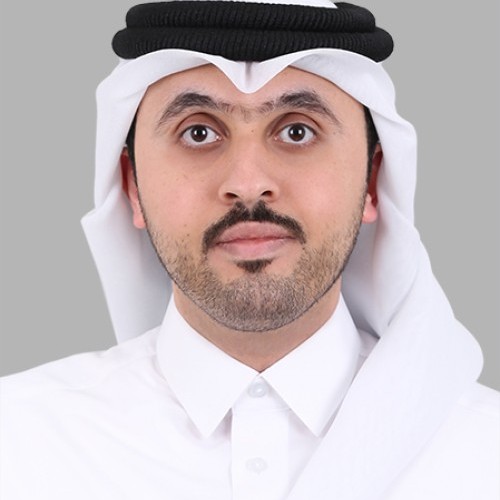
Ali Habona
Staff on academic studies (student), University of Portsmouth, UK/Qatar
Ali Saleh R A Habona is an experienced mechanical engineering professional currently completing his academic studies at the University of Portsmouth in the United Kingdom. With a solid background in the energy sector, Ali has been with Qatar Energy since 2015, where he began in the Operation Engineering Department under the Inspection Section. From 2017 to 2021, he served in the Asset Integrity Department, focusing on total asset management, inspection management systems (IMS), and risk-based inspection (RBI).
In addition to his technical responsibilities, Ali was the Department’s safety focal point, actively promoting safety and environmental awareness among both staff and contractors. He has been a contributing member of the RBI committee and the Focused Results Delivery (FRD) initiative, and is a certified coach in General Electric’s asset performance management (APM) software.
Upon graduation, Ali will return to Qatar Energy, where he will join the engineering services and projects division, continuing to build on his commitment to operational excellence and asset integrity.

Amber Nyoni
Strategic planning and public health lead, Essex County Council, UK
Amber Nyoni is a dedicated public health professional who champions equitable health outcomes for all. She holds a master's in population health from University College London, with a focus on health and wellbeing in the built environment, and an undergraduate degree in environmental and public health from Middlesex University. Amber is a registered public health practitioner with UKPHR.
Amber's professional journey has contributed to her passion for the intersection of health and the built environment. She has worked in roles supporting a health-in-all-policies approach across various disciplines, including town planning, which led to the development of the Essex Livewell Development Accreditation for Housebuilders.
Currently, as a strategic planning and public health lead at Essex County Council, Amber supports the integration of public health and town planning to address and embed the wider determinants of health into planning processes. Her role involves providing public health expertise on health impact assessments for strategic planning applications and building capabilities and capacity within Essex. Amber is also currently a member of the Urban Land Institute Health Leaders Network for Cohort 8.
Amber's commitment to creating healthy and sustainable communities has been a driving force in both her professional and academic pursuits.
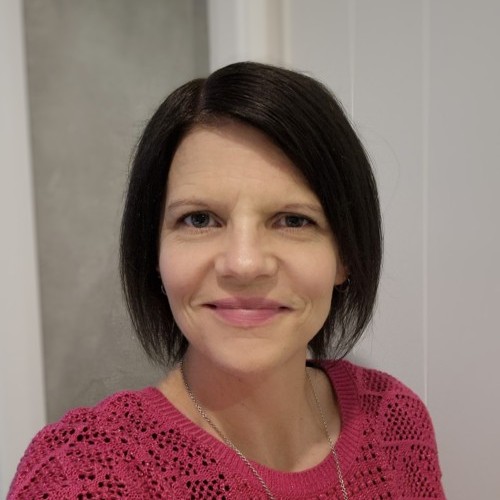
Amy Jones
Research programme manager, Te Whatu Ora Waikato, Health Nz, New Zealand
Dr Amy Jones (PhD) is Research Programme Manager, Māori Health, Te Whatu Ora Waikato, Health NZ. She has been managing Indigenous health equity research for the past 8 years. She is currently, or recently, managed multiple large health research projects that use Whiri (an extension of Harti Hauora Tamariki) to improve health outcomes for Māori in Aotearoa New Zealand. These have covered a range of important groups including: pregnant women, Māori with chronic conditions, Māori with cancer, and tuberculosis.
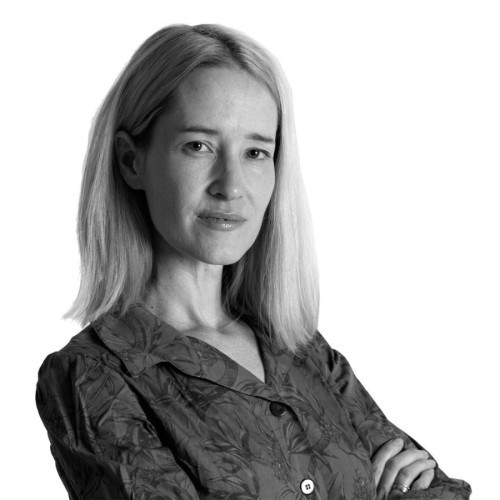
Amy Seek
Landscape architecture principal, Stantec, United States
Amy serves as design director of Stantec’s NYC landscape architecture studio. She brings over 15 years’ experience with a focus on design of large-scale public parks, event spaces, urban landscapes, and their intersection with other city systems, from mobility to resilience. She is a careful problem-solver and an enthusiastic proponent of multidisciplinary collaboration, particularly as the challenges of urban development demand it. With a background in architecture, she brings a sensitivity to the design fundamentals of space and light, and her work across the US and internationally has attuned her to the need for diverse community voices in the design of the public realm. A WEDG-certified professional, her recent work is focused on addressing uncertainty to create adaptable, resilient landscapes in challenging urban environments.
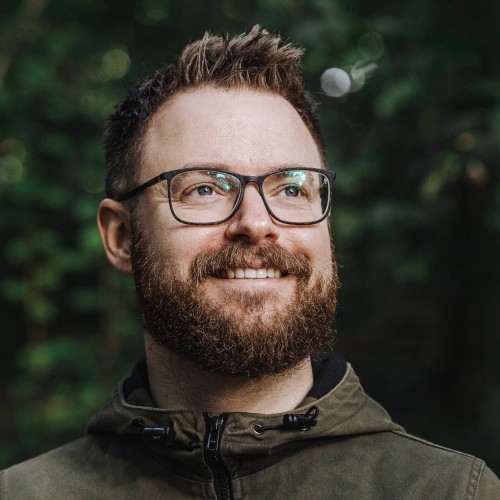
Andrew Jenkins
University fellow, University of Salford, UK
I am passionate about urban agriculture, sustainable architecture, and circular urbanism. I search for holistic solutions to the growing number of challenges that cities face due to linear economies, growing populations, resource scarcity, and the climate crisis.
Typically, this manifests as carefully considered design solutions focusing on resource synergies and the interconnectedness of food, water, and energy, to slow and ultimately reverse ecological damage, to generate capital, and to create jobs to provide a better interface between nature, technology, and human development.
My key aim is to make cities healthier, happier, and more engaging places to live and work through the (re)introduction of blue and green infrastructure, inclusive of urban agriculture. Producing food in cities provides a new palette for architectural design, a new pathway for resilient urbanism, and critical infrastructure to assist in working towards bio-circularity in the built environment.
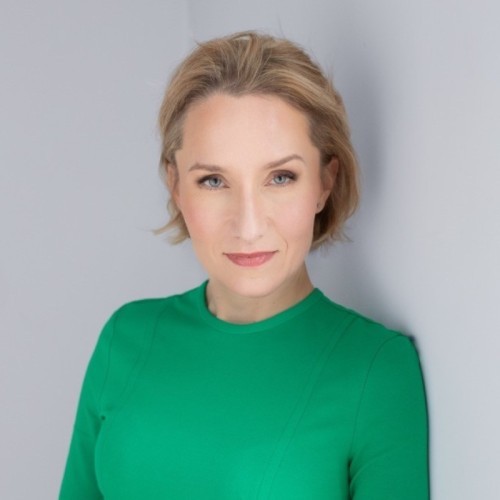
Anna Watkowska
Head of F.S.O. PARK and F.S.O. ENERGY HUB / Member of the Management Board at OKAM City and OKAM Capital, OKAM, Poland
Anna Watkowska is an investor and strategist with over 20 years of leadership in Poland and internationally. As Member of the Management Board at OKAM Capital and OKAM City, she spearheads large-scale, sustainable urban transformations, including F.S.O. PARK and F.S.O. ENERGY HUB.
Her investment approach blends ESG principles with social innovation, focusing on projects that enhance community well-being, ecological performance, and climate resilience. In the From Industrial Legacy to Urban Health initiative in Łódź, she brings an investor’s vision to the adaptive reuse of historic industrial sites, creating senior living communities integrated with healthcare, green spaces, and intergenerational meeting points.
Renowned for building organizations from the ground up, shaping culture, and managing complex business growth, she bridges strategic investment management with a human-first design ethos. Her mission is to reimagine post-industrial urban areas as healthy, inclusive, and future-proof places to live.
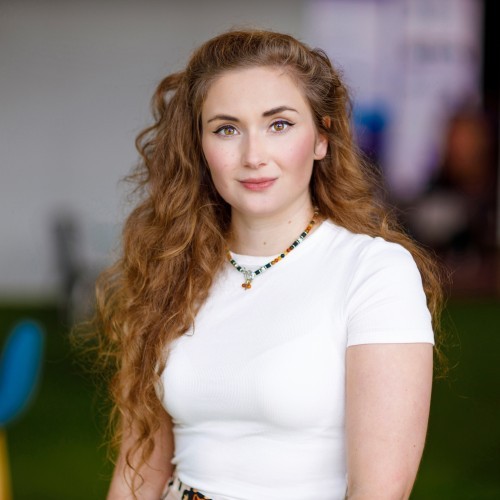
Annamae Muldowney
PhD researcher / inclusive designer, Technological University Dublin, Ireland
Annamae Muldowney is a PhD researcher at TUDublin, exploring how AI-driven simulation tools can support inclusive architectural design. With a background in inclusive design, she also works as an inclusive design researcher at the Global Disability Innovation Hub at University College London, on research into inclusive infrastructure in low- and middle-income countries.

Apoorva Jayanti
Urban designer and architect, Raaj Associates, India
A practising architect and urban designer holding a master’s degree in urban design from Aalborg University, Denmark and a bachelor’s degree in architecture from GITAM University, India. Her passion lies in designing spaces for people that improve urban quality, enhance liveability, value heritage, and contribute to natural environment. Researching theories and concepts that support design of such spaces is one of her key interests.

Barbara Benesh
Founder and architect, B. Grace Design, United States
Barbara Benesh is an architect, strategist, and the founding principal of B. Grace Design—a boutique consultancy that helps organizations align the built environment with human health, business performance, and long-term community impact. Her work sits at the intersection of wellness, real estate strategy, and urban design. A Virginia Business Top 40 Under 40 honoree and 2025 ULI Global Health Leader, Barbara advises developers, institutions, and public-private partnerships on leveraging space to catalyze economic resilience and wellbeing.
With over a decade of experience across the U.S. and internationally, she has presented at global forums including Rice University, Auburn University, and the AIA International Conference. Her mission is to translate invisible drivers—health, culture, and equity—into spatial clarity that empowers people and places to thrive.

Blake Jackson AIA, LEED Fellow, WELL Faculty, CPHC
Director, sustainability, NORR, USA
Blake Jackson is an architect working at the nexus of sustainability, wellness, resiliency, and equity, who serves as the global Director, Sustainability for NORR. NORR is an 800-person integrated architecture, interiors, planning and engineering company, headquartered in Toronto, with 14 locations in the US, UK, UAE, and Canada. Blake has 23 years’ experience in the AEC industry, holding a Bachelor of Architecture from Kennesaw State University in Marietta, Georgia and a Master of Architecture in Sustainable Environmental Design from the Architectural Association Graduate School in London. Blake is a prolific author, speaker, and educator on topics affecting the built environment. He currently serves on the Advisory Board for the University of Massachusetts Dartmouth’s Interior Design Program, is on the AIA National 2030 Working Group, and he is a former Vice President, Advocacy for the Boston Society of Architects. Blake was recognized in 2015 by BD+C Magazine as a top “40 Under 40” AEC professional, he was named a LEED Fellow by the USGBC in 2021, and he is a 2024 recipient of the AIA Young Architect Award.
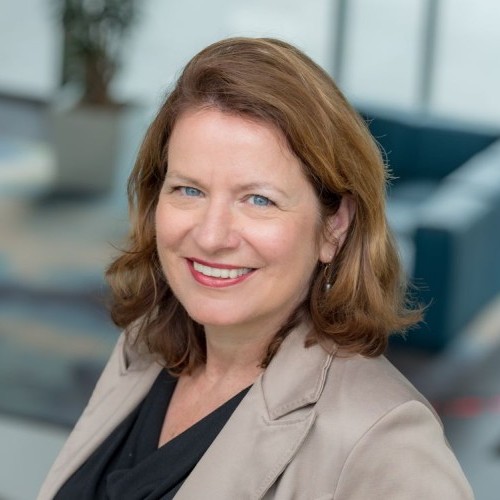
Carola Groenen
Senior researcher, Radboudumc, The Netherlands
Carola Groenen is a health researcher, who obtained her PhD in December 2021 on the topic of cross sectorial collaboration. At the Radboudumc, she is currently working on a research project about healthy living environments through participatory action research within municipalities. She combines this work with a position as an educational manager.
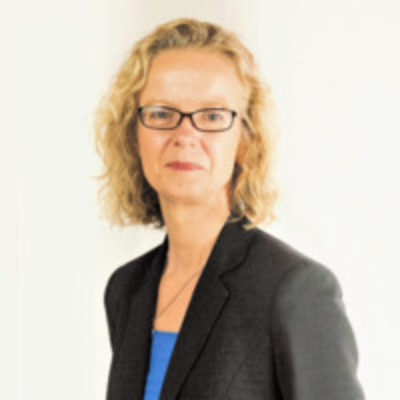
Catherine Barber-Brown
Values-led consultant, Barber-Brown Strategic Consulting, UK
Catherine is on a personal mission to help leaders create the kind of environments where young people can truly thrive – with the support, skills, and connection they need to grow into capable, compassionate citizens of a complex world. Her work is shaped by lived experience within the SEND and education systems, alongside a deep understanding of relational parenting and trauma-informed practice. With a background in strategy, change leadership, and creative facilitation, she supports individuals and organisations through a coaching-led, collaborative approach rooted in trust, curiosity and care.
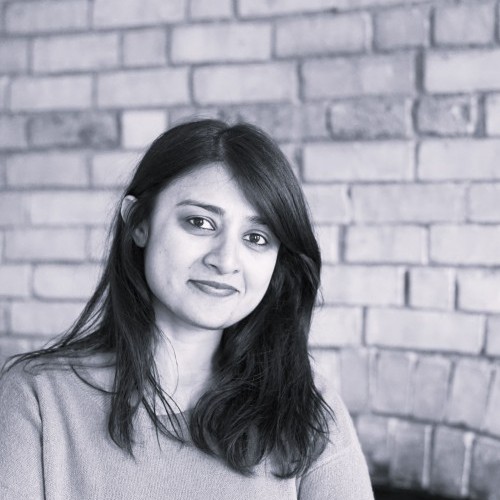
Chandkiran Nath
Senior consultant, AECOM, UK
Chandkiran is a Senior Consultant at AECOM’s People Place & Advisory team, with over 10 years of design strategy experience including a PhD in Urban Design and Regeneration. Working across scale and sectors, she is passionate about using an evidence-based human-centred approach to complex problem solving. Her approach especially focuses on helping clients rationalise decision making whether campus level design strategy or local authority asset optimisation by balancing space optimisation and user experience.
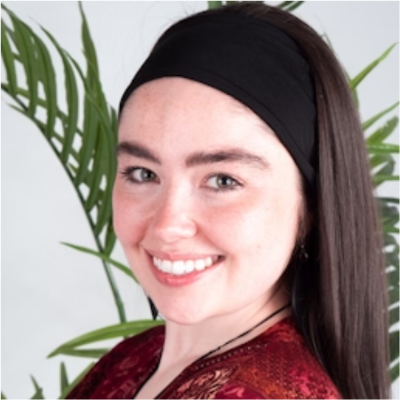
Chloe Roberts
Trauma-Informed Design Consultant, Metamorphia, United Kingdom
I am a Trauma-Informed Design Consultant and founder of Metamorphia. I combine neuroscience, psychology, and design to create spaces that support healing, connection, and empowerment. My work is rooted in lived experience and academic research, driven by a vision to humanise the built environment. I'm currently developing The Adaptive Classroom, with Werk Solutions a scalable model that integrates trauma-informed and restorative practices with innovative classroom design to improve behaviour, engagement, and wellbeing in schools.

Dr Keith Silika
Lecturer, Salford University, UK
I am an ex-police officer from Zimbabwe and also worked as a PCSO for Greater Manchester Police. I am now a lecturer in policing and my research interests are in artificial intelligence and witchcraft.
The friendship bench initiative is a hobby.
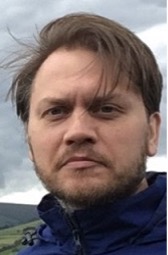
Dr Matthew Dennis
Senior lecturer, The University of Manchester, UK
Matthew Dennis is a Senior Lecturer in Geographical Information Science at the University of Manchester. His research applies spatial‑ecological modelling and GIS to green infrastructure, nature‑based solutions and social‑ecological systems.

Eleanor Albin-Clark
DPhil Researcher, University of Oxford, UK
Eleanor Albin-Clark is currently undertaking a DPhil in Geography and the Environment at the University of Oxford, funded by the ESRC Grand Union DTP and based at St John’s College. Her doctoral project, Sensing the Neurodiver(City), investigates how urban rhythms and walkability are differently experienced by neurodiverse and neurotypical individuals, using comparative, sensory, and participatory methods. Prior to this, Eleanor completed an MPhil in Anthropocene Studies at the University of Cambridge (Murray Edwards College), where her masters thesis explores climate urbanism and low-carbon gentrification in Holt Town, Manchester; a neighbourhood undergoing rapid transformation under competing pressures of regeneration and sustainability. Her research intersects with key Healthy City Design 2025 themes including inclusive transport and mobility, community-led urban transitions, and the design of public realms that support diverse sensory and cognitive needs. By centering neurodivergent experience in urban planning, her work contributes to emerging understandings of health equity, environmental justice, and the role of lived experience in shaping resilient, inclusive, and healthy cities.
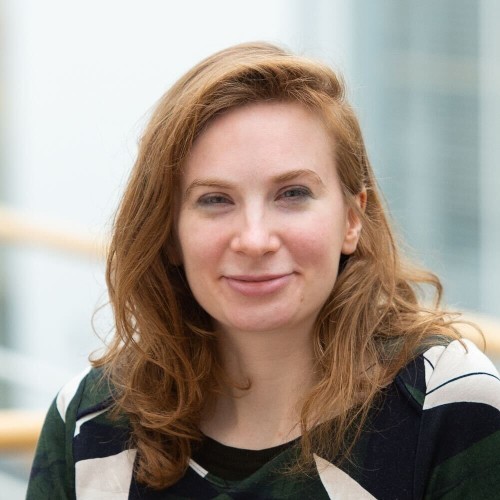
Eleanor Ratcliffe
Environmental psychologist, University of Surrey, UK
Dr Eleanor Ratcliffe is a Senior Lecturer in Environmental Psychology at University of Surrey, and a recent British Academy Innovation Fellow (2024/25). Ellie’s research focuses on connections between the physical environment and human wellbeing, and especially the role of nature and nature soundscapes in supporting positive psychological outcomes. During her British Academy Fellowship she worked with Tranquil City to co-develop, together with communities in UK cities, inclusive tools for the monitoring and evaluation of urban greening interventions that support tranquillity, wellbeing, and sustainable behaviour.

Ellie Barker
PhD candidate, The University of Manchester, United Kingdom
Ellie Barker is a PhD student at the University of Manchester. Her research focuses on understanding the barriers to working-class youth climate activism, exploring the intersection of class, place, and young people’s agency in shaping socially and environmentally just urban futures.

Georgina Blix
Director, Blix Architecture, Australia
Georgina Blix is the Director of Blix Architecture, a research-led design studio with a focus on design for wellbeing. In 2025 she released her Byera Hadley Travelling Scholarship research based on travels around the world exploring how we can design for wellbeing and measure it in housing. Her research covers intergenerational design, design for trauma and how to improve housing for social connection. With the rising challenges of mental health and loneliness, her research outlines the correlation between housing design and improved mental health outcomes particularly at the scale of the neighbourhood. This was launched in July 2025 in Australia with the NSW Minister for Housing and Mental Health and the NSW Commissioner for Mental Health. As a practising Architect and pracademic Georgina has taught at Sydney University, been published in Bulletin Magazine, regularly speaks at conferences, and has co-authored research into wellbeing with Sydney University.
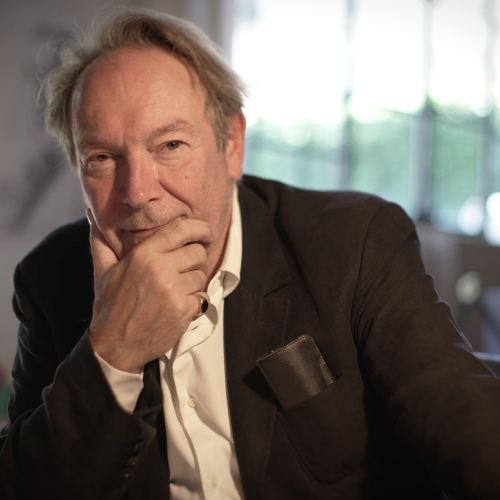
Giulio Felli
Director, Architect, CSPE srl, Italy
Giulio is an Italian architect and the Legal Representative, Technical Director, and Managing Principal of CSPE srl. With 30 years of experience, he has managed complex healthcare projects across Italy, including major hospitals in Padua, Naples, Milan, and Florence. His expertise spans from conceptual design to construction, with a focus on energy efficiency, functional layouts, and multidisciplinary coordination. He has worked alongside renowned UK and US firms, bringing innovative solutions to healthcare planning and design.
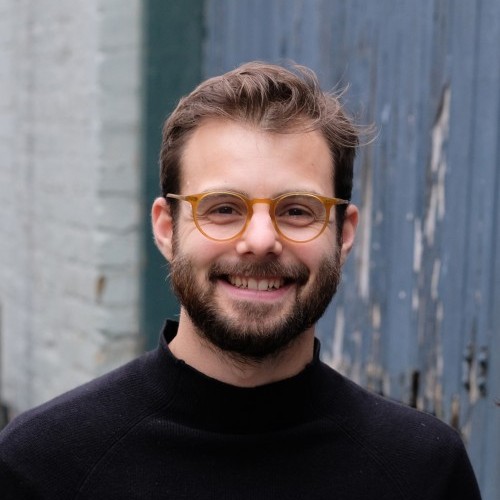
Grant Waters
Director, Tranquil City, UK
Grant Waters is the CEO of Tranquil City, an environmental research and innovation company, with a mission to bring people in cities closer to nature and to create healthier urban environments. He has extensive experience in co-ordinating multidisciplinary innovations that bridge gaps between research, practice and positive impact.
He has a background in acoustic consultancy with specific expertise in urban soundscapes, and he has led projects for governmental bodies, including Defra, Natural England, Transport for London, European Commission, as well as high-profile projects with architectural and urban planning practices, local authorities, NGOs, business improvement districts, and technology companies.

Hadiya J. Khuwaja
Graduate researcher, National University of Sciences and Technology, Pakistan
Hadiya J. Khuwaja is an architect and urban planner currently engaged in graduate research at the Department of Urban and Regional Planning, National University of Sciences and Technology (NUST), Islamabad. Her work explores the intersection of urban design, public health, and social equity, with a particular interest in fostering inclusive and resilient cities in the Global South.
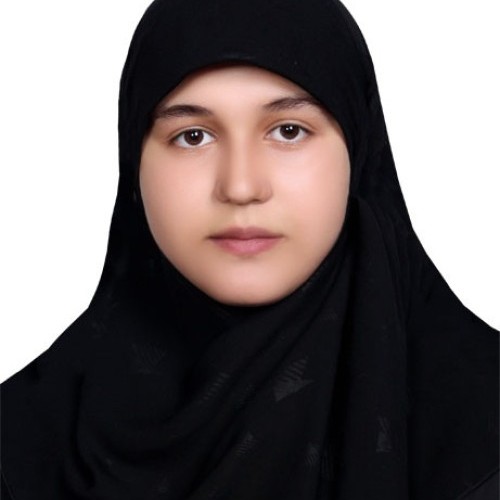
Hakimeh Shams
Student, Buali Sina University, Iran
Hakimeh Shams is an urban planning student at Bu-Ali Sina University with a creative perspective on the intersection of design, urban health, and human experiences in public spaces. She has participated in poster-based and graphic design projects focused on socio-urban themes. Her main interest lies in leveraging the power of design to create healthy, interactive, and human-centered urban environments. Her academic and creative endeavors aim to enhance the quality of urban life by bridging artistic approaches with evidence-based urban research.
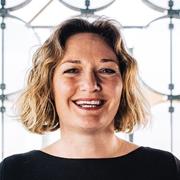
Hannah Badland
Professor, RMIT University, Australia
Professor Badland's vision is to create a more inclusive society, where everyone, regardless of their circumstances, can flourish. To do this, she investigates how the built environment is connected to health, wellbeing, and inequities in both adults and children internationally, with an interest in in populations disadvantaged by the system and inadequate policies. Her interdisciplinary, mixed-methods research programme engages with end-users, typically policymakers and non-government organisations, to influence on-the-ground change. She is currently working on two major research themes: one is enhancing the social determinants of health for those with disability; the other focuses on reducing inequities in early childhood development.

Heather Macey
Director and trustee, Makower Architects, United Kingdom
Heather Macey is a Director and Trustee at Makower Architects. With a background in urban regeneration, supported housing and masterplanning, she is committed to creating healthier and more inclusive environments through design innovation.
Heather is a Trustee and Co-Lead of Homestead, a pioneering supported-housing model that brings together therapeutic design, health innovation and place-based care to support individuals with psychosis. She is also a founding member of Architects Aware!, a London-based think tank dedicated to addressing the homeless crisis.

Illyana Bass
Designer, Stantec, United States
Illyana is a talented architectural designer with a strong attention to research, visualisation, and design solutions. These skills have been developed during her six-year journey in healthcare design. Illyana envisions a path where she is a community design architect working to improve the social, mental, and behavioural healthcare experience of communities through sustainable design.
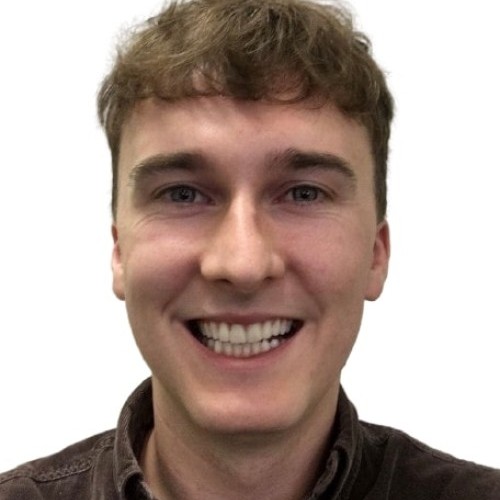
Jack Benton
Leverhulme Early Career Fellow, The University of Manchester, United Kingdom
Jack S. Benton is a Leverhulme Early Career Fellow at the University of Manchester. His research focuses on understanding, monitoring and evaluating how urban environments influence human health and wellbeing using natural experiment methodology.
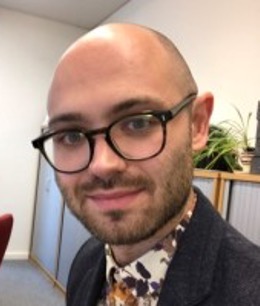
Jack Wilkinson
Senior lecturer, University of Manchester, UK
Jack Wilkinson is a Senior Lecturer at the University of Manchester. His research relates to evaluation of health interventions and methodology for this purpose. He has a particular interest in reproductive medicine, and an international portfolio of clinical trials in this field.

Jacquelyn (Jax) Nemitz
Project architect, Stantec, United States
Jacquelyn (Jax) is a project architect from the Philadelphia office working on variety of healthcare and K-12 education projects for clients including Jefferson Health, Mayo Clinic, UPMC Pinnacle, and Goochland County Public Schools. In her role, Jax has supported projects from programming through construction administration. Her passion for designing spaces that help people heal and grow is what drives her every day. Her commitment to design goes beyond the walls of Stantec. Jax is a member of the PHDC Percent for Art Committee and an adjunct professor at Thomas Jefferson University’s College of Architecture and the Built Environment.
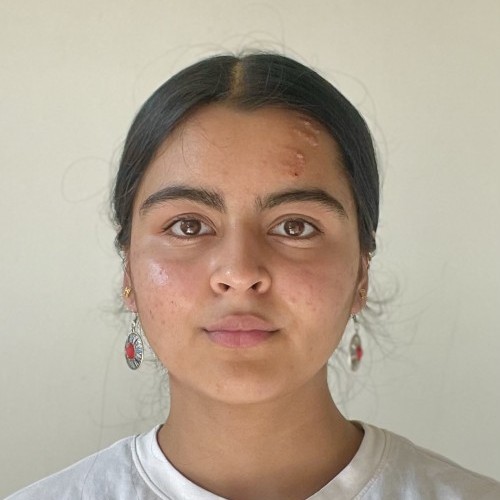
Jaia Mridula
Research Lead, UK Government, United Kingdom
Interdisciplinary researcher, exploring multiple perspectives surrounding different narratives of national infrastructure planning to identify areas for proactive policy reform
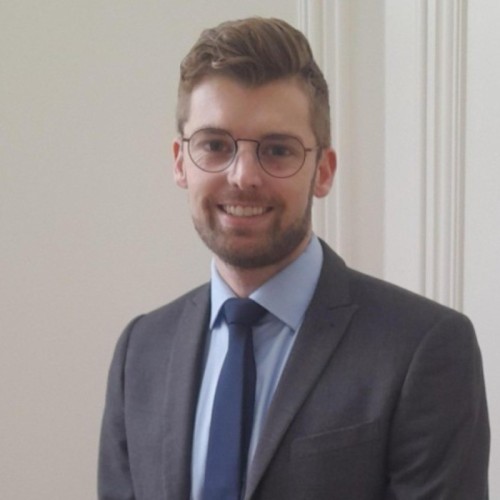
James O’Connell
Specialist registrar in public health medicine, Health Service Executive, Ireland
James O'Connell is a public health doctor working in the health service in Ireland. He has a strong interest in creating healthy places. He has a master's in public health and a diploma in planning and environmental law. He is an affiliate member of the Irish Planning Institute.
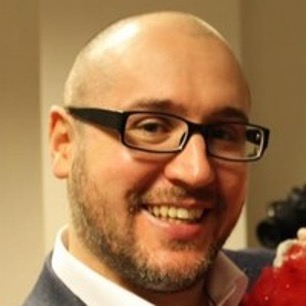
James Rothwell
Professor of Physical Geography, The University of Manchester, United Kingdom
James Rothwell is a Professor of Physical Geography at the University of Manchester. He researches environmental pollution, hydrology, and soil processes in peatlands and urban catchments, advising on nature‑based resilience strategies for built environments.
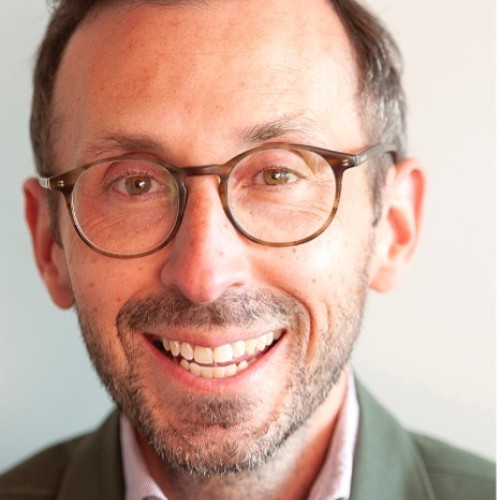
Jamie Anderson
Research Fellow, The University of Manchester, United Kingdom
Jamie Anderson is a Research Fellow at the University of Manchester and Senior Sustainability Consultant at Buro Happold. His research focuses on sustainable city and neighbourhood design in relation to wellbeing.
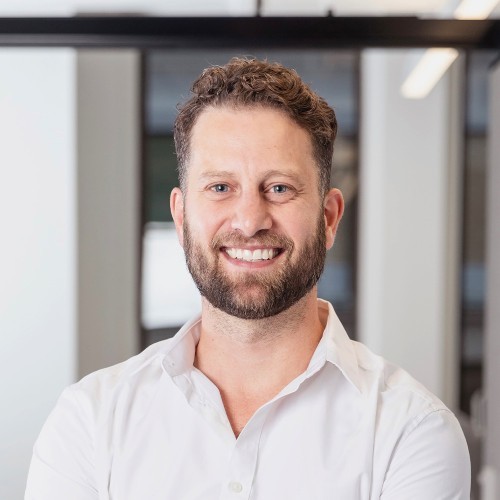
Jamie Miller
Global director of biomimicry, B+H, Canada
Jamie Miller is a leader and award-winning specialist in biomimicry and regenerative design, being the first director of biomimicry at B+H. His role represents a pioneering shift in our industry, one that works with nature, rather than against it.
Previously, he led sustainability consultancy Biomimicry Frontiers and founded Biomimicry Commons, an education and incubator space that Fast Company named a "World Changing Idea". He holds a PhD in engineering, specialising in urban resilience and systems-based biomimicry. Previously co-director of OCAD University's biomimicry programme, his deep understanding of biomimicry was shaped by Indigenous Elders and Janine Benyus. Jamie advocates for nature-based solutions and collaboration to create cities that not only co-exist with nature but actively contribute to its regeneration.
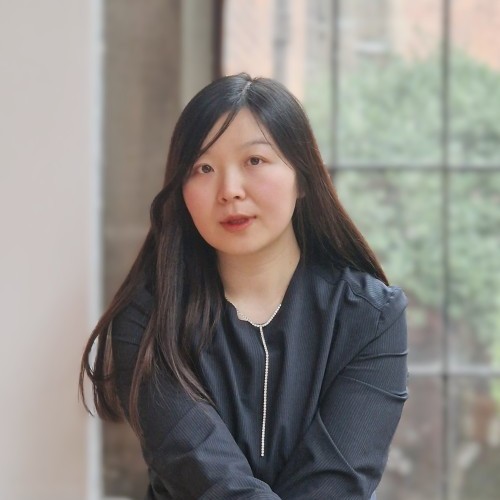
Jiayi Jin
Assistant professor, Northumbria University, UK
Dr Jiayi Jin is an Assistant Professor at Northumbria University whose research explores digital urban technologies and creative participation to promote equitable and sustainable cities. She leads several British Academy and UKRI-funded projects, including “Gender-Inclusive Cities”, “Participatory Neighbourhood Planning for the ‘Brown to Green’ Transition in Tyneside”, and “Navigating Urban Ecologies”. Her work focuses particularly on how urban design and planning are conceptualised and experienced through a gender lens. Beginning with an investigation of Newcastle’s City Centre Transformation Plan back in 2021, her research has expanded to explore feminist urban environments, masculinity in urban design, and gendered dynamics in urban politics. She works closely with external partners including community organisations, architects, urban planners, artists and local government, employing methods such as gender equity walks, interviews, documentaries, counter-mapping, and GIS/PGIS analysis to foster interdisciplinary exploration and promote more inclusive urban futures.

Jon Sell
Principal; Behavioural health subject matter expert, Stantec, United States
Jon is an experienced healthcare designer with more than two decades of expertise improving the design and functionality of large-scale behavioural health spaces. He has demonstrated success at using design as a catalyst to improve the delivery of behavioural healthcare for private, public and government clients nationwide. Jon is passionate about leading the field in this specialised and dynamic service line and equally engaged in mentoring the next generation of behavioural healthcare designers. His work is repeatedly published and presented at national conferences.

Junyan Ye
PhD candidate, The University of Manchester, United Kingdom
Junyan Ye is a PhD researcher at the University of Manchester. Her thesis focuses on the disruptions of nature-related practices among Chinese students in the UK and investigates how infrastructural and cultural expectations are renegotiated in transcultural urban settings.
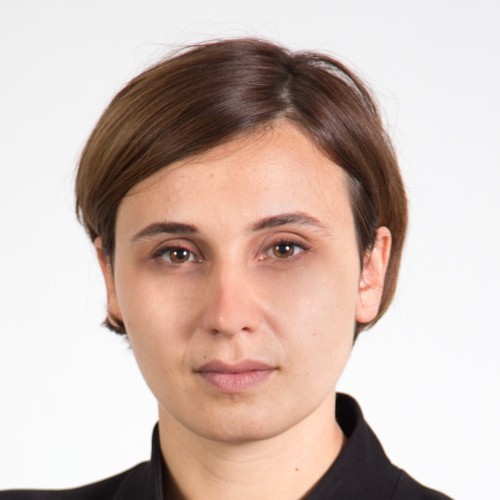
Katarzyna Lewoc
Development director; Creative director and designer; Lecturer in Academy of Fine Arts, OKAM, Poland
Katarzyna Lewoc is a designer, lecturer, and researcher who bridges creative vision with strategic urban development. She holds a PhD in Design from the Academy of Fine Arts in Łódź, where she leads the Studio for Universal Space Design, exploring exhibition design, scenography, and the psychology of space.
As Director of Development at OKAM Capital, a leading residential and commercial real estate developer, she integrates a design-driven approach with investment strategies to deliver large-scale, health-oriented urban projects.
Her current work includes reimagining a former textile factory site in Łódź into a mixed-use community where healthcare, senior living, housing, and public spaces are interconnected – restoring the social fabric of the post-industrial city.
Co-founder of 2x3 Studio, she has designed for major cultural institutions in Poland and internationally. Her practice focuses on creating places that enhance well-being, strengthen community ties, and respect urban heritage.

Katharina Nieberler-Walker
PhD scholar, Griffith University, Australia
Building on a distinguished career as a landscape architect, Katharina’s PhD research led to the development of globally applicable guidelines for integrating purposefully designed therapeutic gardens into hospital environments. She established the term therapeutic hospital gardens (THG), spaces that are “purposefully designed and well-integrated within the hospital grounds or hospital building, which medically, spatially and culturally support patient care and visitor and staff wellbeing”. This definition does not replace previous research or alternative terminology; rather, it establishes a robust foundation for interdisciplinary inquiry, design innovations, and evidence-based advancements.
Katharina’s groundbreaking work first appeared in Health Environment Research Design (HERD) (Nieberler-Walker et al., 2023), followed by THG guidelines for healthcare decision-makers in Sustainability (Nieberler-Walker et al., 2024) and for healthcare designers in Smart and Sustainable Built Environment (SASBE) (Nieberler-Walker et al., 2025). Katharina’s guidelines empower healthcare professionals, designers, decision-makers, and clinical practitioners to implement therapeutic gardens in hospitals as an integral part of care environments.
Beyond academia, Katharina is dedicated to mainstreaming therapeutic gardens in hospitals and urban settings by collaborating with healthcare professionals, policymakers, architects, and investors. Her signature projects as a landscape architect include the ‘Healing Gardens’ at the Queensland Children’s Hospital in Brisbane (Nieberler-Walker et al., 2019), and the ‘Therapeutic Landscapes’ at Meir Medical Center, one of Israel’s largest hospitals.
Katharina is a registered landscape architect, a fellow of the Australian Institute of Landscape Architects (AILA), and the recipient of the 2022 Australian Health Design Council scholarship, which supported her research over three years.
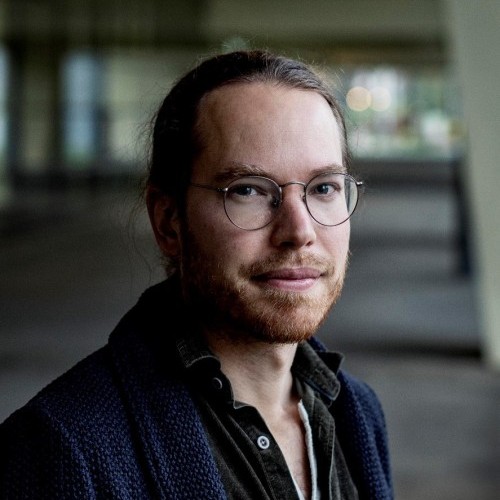
Kevin Raaphorst
Assistant professor, Radboud University, The Netherlands
Dr Kevin Raaphorst is an sssistant professor at the Center for Urban and Regional Research, at the Department of Geography, Planning, and Environment at Radboud University. He has an extensive academic background in spatial planning, GIS, landscape architecture, human geography, visual and qualitative research methods, and visual semiotics. Trained as a spatial planner (BSc) and geo-information scientist (MSc), his primary research interests lie in the ways that space and place are digitally and visually represented, and how those representations influence the shaping of the built environment (PhD). Specifically, he investigates how visual and digital representations of planned and designed spaces, as spatial knowledge products for planners and policymakers, influence participatory processes of placemaking in relation to health and climate adaptation. Previous and current research projects funded by NWO-NWA (BENIGN: blue and green infrastructure in relation to Heat Stress), ZonMw (Space2Move: walkability and physical activity friendly environments) as well as the Radboud Institute for Management Research (useability of climate services) all contribute to the body of knowledge that surrounds these topics. Additionally, Dr Raaphorst teaches various courses at the BSc and MSc level on cartography, GIS, planning scenarios, and research methodology.
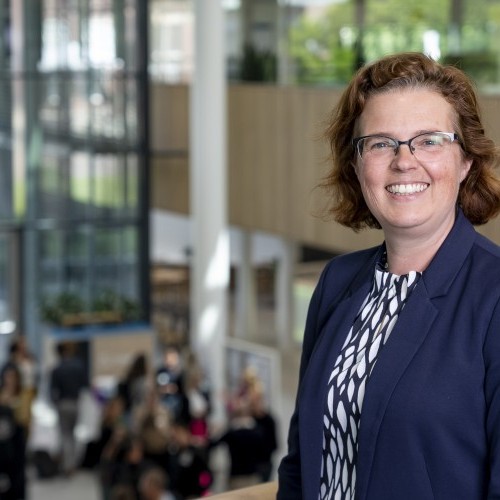
Kristine Mourits
Senior researcher, healthy environment and policy, Radboudumc, The Netherlands
Kristine Mourits is a senior researcher at the Academic Collaborative Center AMPHI at Radboudumc, Nijmegen, The Netherlands. She obtained her PhD in October 2024 on the topic of how health can be integrated into spatial planning developments within Dutch municipalities. This research focused on four key questions: what is a healthy living environment?; How does a spatial planning process work?; How can cross-domain collaboration be strengthened?; And how does the public health policy advisor fulfil the role of boundary spanner in this issue. Within the Academic Collaborative Center, she is currently working on establishing the research line about healthy living environments and follow-up research through participatory action research within municipalities. She combines this work with a position as a senior policy advisor for health / healthy living environment at the municipality of Nijmegen.
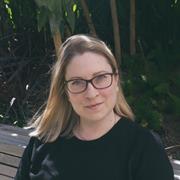
Lucy Gunn
Senior research fellow, RMIT University, Australia
Dr Gunn is an interdisciplinary researcher and lead investigator of an ARC-funded Discovery grant on the role of liveability for healthy ageing, and chief investigator on an Ian Potter Foundation grant looking at cycling. Her research uses quantitative techniques to explore relationships between the built environment and liveability, and health and wellbeing outcomes. This includes active and public transport research, and investigating how planning, health and economic evaluation of infrastructure can support decisions around growth area development and transport, and infrastructure delivery. Research collaborations involve the Victorian Department of Transport and Growth Area Councils.

Luke Engleback
Founder/Director Studio Engleback, Studio Engleback, United Kingdom
Luke Engleback, CMLI FRSA, is a Chartered Landscape Architect and Ecourbanist based in the UK. He founded Studio Engleback in 1999 and brings nearly 40 years of experience in landscape architecture and ecourbanism. Since 1984, Luke has taught at the university level and regularly presents on ecourbanism, biodiversity, climate change adaptation, and health, both in the UK and internationally. A former member of the INTEGER Intelligent & Green think tank (1999–2005), he currently works with ‘Our Green Group.’ He stays updated through Nature and Science, integrating insights into design practices. He became a Fellow of the RSA in 2022.
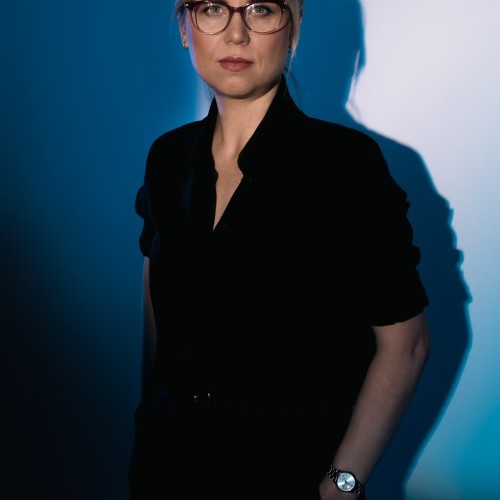
Marta Czachorowska
architect, m.plus.design Marta Czachorowska, Poland
Marta Czachorowska is an architect who dedicates her professional and academic pursuits to the design of caring environments, encompassing medical facilities, therapeutic settings, as well as spa and wellness centers. She holds a firm conviction in the restorative influence of well-crafted design.
She belives in the healing power of good design. Marta advocates for the notion that thoughtfully planned urban areas and architectural structures can contribute significantly to the physical and emotional well-being of those who dwell within them. Her exceptional work in designing a maternity ward for a gynecological hospital was honored with the prestigious Red Dot Design Award in 2023, and she also received acclaim by winning the "Designed for People" award from Gazeta Wyborcza's contest. Her insights on medical design have been featured in esteemed publications like RZUT, Miej Miejsce, and Architektura Murator, and she is a familiar presence at design festivals, such as the Łódź Design Festival, where she champions the concept of health-promoting design. Marta leads the creative team at m+design office. Visit mplusdesign.eu to explore more of her work.

Mary Rouse
Community development manager, Ebbsfleet Development Corporation, UK
Mary Rouse is a dedicated community development professional with over 20 years of experience across health, education, housing, and social care.
As Community Development Manager at Ebbsfleet Development Corporation, she ensures residents and stakeholders actively shape the future of Ebbsfleet Garden City through co-design and inclusive placemaking. Mary leads initiatives such as a network of 14 community gardens, a behaviour-change app with nearly 4,000 users, and the development of a volunteer network and training programme. She also supports the Development Corporation’s strategic planning through research and evaluation.
Previously, she developed a proposal for a pioneering Health and Wellbeing Hub, collaborating with NHS Trusts and ICBs to create integrated service models. Mary holds an MSc in Healthcare Management, a BA in Philosophy from Cambridge, and is PRINCE2 certified.
Beyond her role, she is a charity trustee, former CIC founder, and youth worker, committed to equity and community empowerment through inclusive leadership.

Matthew Morgan
Co-founder, Director, Quality of Life Foundation, United Kingdom
Matthew Morgan is the Director and co-Founder of the Quality of Life Foundation. He is responsible for setting strategy with the Board of Trustees, overseeing the Foundation’s commercial services and delivering lasting impact with the Quality of Life team, itself focused on highlighting the impact of the built environment on people’s lived experience.
With over 20 years’ experience in writing and communications, Matthew has previously worked with architects, engineers and developers; in book and magazine publishing; and with charities and start-ups. He is a participant on a number of advisory boards and chairs a multi-stakeholder group that advises on community engagement as part of the UKRI-funded CCQOL (Community Consultation for Quality of Life) project.
A published author and mental health advocate, Matthew is particularly interested in how communities are formed and their effects on people’s physical, social and psychological wellbeing, an interest he developed while growing up in an intentional community in Kent.
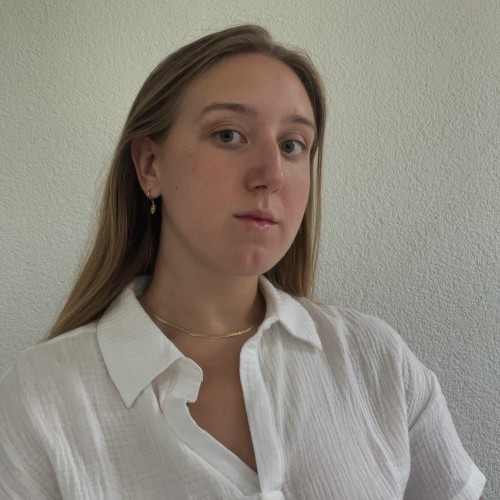
Maya Ljubojevic
PhD Researcher, University of Strathclyde, United Kingdom
Maya Ljubojevic is a dynamic and multidisciplinary researcher known for her work at the intersection of geography and public health. With a background in geography, public health, health policy, and development, Maya brings a systems-level approach to solving complex challenges and creating inclusive, innovative, and sustainable solutions for urban health.
Presently, she is an academic based at the University of Strathclyde focusing her research on urban wellbeing and mental health in the context of loneliness and connection. She has published peer-reviewed pieces on Thriving City Initiatives and the novel concept of 'bumping places' as a tool and feature to improve population and individual wellbeing in cities.
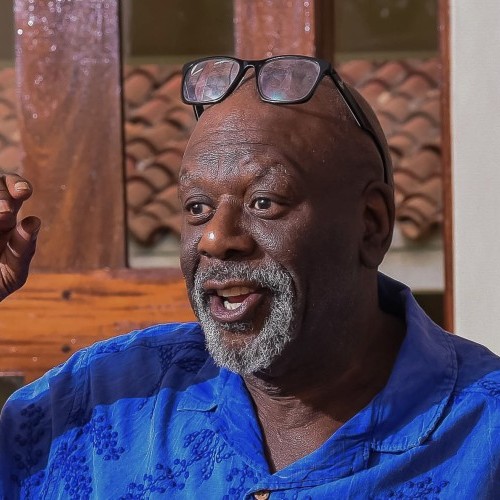
Michael Hamilton
Systems change lead, The Ubele Initiative, UK
Michael Hamilton currently works with the Ubele initiative, a black led community organisation that works with communities on several levels including training, systems change initiatives, finance and leadership development. With over thirty-five years of experience working for the health and well-being of local marginalised communities, Michael Hamilton has worked with young people from ground level to executive directorship.
With over forty years’ experience of community development Michael states that no matter what his job title has been, no matter what the focus of engagement has been, he has only ever had one role. That role was to create spaces for people and communities to define their own needs and enabling communities and people to work together to meet those needs.
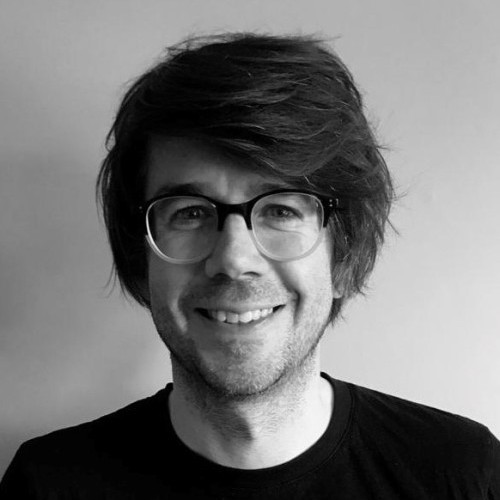
Michael Rigby
Data Partnerships Manager, Impact on Urban Health, United Kingdom
Michael Rigby is the Data Partnerships Manager at Impact on Urban Health. Since October 2022, he has managed and created data partnerships to improve Impact on Urban Health's evidence and knowledge by utilising the latest data-driven approaches available.
Michael has worked within the not-for-profit sector as a 'data for good' expert for over 20 years and was previously ‘Head of Digital’ at the Football Foundation – the UKs largest sports charity – where he was responsible for a successful digital transformation to enable the delivery of a ten year National Football Facilities Strategy.

Michelle Morgan
Director, Restorative Practice Training and Consultancy, United Kingdom
As a parent to two brilliant neurodiverse children, I am deeply committed to creating a kinder, fairer, more inclusive world for my children and yours. My motivation for the Adaptive Classroom has been shaped by my children's personal experience of mainstream education. As a qualified teacher, trainer, and restorative conference facilitator, with over 20 years' experience in UK education, I'm frustrated by the broken system and channelling my frustration into practical action. Since 2017 my team and I have supported thousands of young people, families, and educators through restorative practice, trauma-informed approaches, and inclusive strategies leading to meaningful and lasting change.
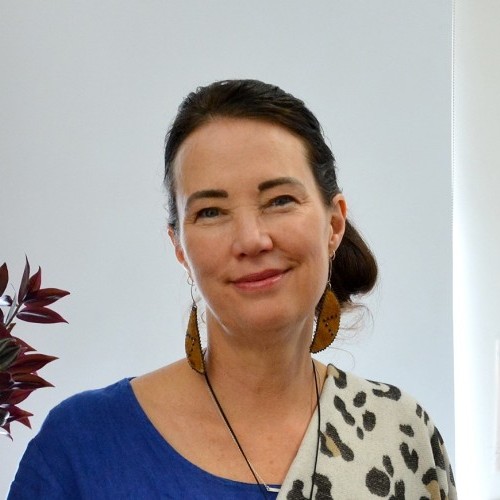
Nina Scott
Chief medical officer, Te Whatu Ora Health NZ, New Zealand
Dr Nina Scott (Ngāpuhi, Ngāti Whātua, Waikato) is a public health physician in New Zealand. She holds leadership roles as Co-Chair Hei Āhuru Mōwai (Māori Cancer Leadership Aotearoa), and Interim Chief Medical Officer, Hauora Māori Services, Health NZ. Her research uses Kaupapa Māori methodologies and focusses on redesigning health care to maximise health gain for Māori.

Paul Murphy
Managing director, Werk Solutions, UK
As managing director of Werk Solutions, I'm driven by a simple belief: every child deserves a learning environment that works for them, not against them. Watching too many students struggle in rigid, outdated classrooms sparked a personal mission in him to do better. He says he is on a mission to create learning environments that respond to the needs of every child. Our adaptive, inclusive furniture supports movement, choice, and neurodiverse ways of learning. Made with sustainable materials and designed for longevity, it's much more than furniture.
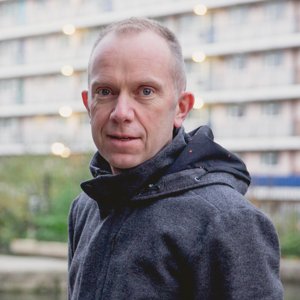
Peter Mandeno
Director of Connectivity, Better Connected, New Zealand
Peter completed his PhD in Design Engineering at Imperial College London. The focus of Peter’s research and work is “design for human connectivity” – that is, supporting organisations to improve human connectivity outcomes through design. Prior to completing his PhD, Peter worked in creative, innovation, and strategy roles across the globe helping large organisations communicate and tell their stories in more compelling ways. Peter is a graduate of the THNK School for Creative Leadership.
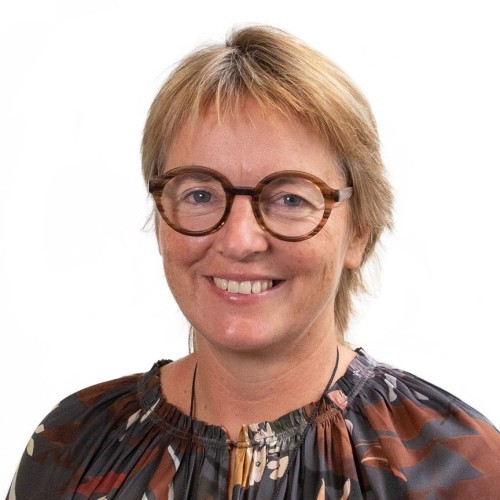
Polly Atatoa Carr
Associate professor, University of Waikato, New Zealand
Dr Polly Atatoa Carr is Associate Professor at Te Ngira (Institute for Population Research), University of Waikato, New Zealand. Her research focuses on broader determinants of population health and wellbeing equity, particularly for children within the context of whānau and community. Polly is a Public Health Physician within Child and Youth Health at Te Whatu Ora Waikato, Health New Zealand.
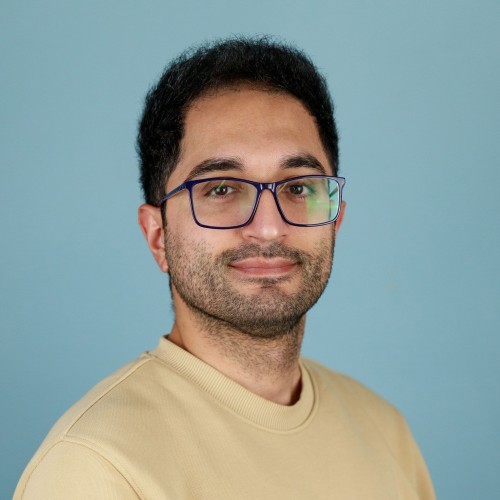
Pouya Molaei
PhD candidate, RMIT University, Australia
Pouya Molaei is a PhD candidate in the Centre for Urban Research and Social and Equity Research Centre at RMIT, where he will be examining and testing urban variables for healthy ageing and promotion of physical health among older adults. Pouya completed a Bachelor of Architecture at the University of Guilan and received his Master’s degree in Architectural Engineering from TIAU in Iran. He has a ten-year history working for a company and academic centres as a draftsperson, architect, research assistant, and teacher assistant. Pouya’s research interests include ageing in place, age-friendly cities, healthy and walkable cities, transport behaviour, and housing.
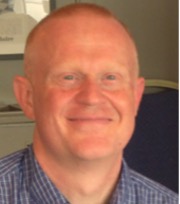
Prof David French
Professor of health psychology, The University of Manchester, UK
David P. French is Professor of Health Psychology at the University of Manchester and NIHR Senior Investigator. He aims to develop and evaluate interventions with reach that change behaviours that impact on health.
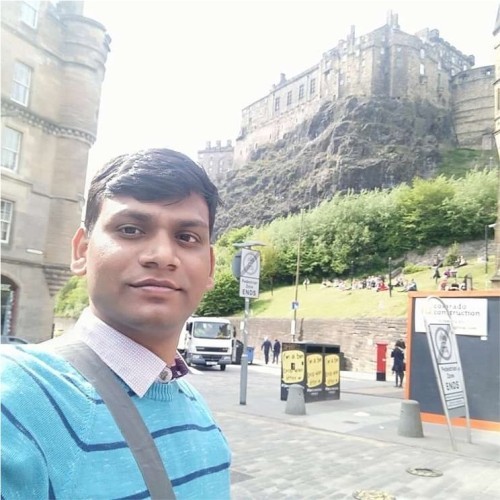
Rakesh Kumar
Senior consultant, Institute of Economic Growth Delhi, India
Dr Rakesh Kumar is an accomplished researcher in public health and population studies, with over a decade of experience specialising in urban health, nutrition, migration, and geospatial analytics. He currently serves as a senior consultant at the Institute of Economic Growth (IEG), New Delhi, where he contributes technical expertise and research leadership to projects addressing health inequalities, child malnutrition, and urban development. His work is conducted in collaboration with leading organisations, including UNICEF and the TATA Trusts.
Dr Kumar holds a PhD in population studies from the International Institute for Population Sciences (IIPS), Mumbai, where his doctoral research examined the spatial dynamics of tourism flows across India. He also holds an MPhil. and MA in population studies, along with a master’s degree in geography, grounding his expertise in spatial demography and urban research.
His research has been widely published in high-impact, peer-reviewed journals, such as the Journal of Global Health, SSM–Population Health, Demography India, and Springer Nature. In addition to scholarly publications, Dr Kumar has co-authored numerous policy reports and data-driven tools, including the Parliamentary Constituency Factsheets on nutrition and health, and evaluation studies for major national programmes, such as ICDS and Anemia Mukt Bharat (AMB).
Dr Kumar has presented his work at prestigious international conferences, including the Population Association of America (PAA) Annual Meeting and the International Geographical Congress. His contributions have been recognised with full travel grants and fellowships from institutions, such as TATA Trusts, MERH, and the Government of India.
He possesses advanced proficiency in statistical and geospatial software, including STATA, ArcGIS, and GeoDa, and plays a pivotal role in developing interactive dashboards and analytical frameworks to support real-time monitoring and policy decision-making.

Sapna Halai
Energy consultant and doctoral student, The Bartlett School of Environment, Energy and Resources, UK
Sapna is a chartered engineer and academic researcher at UCL. She has a background in delivering technical designs for non-domestic and domestic buildings across the UK. Her experience also includes masterplan and urban designs for new developments and regeneration across councils. She has a detailed understanding of the complexities of building design and energy systems to deliver climate mitigation and climate adaptation.
In addition, Sapna has experience in a policy advisory role. Her experience includes supporting local authorities with their decarbonisation strategies. She has also been seconded to the civil service to support on policy development to decarbonise non-domestic buildings. Through her doctoral research, Sapna has honed her knowledge of policy development across multiple governance levels and the role of different actors to drive forward regenerative solutions.

Sem Lee
Founder, Director, OURI Labs, United Kingdom
Sem Lee is an urban strategist and social entrepreneur with over 11 years’ experience managing sustainability, communications, and design projects. Sem founded OURI Labs in response to the pressing need to understand how to link public health and urban planning. OURI Labs is a health innovation research lab committed to shaping healthy and equitable cities that better serve communities and the planet. The practice specialises in participatory research, evaluation, and design, bridging urban planning policy and public health. Key organisations they have collaborated with include Health Innovation North East North Cumbria, Greater London Authority, University College London (Bartlett), and the Office for Health Improvement and Disparities.
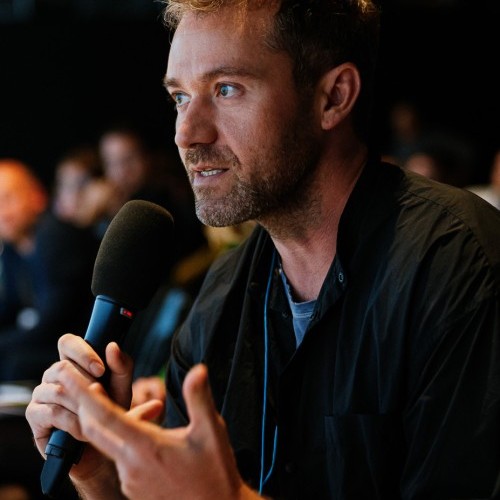
Simon Battisti
Executive director, Qendra Marredhenie, Albania
Simon Battisti is executive director of the Relationship Center (Qendra Marrëdhënie, (QM)), a non-profit research and design agency, based in Tirana.
QM provides technical assistance for local governments to deliver mobility and public space projects that centre on the needs of children and caregivers. Since 2020, QM has supported the Municipality of Tirana’s city-wide school streets programme.
Simon is also the creative director of the Start with Children Summit, an annual convening on urban childhoods, held in Bratislava. He holds degrees in architecture from the Southern California Institute of Architecture, and Harvard University’s Graduate School of Design.
https://www.qendra-m.org/en
https://www.instagram.com/qendra_marredhenie/
https://startwithchildren.com/
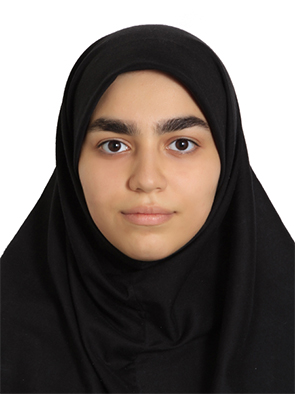
Sophia Rostami Nia
Student, Buali Sina university, Iran
My name is Sophia Rostaminia and I am an undergraduate student at Bu Ali Sina University majoring in Urban Studies. My main interest lies in advancing sustainable and resilient urban development through practical and research-based approaches. To contribute actively in this field, I have recently founded a company focused on expanding green energy solutions, aiming to support cities in their transition toward cleaner and more efficient systems.
Alongside my academic work, I am conducting ongoing research on sustainable cities, with particular attention to strategies that balance growth with environmental responsibility. Through my studies and professional efforts, I seek to promote practical frameworks that strengthen urban resilience and sustainability. I value opportunities for knowledge exchange and collaboration with peers and professionals who share a commitment to future-oriented urban practices.
I hope to contribute constructively to discussions that shape more livable, adaptable, and environmentally conscious urban environments for the generations to come.

Sruti Samhita Malladi
Student, Flame University, India
Sruti Samhita Malladi is a final year student at FLAME University, pursuing a bachelor's degree in public policy. She aspires to work in urban policy and planning, and especially loves mobility, civic administration, and generally creative solutions.
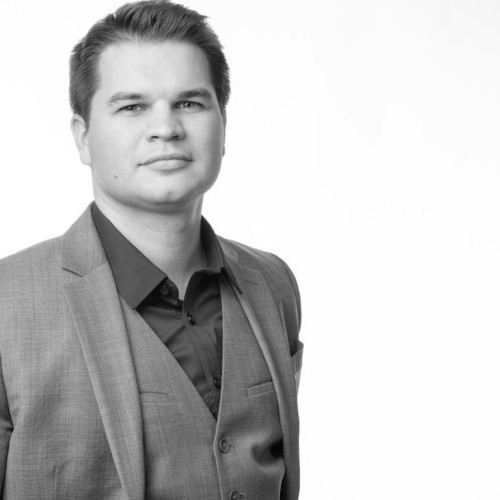
Stephen Parker
Sr. Associate; Mental + Behavioral Health Planner, Stantec, United States
A dedicated behavioral health planner and mental health design subject matter expert, Stephen is a proponent of “architect as advocate” for colleague, client, and community alike, and he believes strongly in leadership through service. A Practitioner of the Trauma-Informed Design Society & an RIBAJ Rising Star, Parker was elevated as an Associate to the Board of the UK-based Design in Mental Health Network. Stephen has served a diverse client base, including the Cleveland Clinic, Kaiser Permanente, and U.S. Department of Veterans Affairs, helping to develop the VA’s Inpatient Mental Health Design Guide. He has volunteered as a pro-bono medical planner in the US and abroad is an accomplished design researcher and advocate of mental health worldwide.
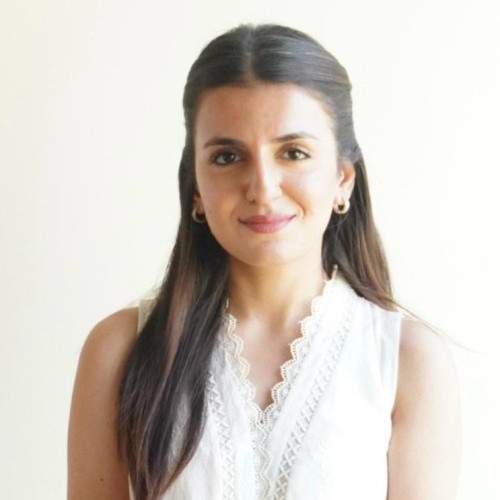
Swaleha J. Khuwaja
Graduate Student, Global Mental Health, King’s College London, UK
Swaleha is a development practitioner and global mental health enthusiast with an academic background in psychology and a strong commitment to advancing health equity. Over the years, she has designed, implemented, and evaluated community-based mental health programmes that centre the voices and needs of marginalised and underrepresented populations, including women, refugees, low-income groups, and survivors of trauma.
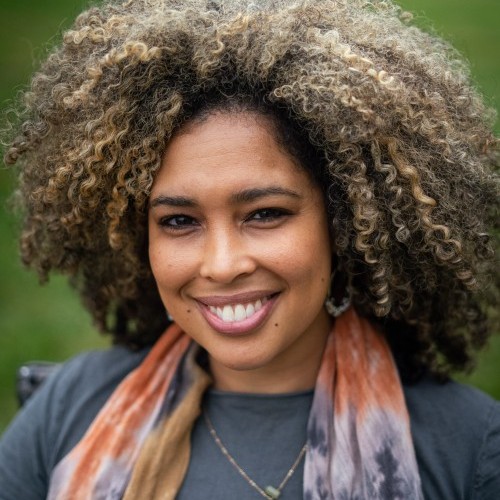
Tamanda Walker
Director, Roots & Rigour CIC, UK
Dr Tamanda Walker is the director of Roots & Rigour CIC, a research and consultancy organisation focused on community-led research, systems change, and storytelling. Trained as a sociologist and facilitator, Tamanda has spent over 15 years working across the UK and globally to centre the lived experiences of Black and racially minoritised communities in research, strategy, and public discourse. Her work supports communities to generate and/or interpret their own data, shape their own narratives, and influence systems that have long excluded them. No matter the focus – whether maternal health, policing, or mental health – her role has remained the same: to walk alongside communities as they define their own priorities and reimagine what justice, equity and care looks like for them. Tamanda also co-directs AiAi Studios, a BAFTA-winning media production company and storytelling studio, and co-hosts Rigour & Flow, an award-nominated podcast bringing research, storytelling, and entertainment into deep cultural conversations.
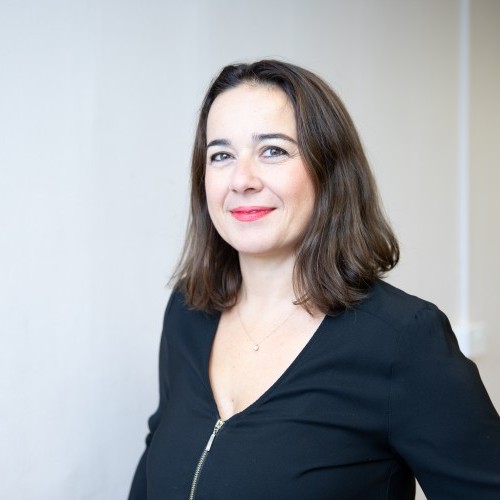
Theodora Mavridou
Senior Lecturer, University of Portsmouth, United Kingdom
Dr. Dora Mavridou is a Senior Lecturer and Course Leader for the BEng Engineering Management Top-Up program in the School of Electrical and Mechanical Engineering, within the Faculty of Technology at the University of Portsmouth.
Her teaching expertise includes Engineering Practice, Sustainable and Environmental Management, and Design. Her research interests focus on Building Optimisation, Inclusive Design, Sustainability, Environmental Design, and Social Sustainability. She is particularly passionate about exploring ways to maximize value while minimizing waste.
Dr. Mavridou has over a decade of industry experience as a chartered engineer, specializing in engineering design and project management. She graduated from the School of Architectural Engineering at Democritus University of Thrace, Greece, in 2006. She later earned an MA in Lighting Design from the School of Applied Arts and Sustainable Design at Hellenic Open University in 2017 and a PhD from Democritus University of Thrace, where her research focused on optimizing industrial buildings through sustainability and lean thinking. Additionally, she holds a PGCert Diploma in Higher Education from the University of Portsmouth.
Throughout her career, she has worked on engineering projects across various European countries, including the UK, France, Switzerland, the Netherlands, and Greece.

Tinghui Yang
Graduate researcher, Shenyang Jianzhu University, China
Tinghui Yang is a master's candidate at the School of Architecture and Planning, Shenyang Jianzhu University, at Shenyang Key Laboratory of Performance Enhancement Technology for Healthy Human Settlements (SJZU). Her supervisor is Prof. Yao Fu and her research focus is inclusive and accessible space design.
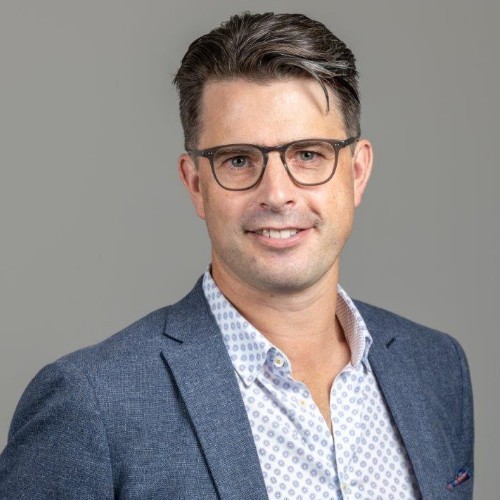
Tobias Fellows
Principal, Public Buildings, NORR, Canada
Tobias Fellows, OAA, MRAIC is an architect and Principal with NORR Ottawa, with over twenty years’ experience delivering quality, award-winning projects across Canada, with a focus on the National Capital Region. He has garnered a reputation as a strong leader, applying his unique skill set of creative design and technical acumen to proactive project management approaches. He currently leads a multi-disciplinary team of architects, engineers, planners and designers, through a highly collaborative process, developing solutions for complex, purpose-driven designs, from recapitalization projects to new construction at every scope and scale – and across multiple sectors. He is also an avid outdoor enthusiast, drawing deep inspiration from time spent in union with the natural environment.
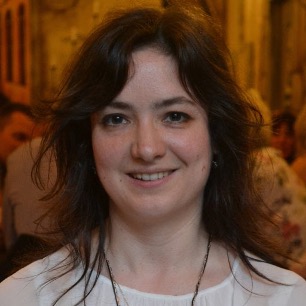
Vanessa Macintyre
Research Associate, The University of Manchester, United Kingdom
Vanessa Macintyre is a Research Associate at the University of Manchester. Her main research interests are in suicide and clinical applications of Perceptual Control Theory.

Wendy Wu
Landscape architectural designer, Stantec, United States
Wendy Wu is a registered landscape architect with deep empathy and a passion for designing public outdoor spaces that resonate with users, reflect community values, and prioritize sustainability and climate resilience. Her work combines a holistic understanding of site and context with artistic expression, resulting in creative, place-specific designs that are both meaningful and functional in the built environment.
Wendy collaborates closely with multidisciplinary teams and brings strong design sensibility and technical expertise to guide projects from early concept through construction. She is committed to delivering high-quality, implementable solutions that elevate everyday experiences while responding thoughtfully to environmental and social challenges.
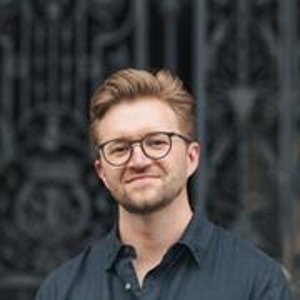
Weston Baxter
Associate professor, Imperial College London, UK
Weston is senior professor in the Dyson School of Design Engineering at Imperial College London, where he leads the Interaction Foundry — an interdisciplinary design research group working at the intersection of behavioural science and design. His expertise includes human-centred design and behavioural change through digital and physical product, service and experience design. A particular area of focus is on developing design tools and methods to support the creative design of behavioural interventions.
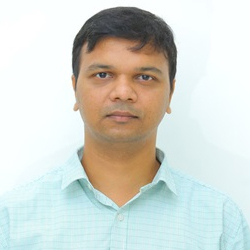
William Joe
Assistant professor, Institute of Economic Growth Delhi, India
William Joe is assistant professor at the Population Research Centre, Institute of Economic Growth, Delhi. Dr Joe has a PhD in economics from Jawaharlal Nehru University with research interests in health economics and demography. He is engaged in research, monitoring and evaluation work for the Ministry of Health and Family Welfare (MoHFW), Government of India. Dr Joe also leads the UNICEF-IEG collaboration on Anemia Mukt Bharat technical support activities for the MoHFW. He is a member of the NITI Aayog working group on strategy for improving nutrition in India. He is also a member of the Technical Advisory Groups on Nutrition and Anemia for the Government of Karnataka, Government of Jharkhand and the Indian Council for Medical Research (ICMR).

Xinlei Wang
Graduate researcher, Shenyang Jianzhu University, China
Xinlei Wang is a master's candidate at the School of Architecture and Planning, Shenyang Jianzhu University, at the Shenyang Key Laboratory of Performance Enhancement Technology for Healthy Human Settlements (SJZU). Her supervisor is Professor Yao Fu and her research focus is inclusive and accessible space design.
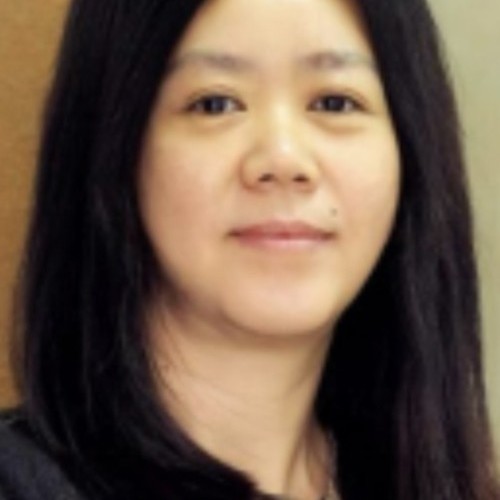
Yao Fu
Professor, Shenyang Jianzhu University, China
Yao Fu is professor at the School of Architecture and Planning, Shenyang Jianzhu University, at the Shenyang Key Laboratory of Performance Enhancement Technology for Healthy Human Settlements (SJZU)
Her research focus is architectural design and theory; urban renewal and healthy city design; green building performance enhancement; and modern architectural theory.
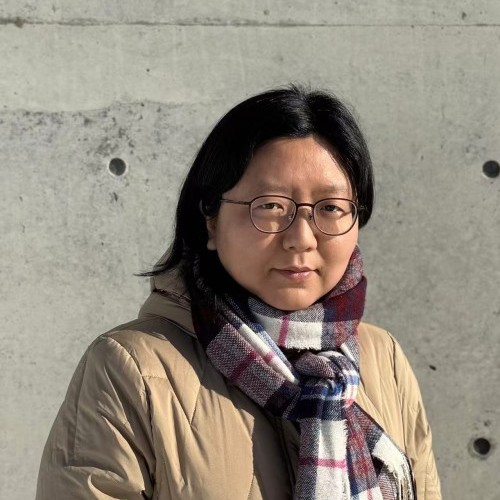
Yilin Song
Associate professor, Tianjin University, China
Dr Yilin Song is an associate professor of the School of Architecture, Tianjin University, China. Before joining Tianjin University in 2018, she received her doctorate and master's degrees from Texas A&M University, having focused on healthcare architecture design and research. She continues working on evidence-based design, children and infants’ healthcare facilities, and the equity of healthcare resources; she has written more than ten papers and spoken at several international and national conference presentations. She has completed two research projects funded by the National Natural Science Foundation of China as the principal investigator.


















